Select the social media format below. Right click to download image and post on your social channel.
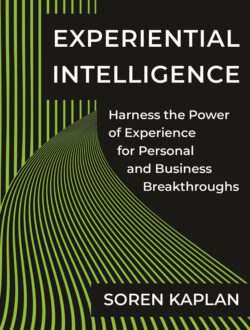
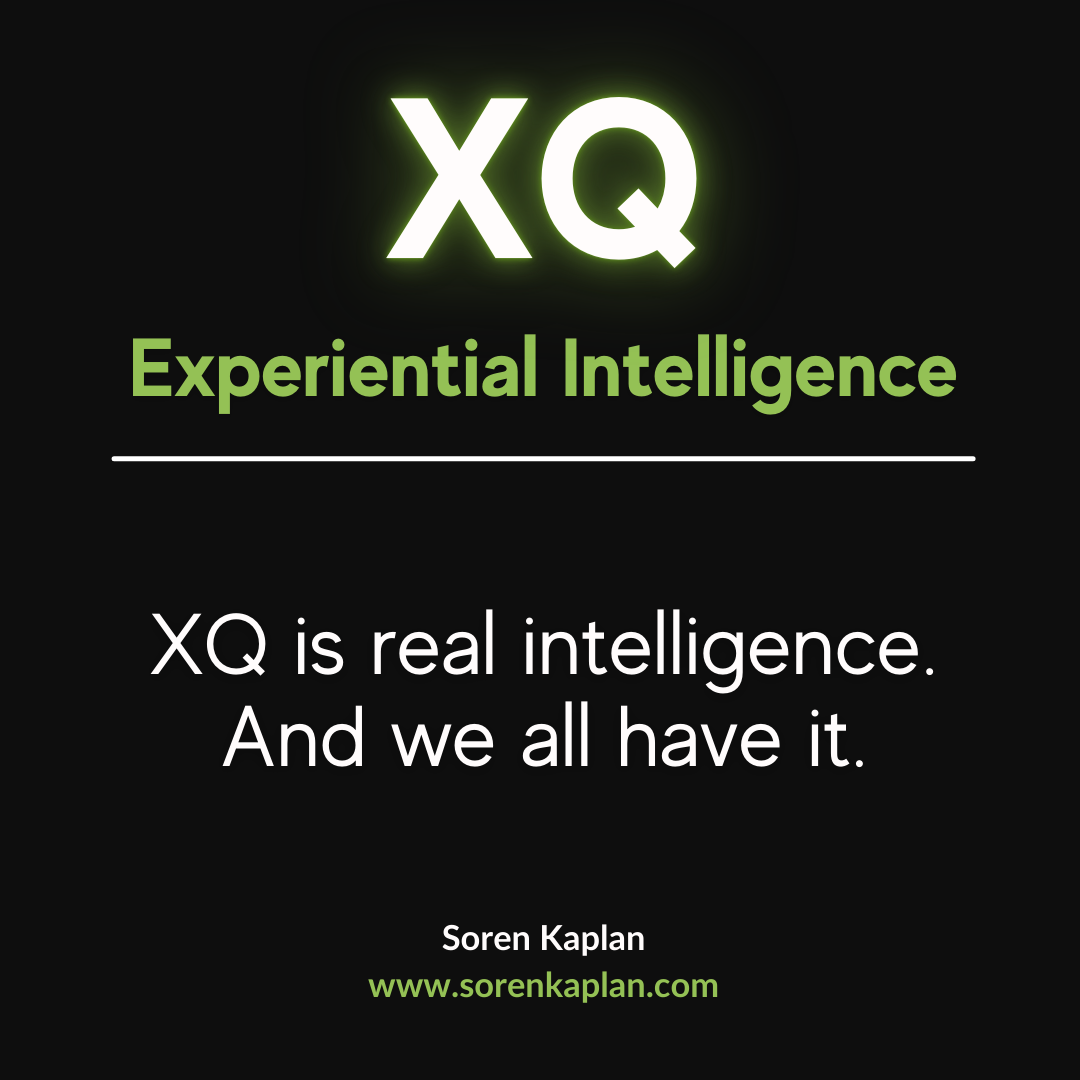
XQ is real intelligence. And we all have it.
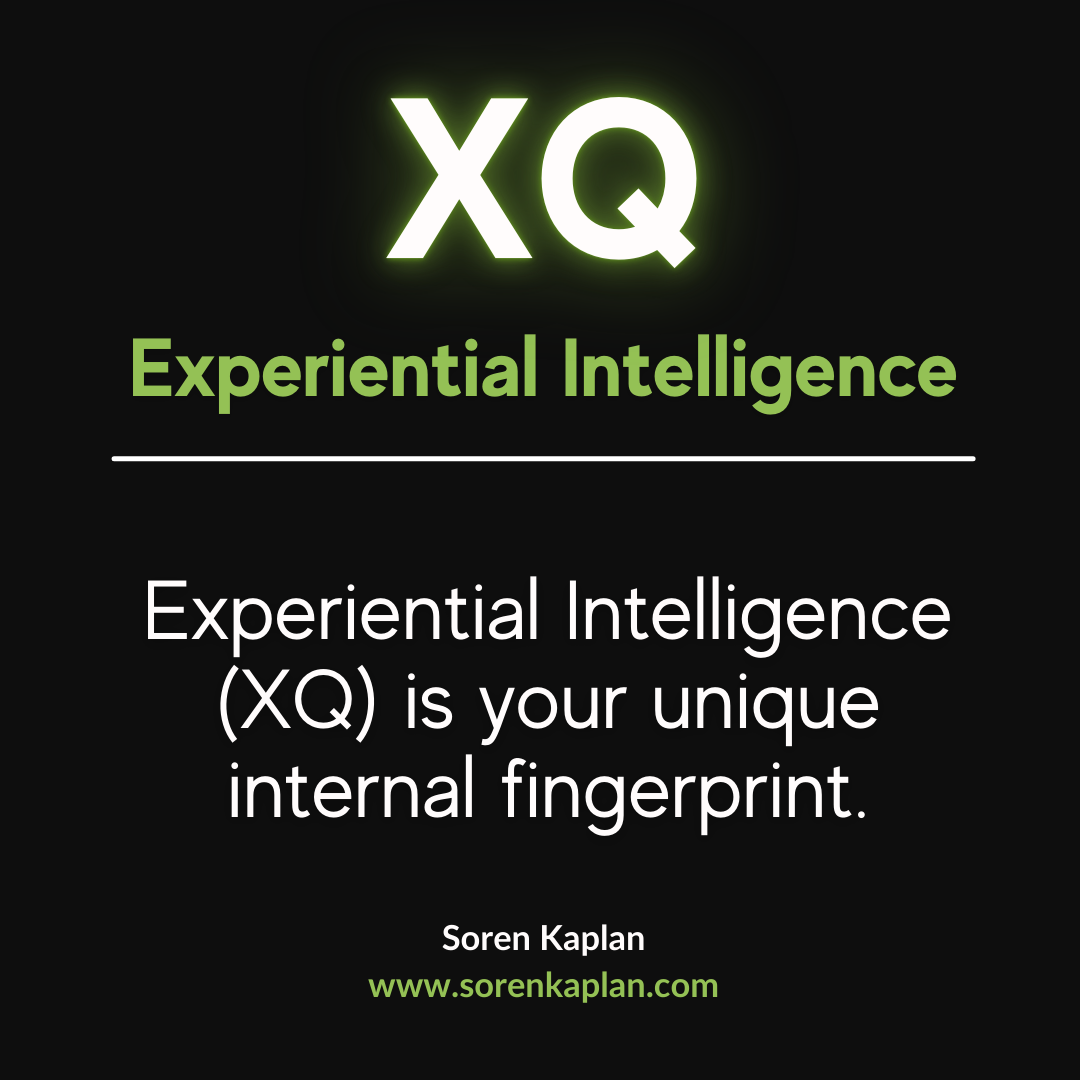
Experiential Intelligence (XQ) is your unique internal fingerprint.
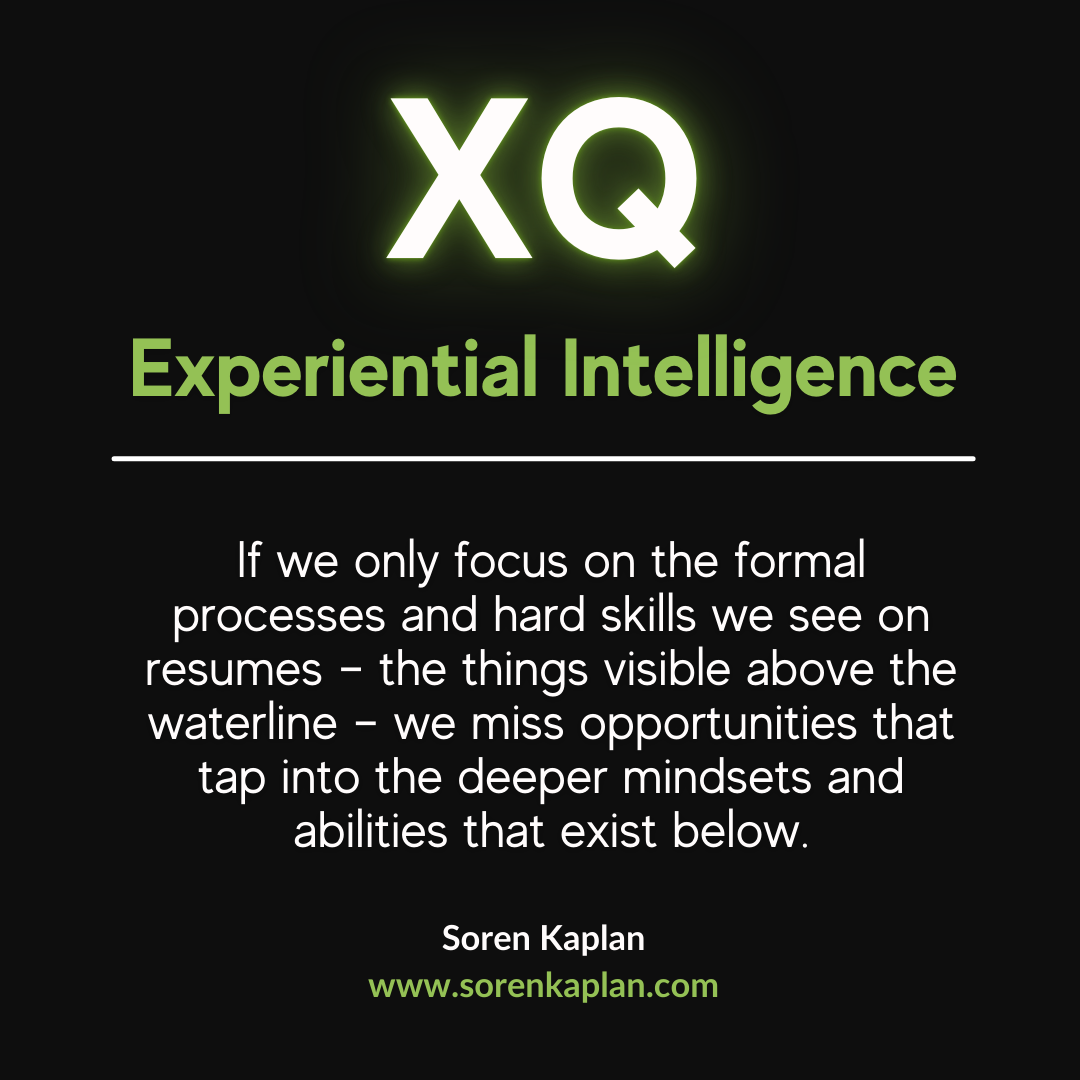
If we only focus on the formal processes and hard skills we see on resumes – the things visible above the waterline – we miss opportunities that tap into the deeper mindsets and abilities that exist below.
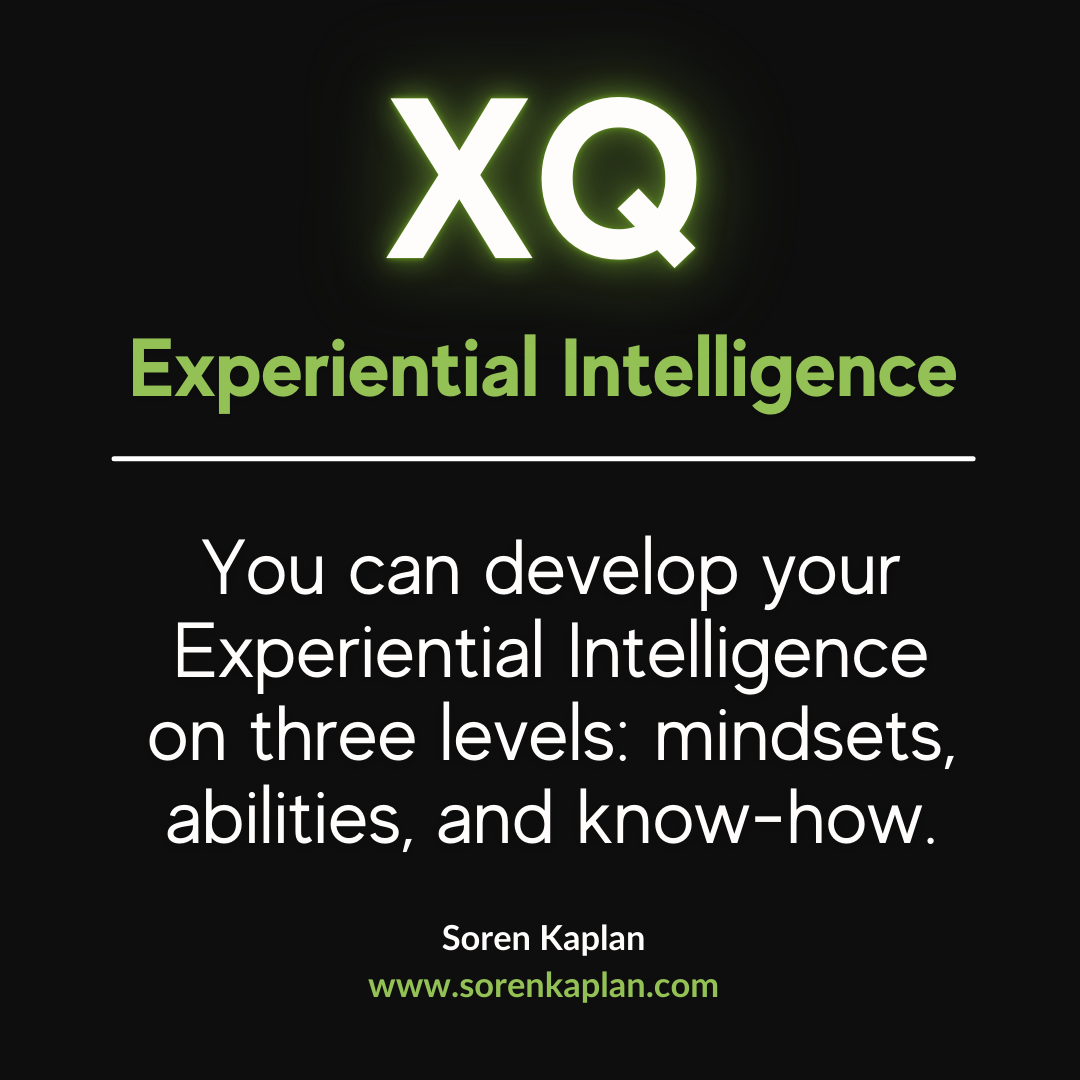
You can develop your Experiential Intelligence on three levels: mindsets, abilities, and know-how.
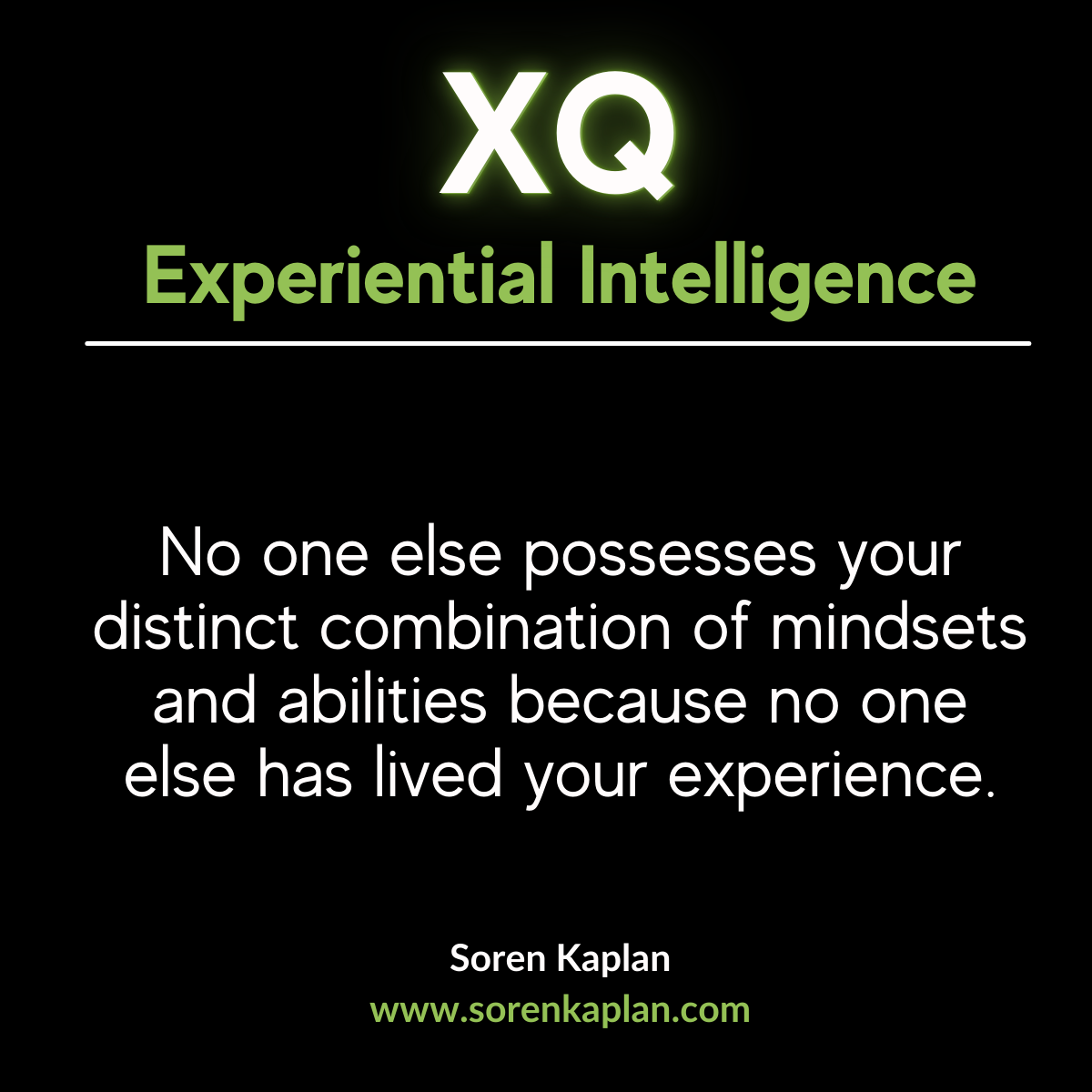
No one else possesses your distinct combination of mindsets and abilities because no one else has lived your experience.
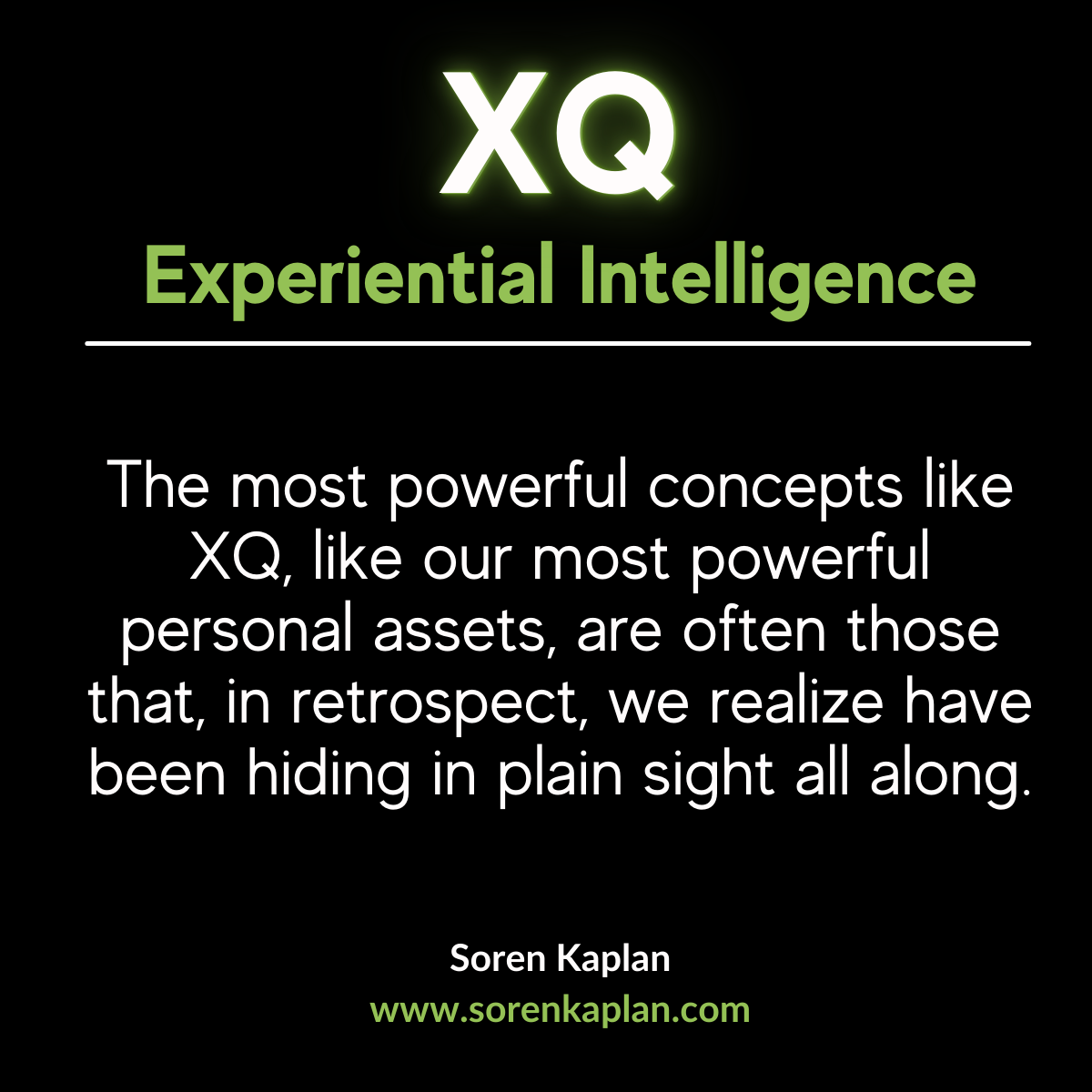
The most powerful concepts like XQ, like our most powerful personal assets, are often those that, in retrospect, we realize have been hiding in plain sight all along.
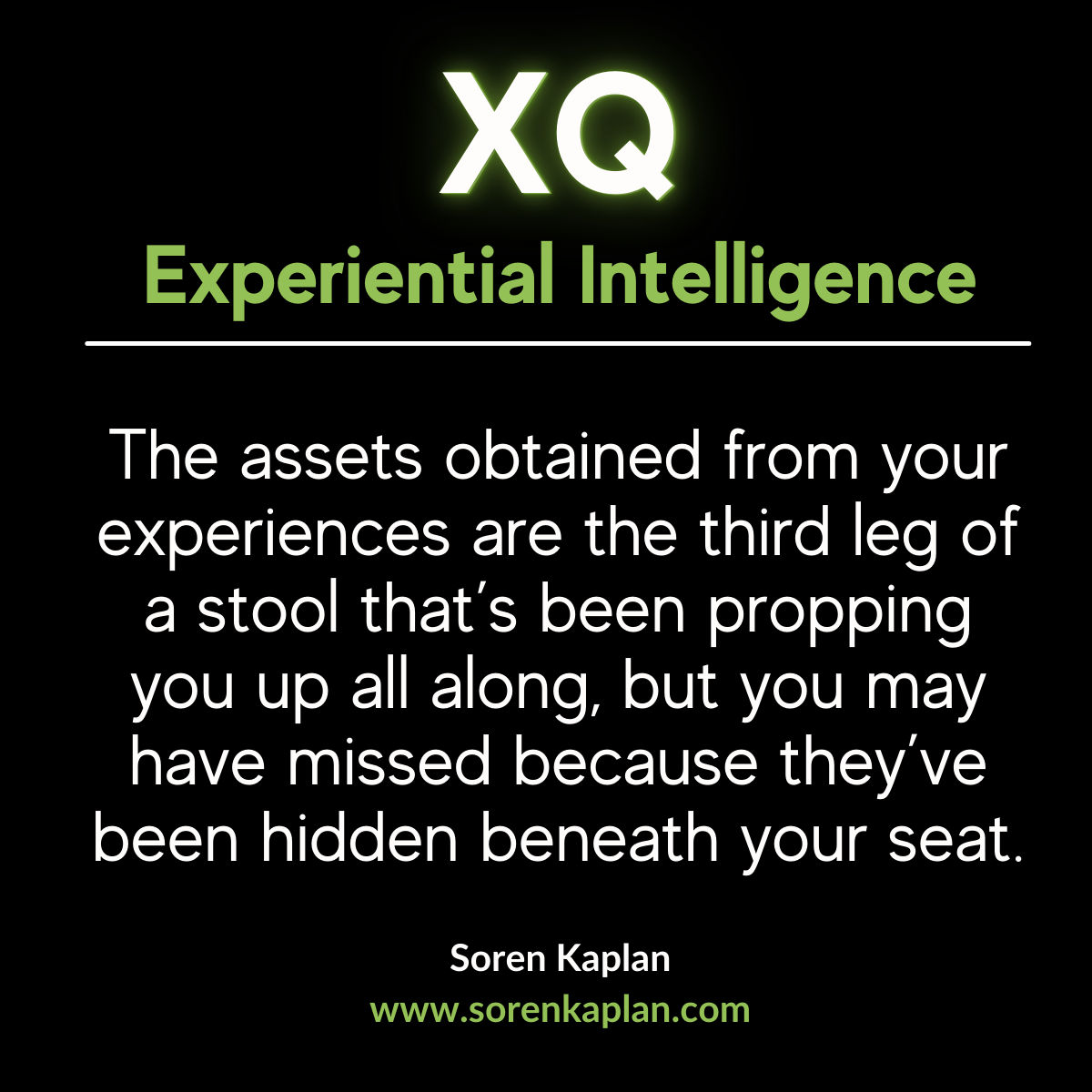
The assets obtained from your experiences are the third leg of a stool that’s been propping you up all along, but you may have missed because they’ve been hidden beneath your seat.
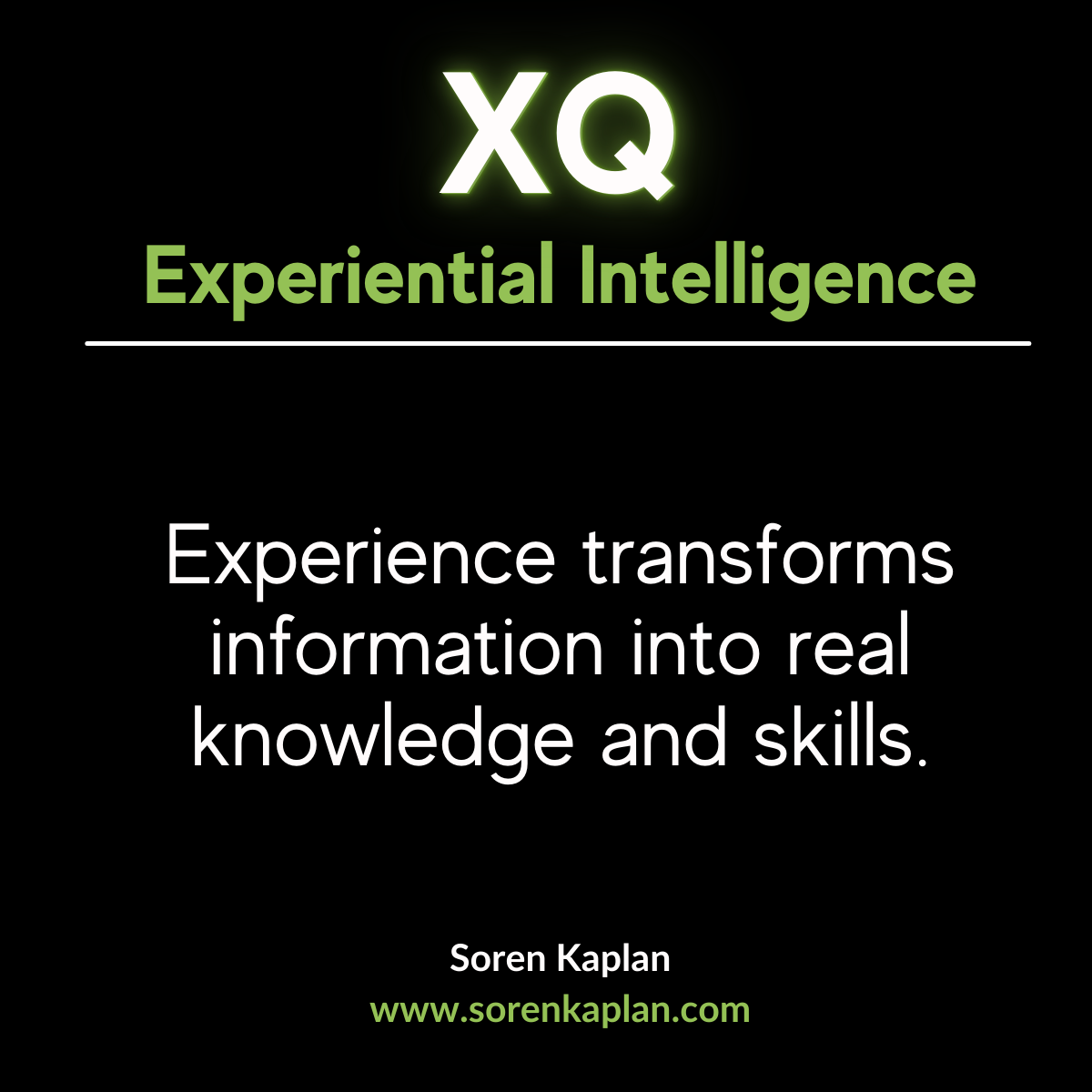
Experience transforms information into real knowledge and skills.
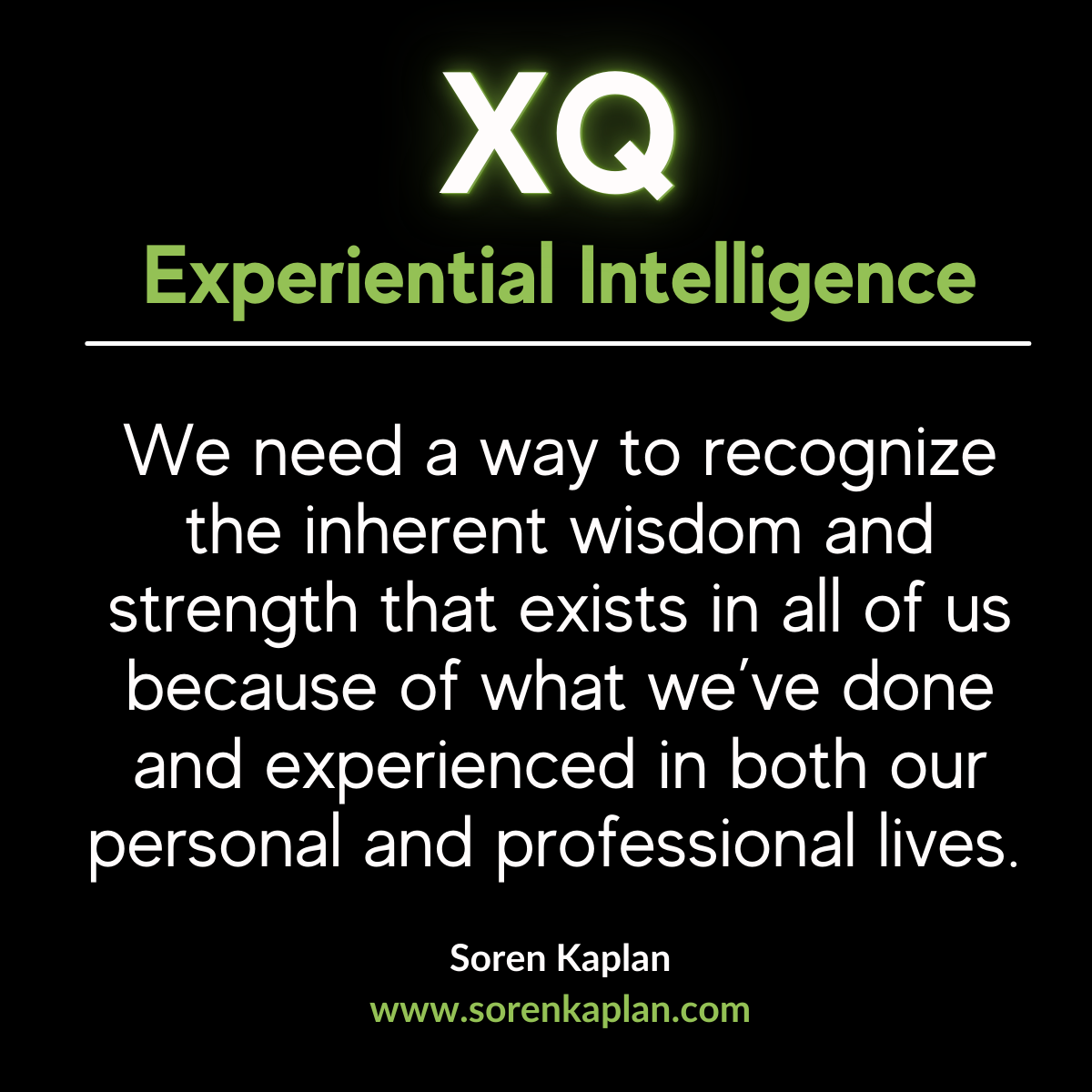
We need a way to recognize the inherent wisdom and strength that exists in all of us because of what we’ve done and experienced in both our personal and professional lives.
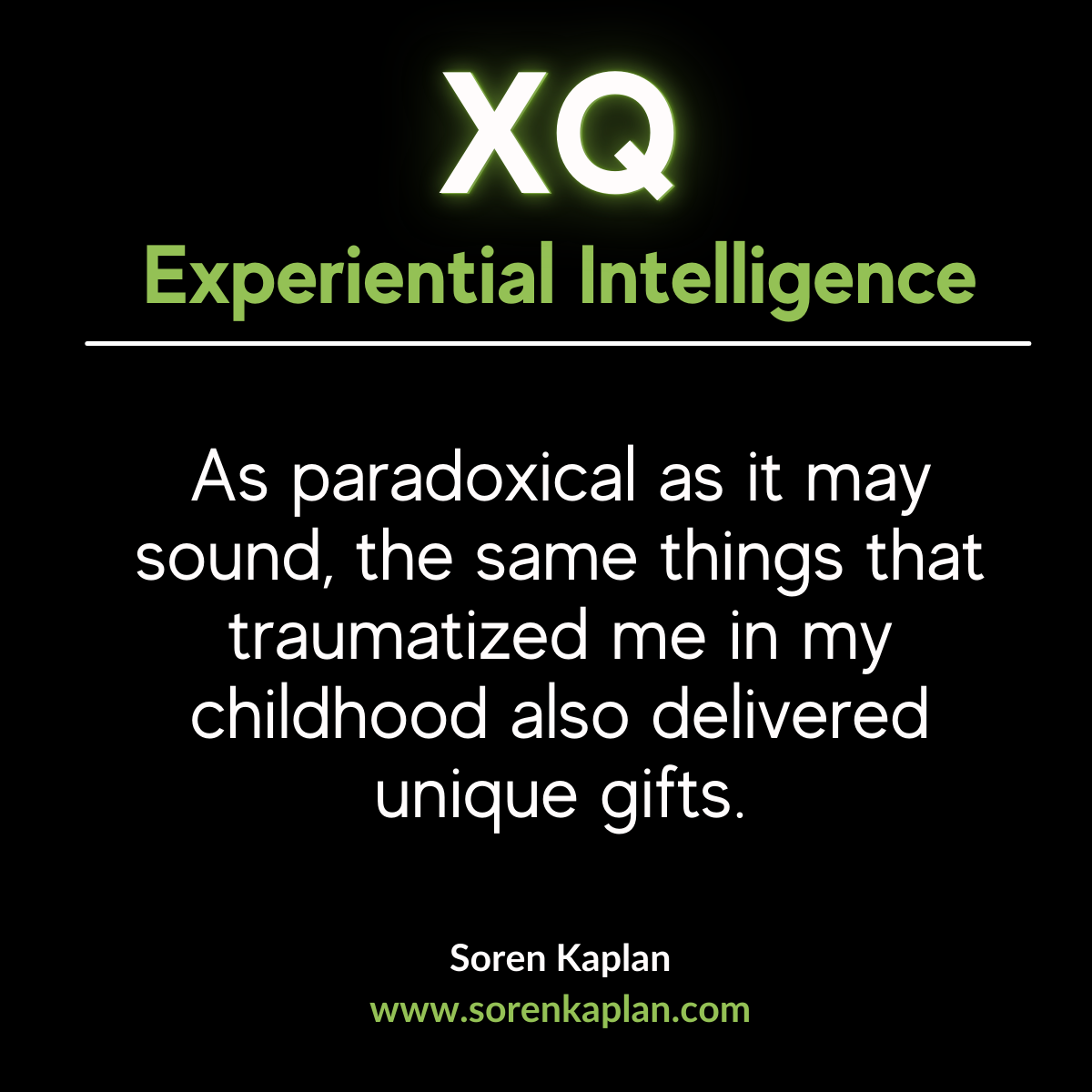
As paradoxical as it may sound, the same things that traumatized me in my childhood also delivered unique gifts.
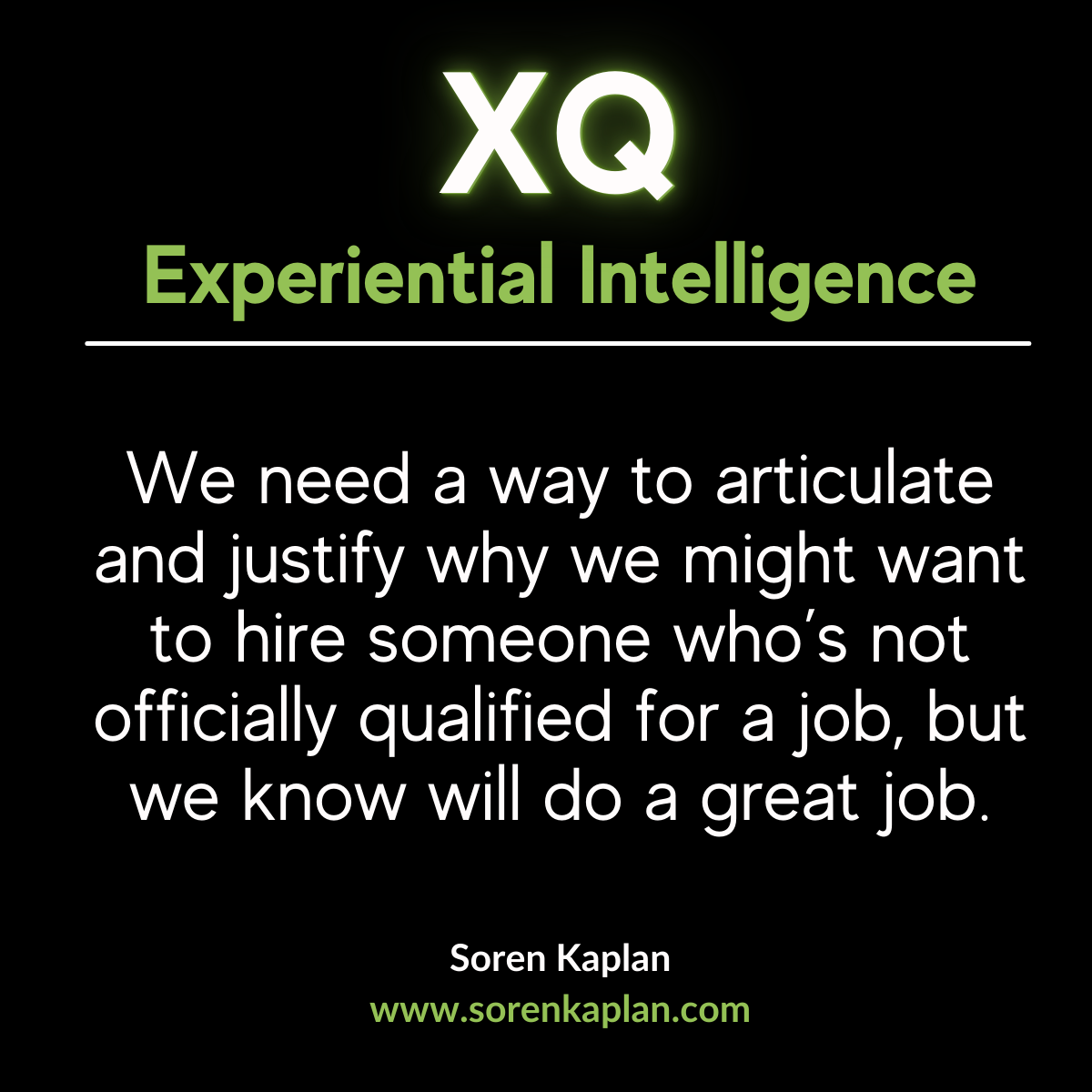
We need a way to articulate and justify why we might want to hire someone who’s not officially qualified for a job, but we know will do a great job.
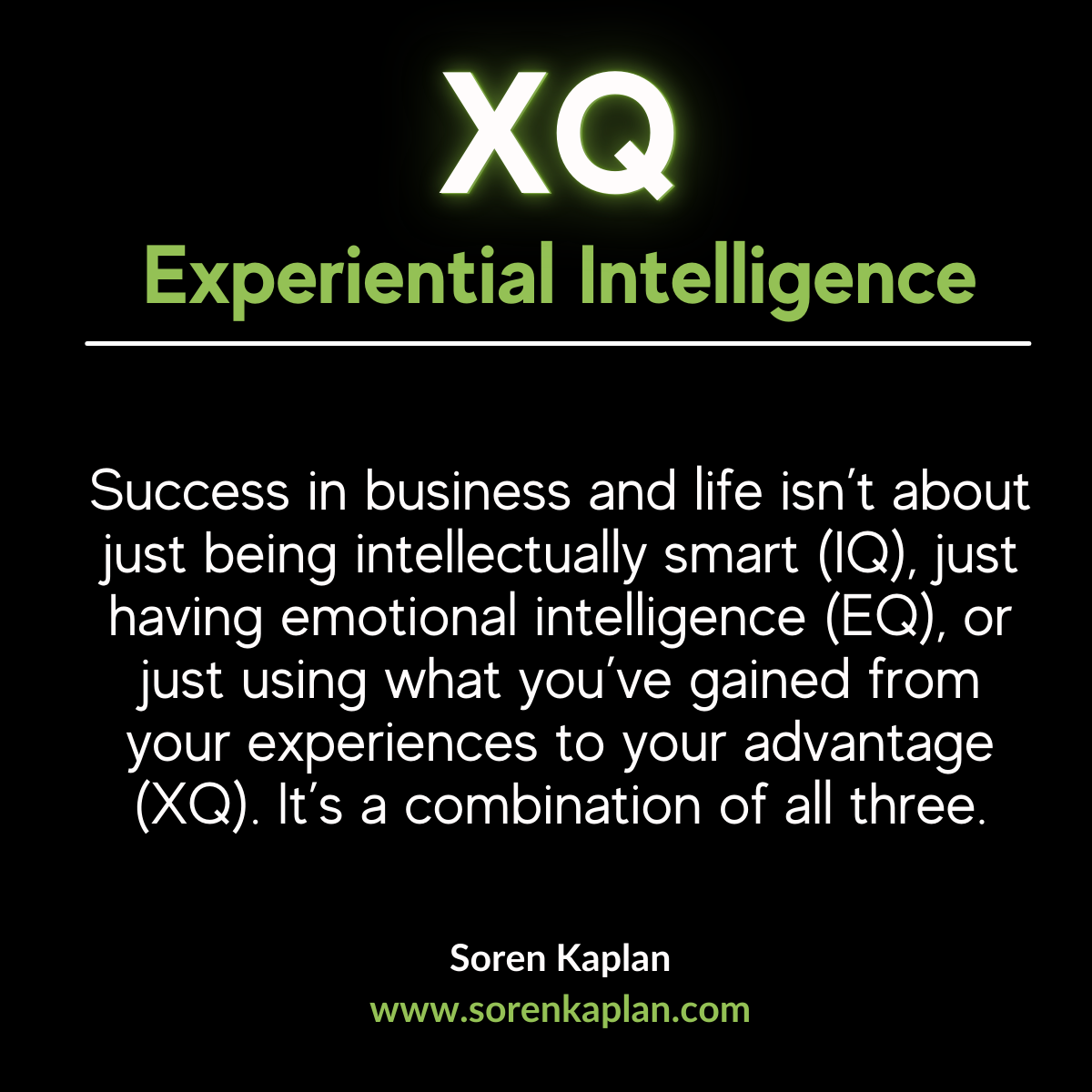
Success in business and life isn’t about just being intellectually smart (IQ), just having emotional intelligence (EQ), or just using what you’ve gained from your experiences to your advantage (XQ). It’s a combination of all three.
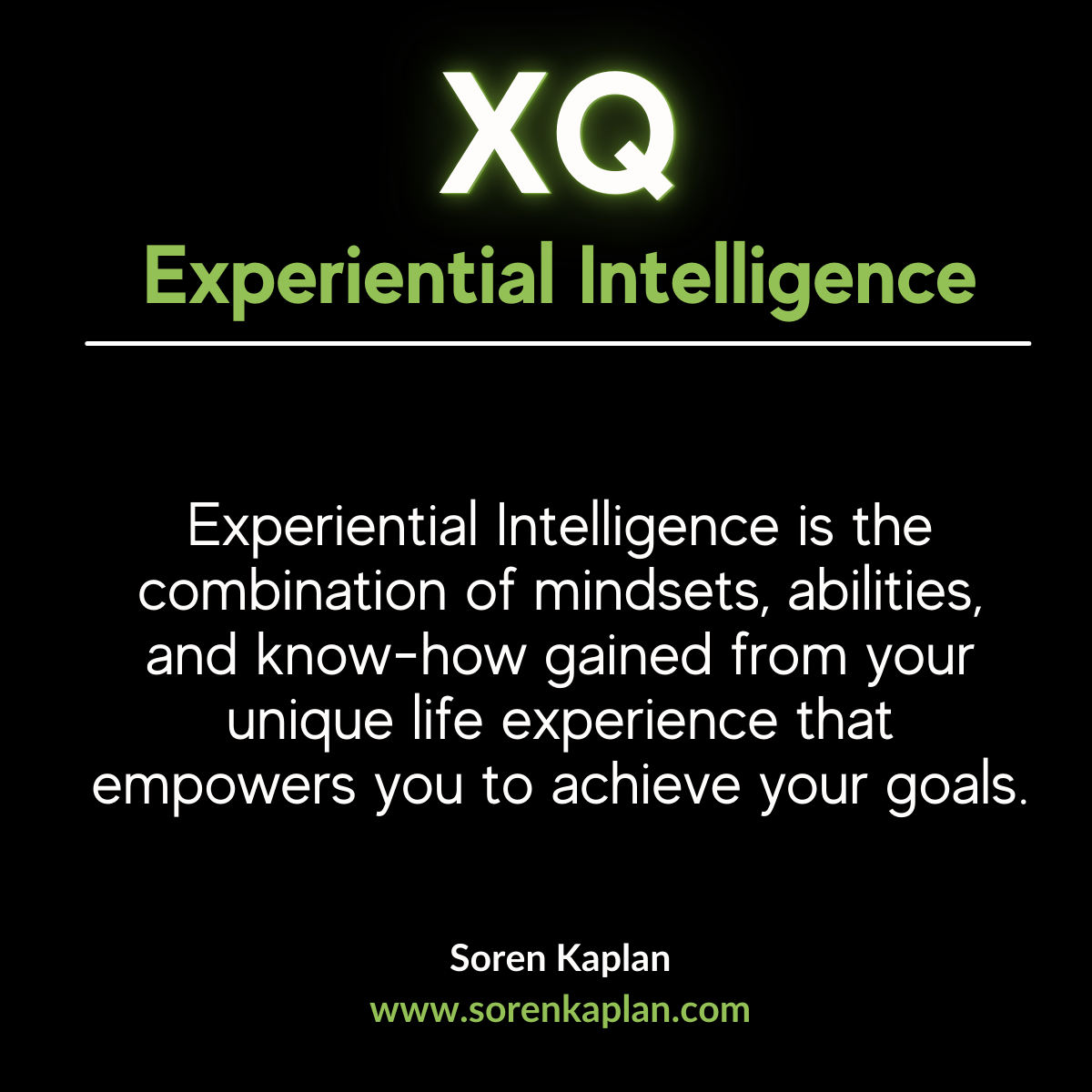
Experiential Intelligence is the combination of mindsets, abilities, and know-how gained from your unique life experience that empowers you to achieve your goals.

While the world generally recognizes IQ and EQ as indicators of ability and success, the missing element is Experiential Intelligence.
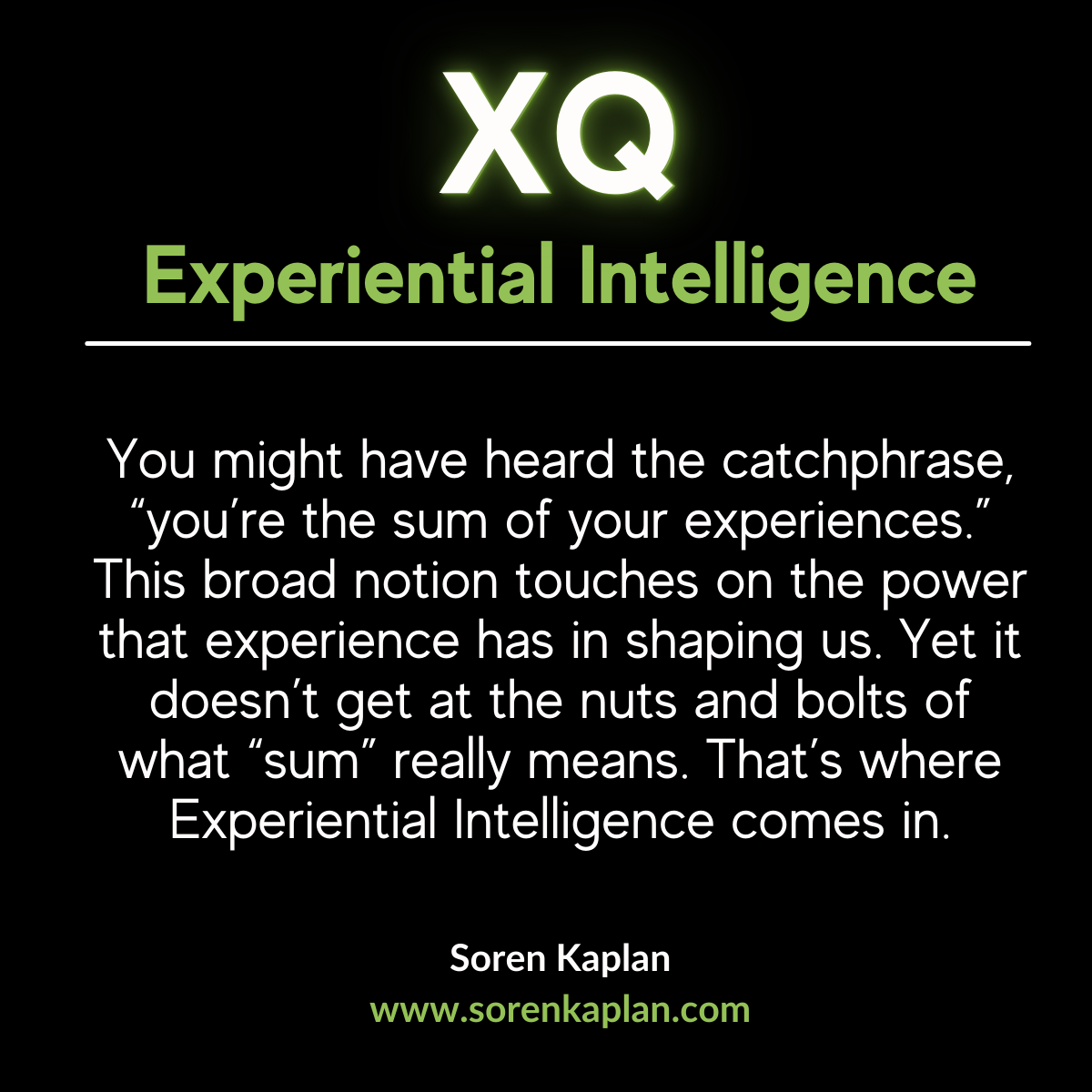
You might have heard the catchphrase, “you’re the sum of your experiences.” This broad notion touches on the power that experience has in shaping us. Yet it doesn’t get at the nuts and bolts of what “sum” really means. That’s where Experiential Intelligence comes in.

Just like memorizing a bunch of facts doesn’t give you a high IQ, your list of life lessons is not “intelligence” in and of itself. Your Experiential Intelligence is your unique constellation of mindsets, abilities, and know-how that you’ve gained over time through your experiences.
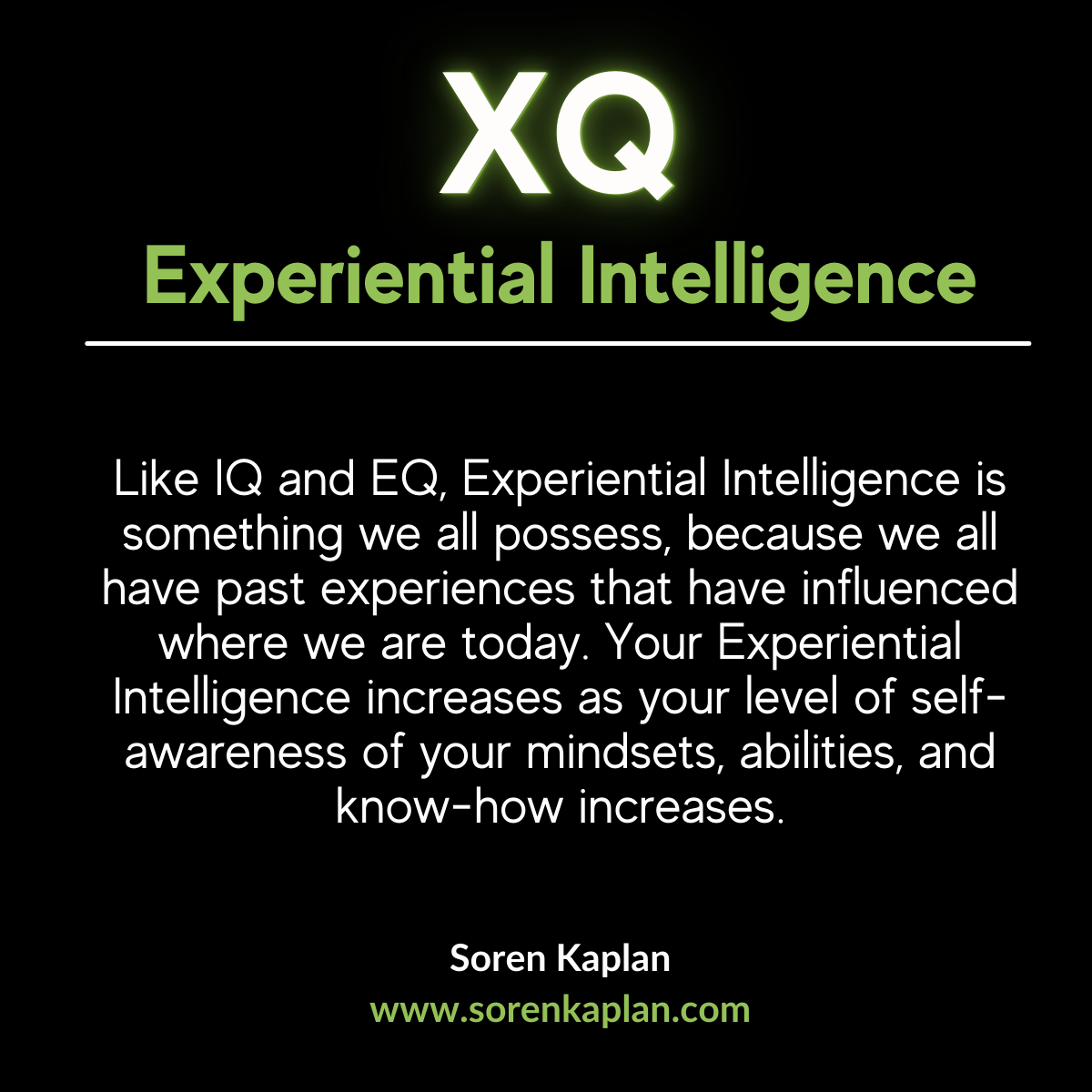
Like IQ and EQ, Experiential Intelligence is something we all possess, because we all have past experiences that have influenced where we are today. Your Experiential Intelligence increases as your level of self-awareness of your mindsets, abilities, and know-how increases.
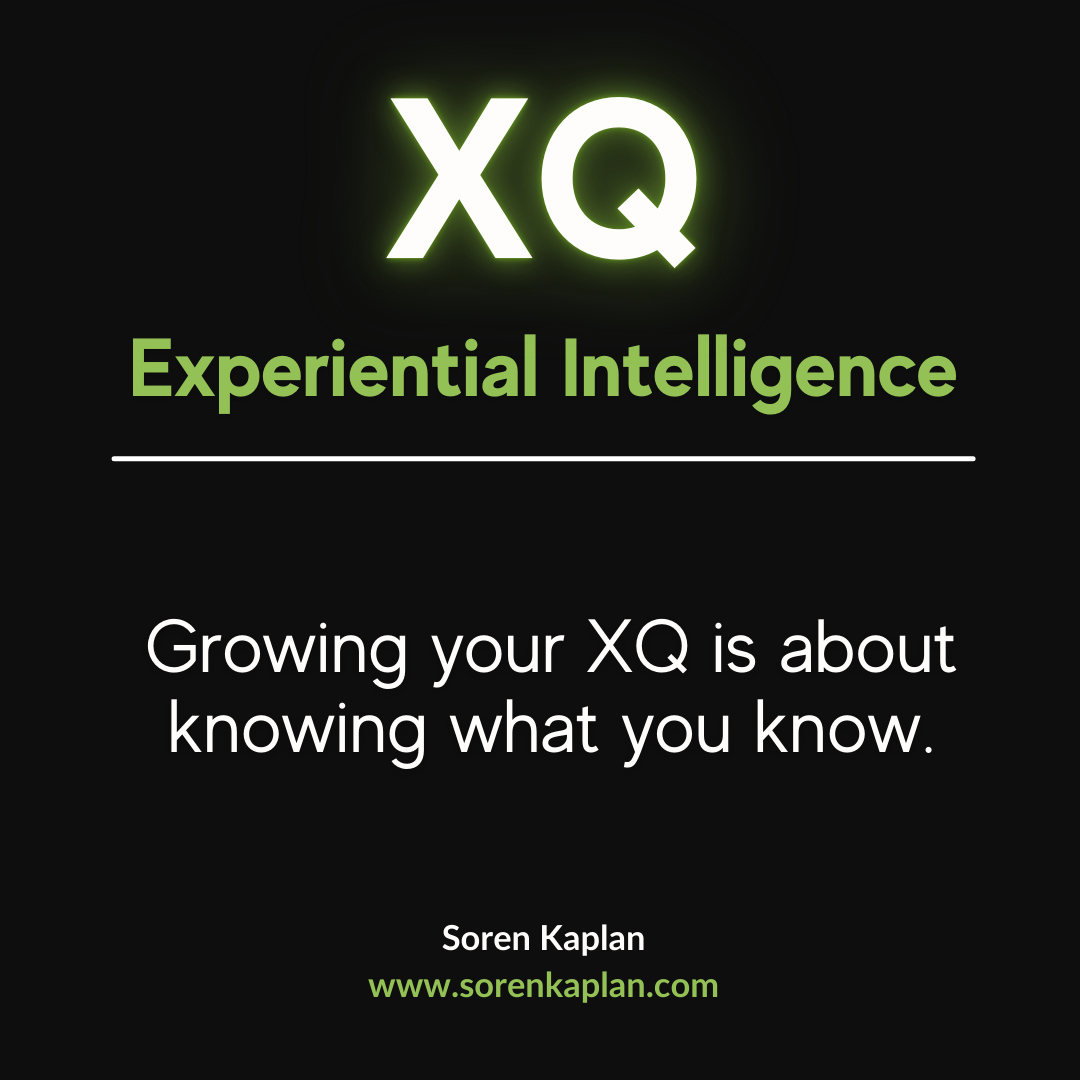
Growing your XQ is about knowing what you know.
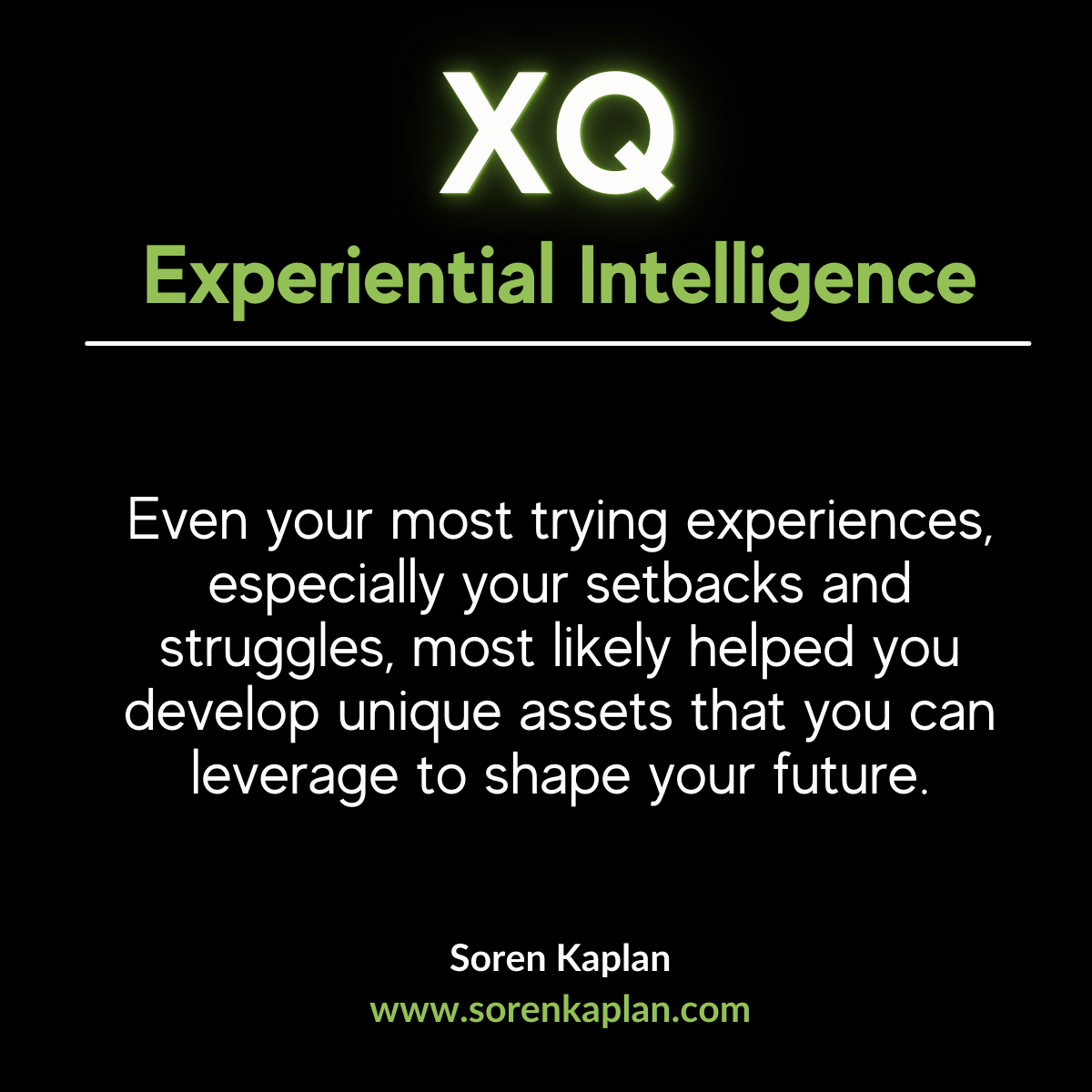
Even your most trying experiences, especially your setbacks and struggles, most likely helped you develop unique assets that you can leverage to shape your future.
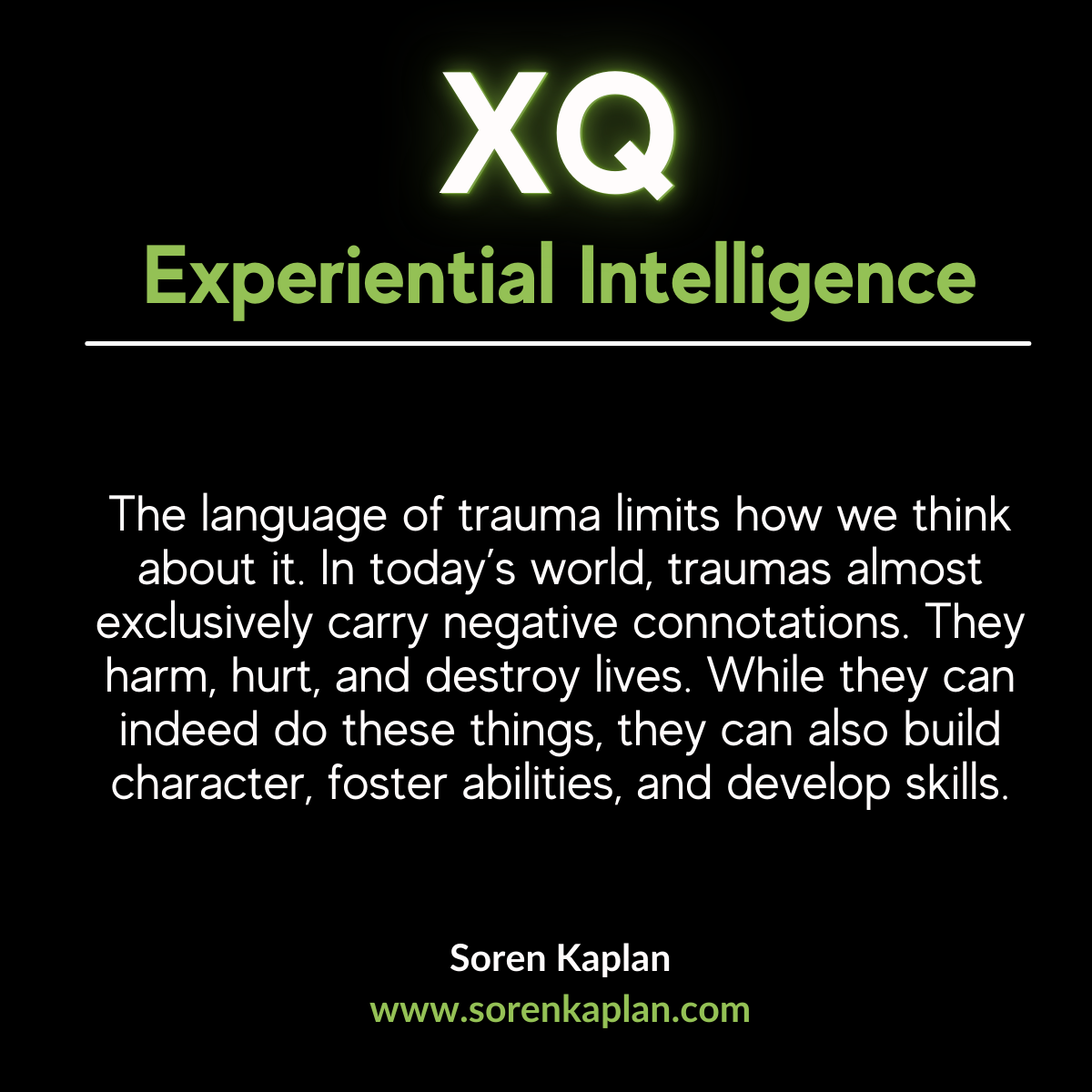
The language of trauma limits how we think about it. In today’s world, traumas almost exclusively carry negative connotations. They harm, hurt, and destroy lives. While they can indeed do these things, they can also build character, foster abilities, and develop skills.
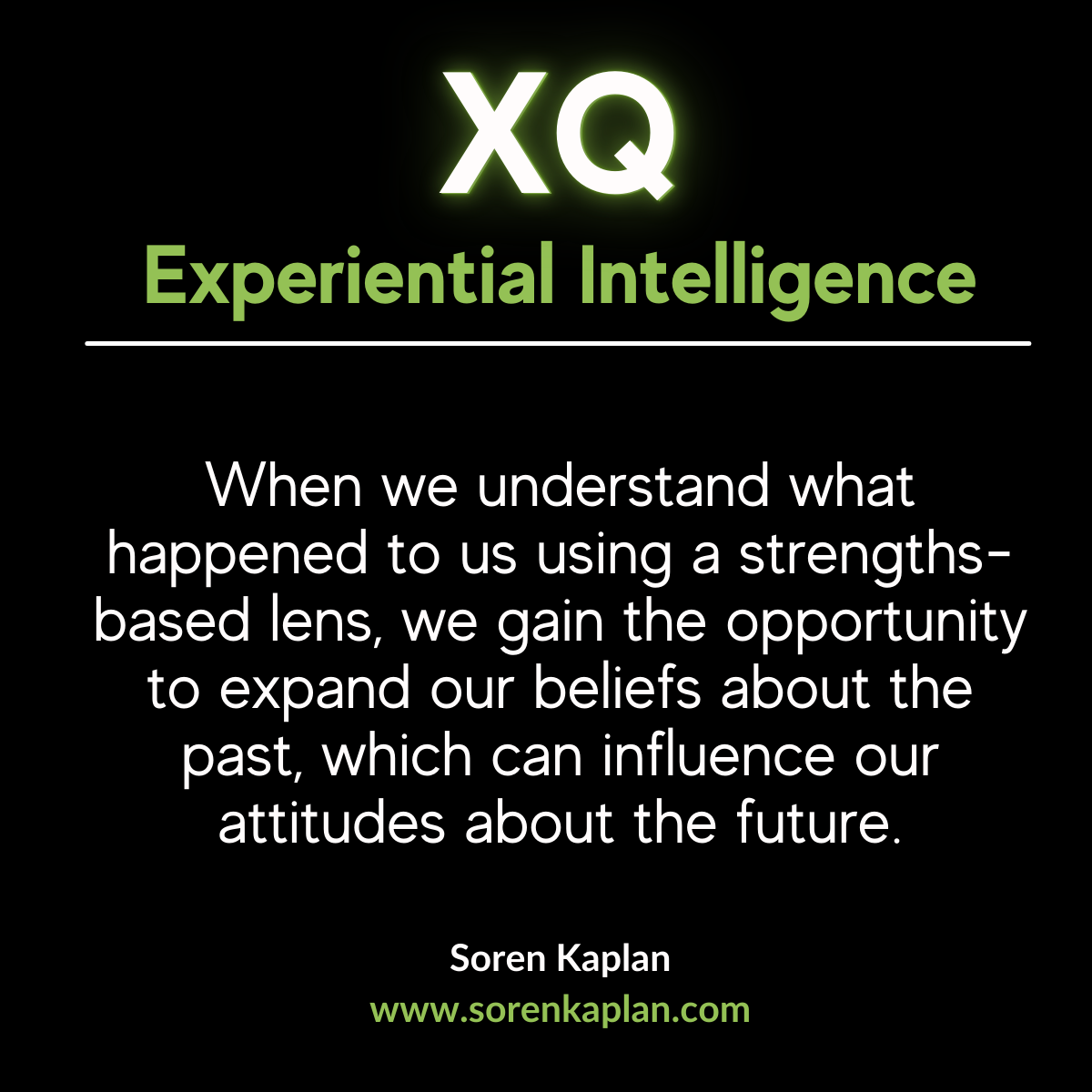
When we understand what happened to us using a strengths-based lens, we gain the opportunity to expand our beliefs about the past, which can influence our attitudes about the future.
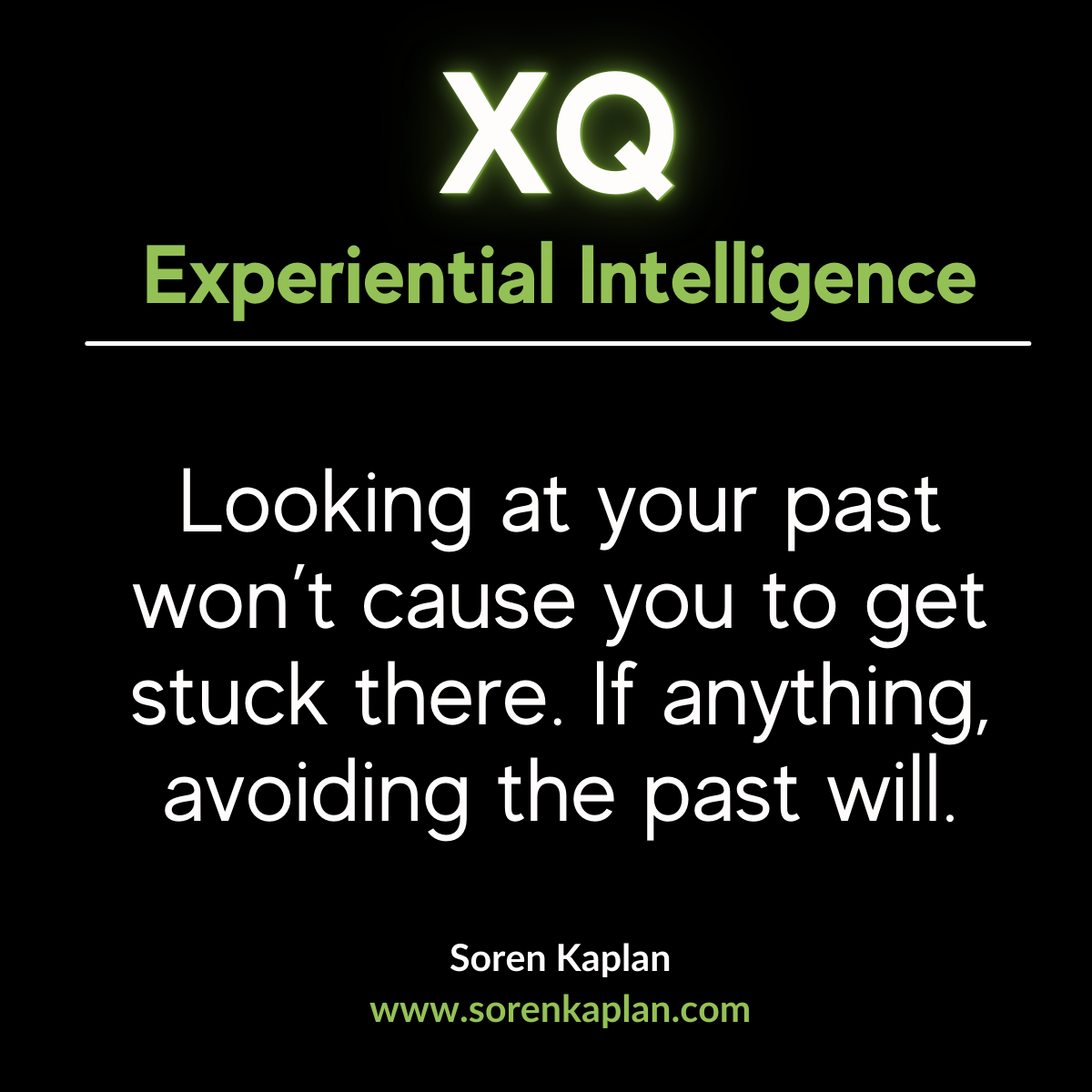
Looking at your past won’t cause you to get stuck there. If anything, avoiding the past will.
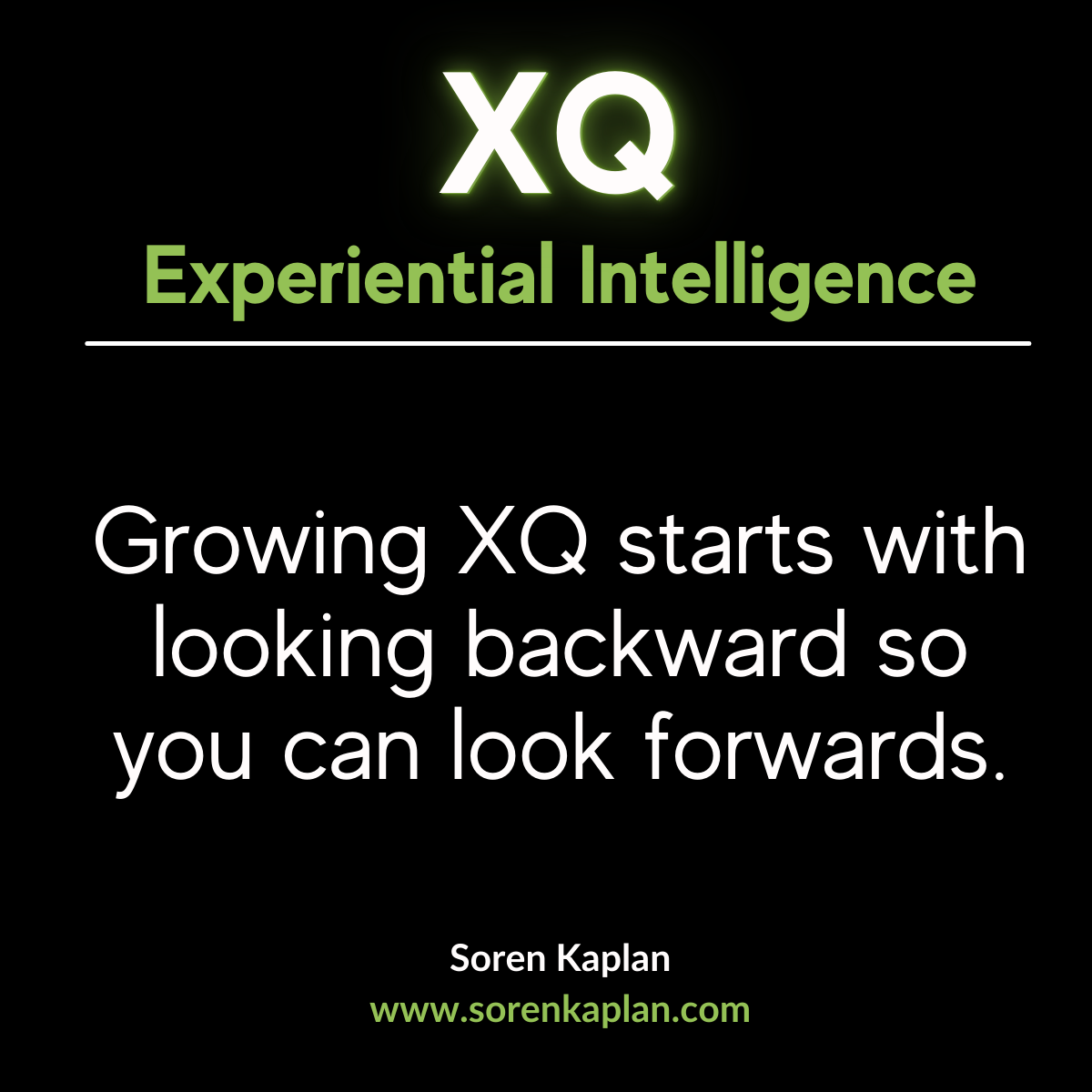
Growing XQ starts with looking backward so you can look forward.

While mindsets exist within individuals, shared mindsets create collective culture.
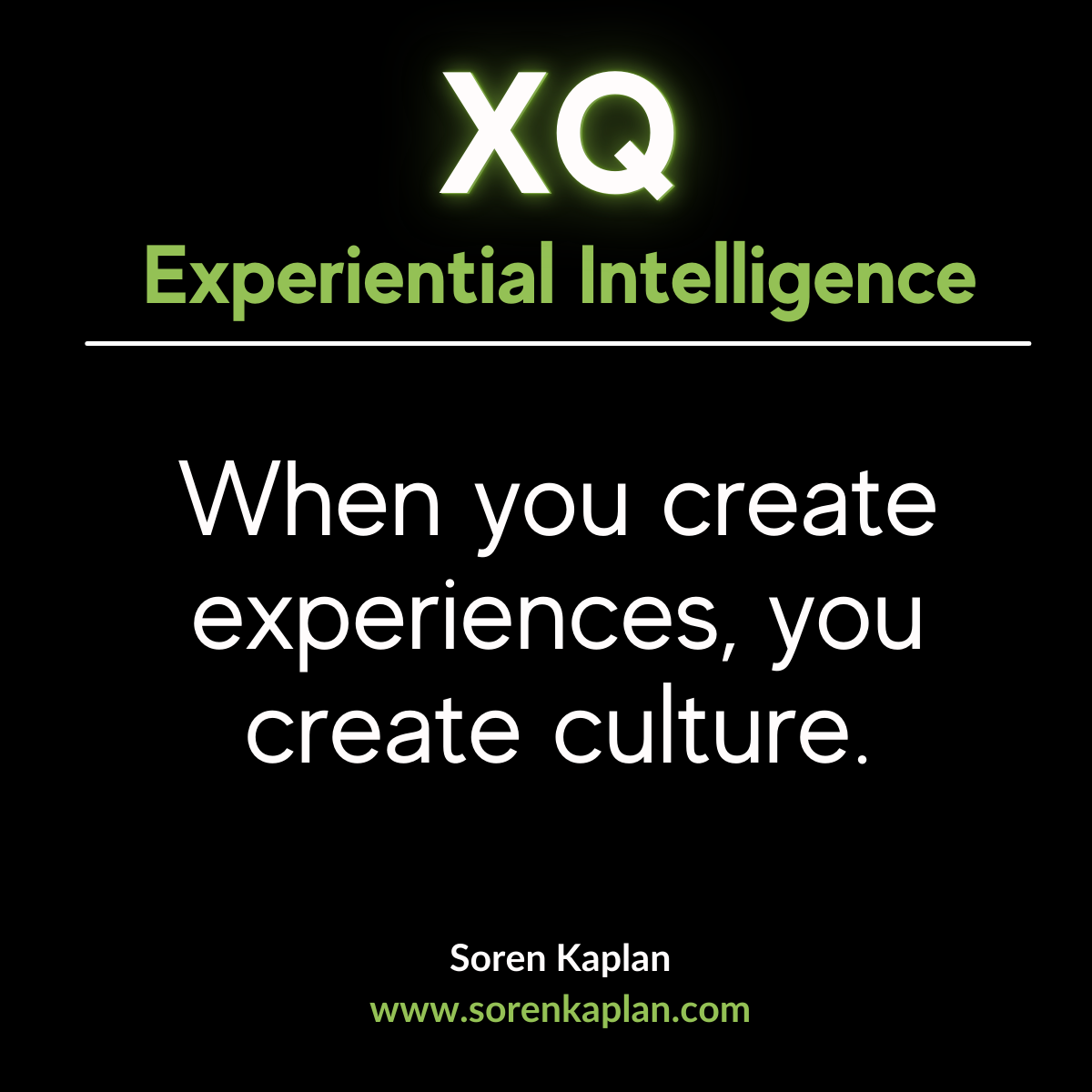
When you create experiences, you create culture.
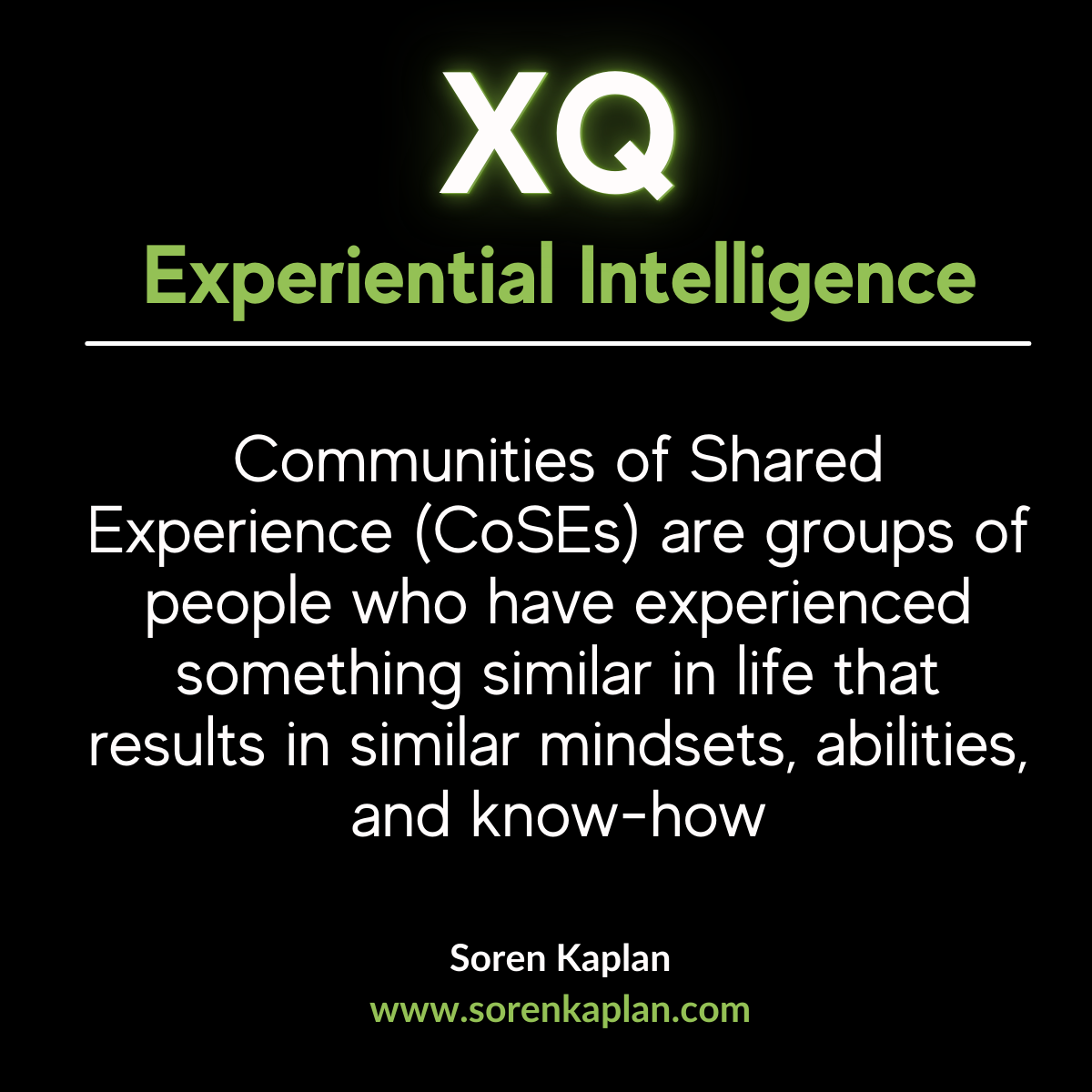
Communities of Shared Experience (CoSEs) are groups of people who have experienced something similar in life that results in similar mindsets, abilities, and know-how.
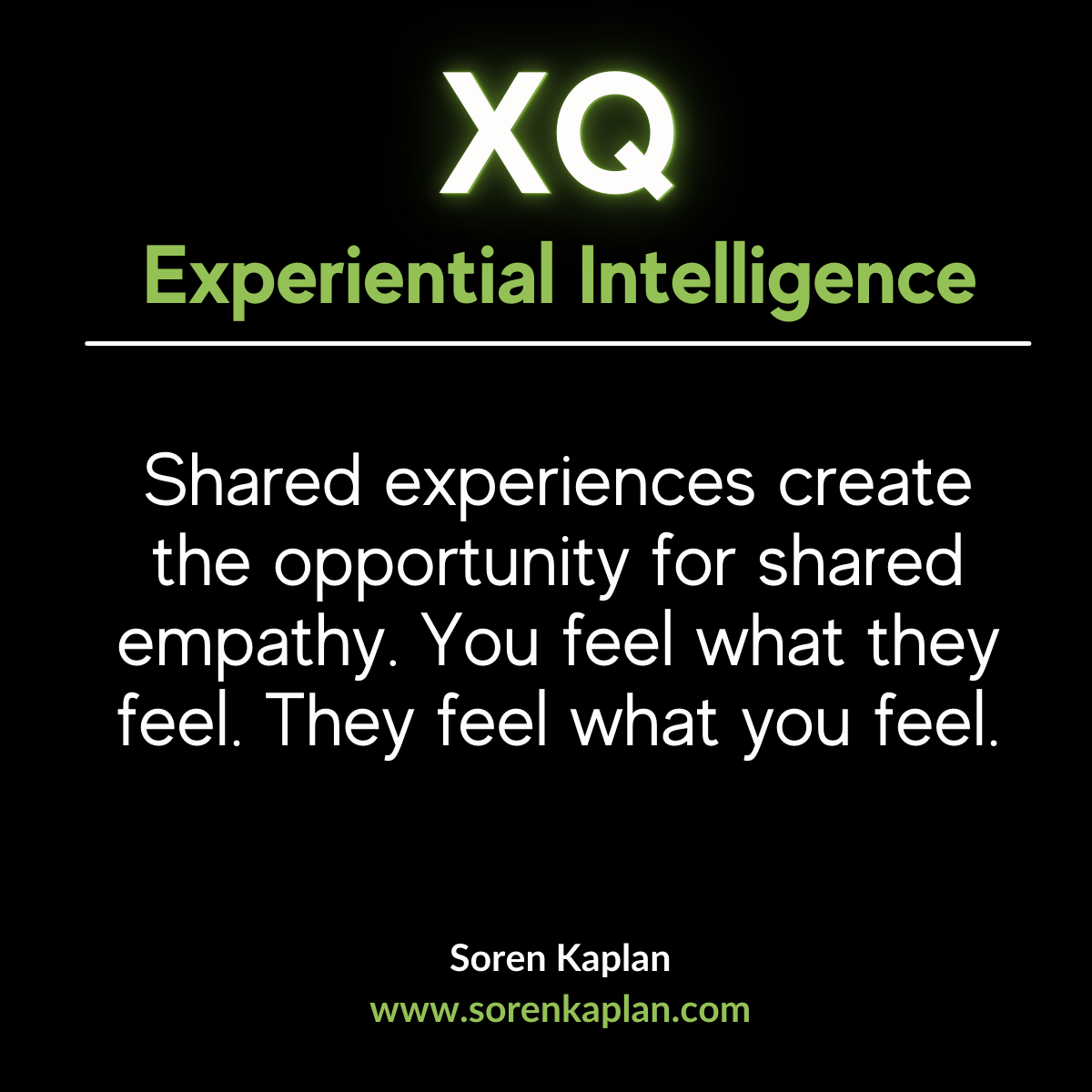
Shared experiences create the opportunity for shared empathy. You feel what they feel. They feel what you feel.
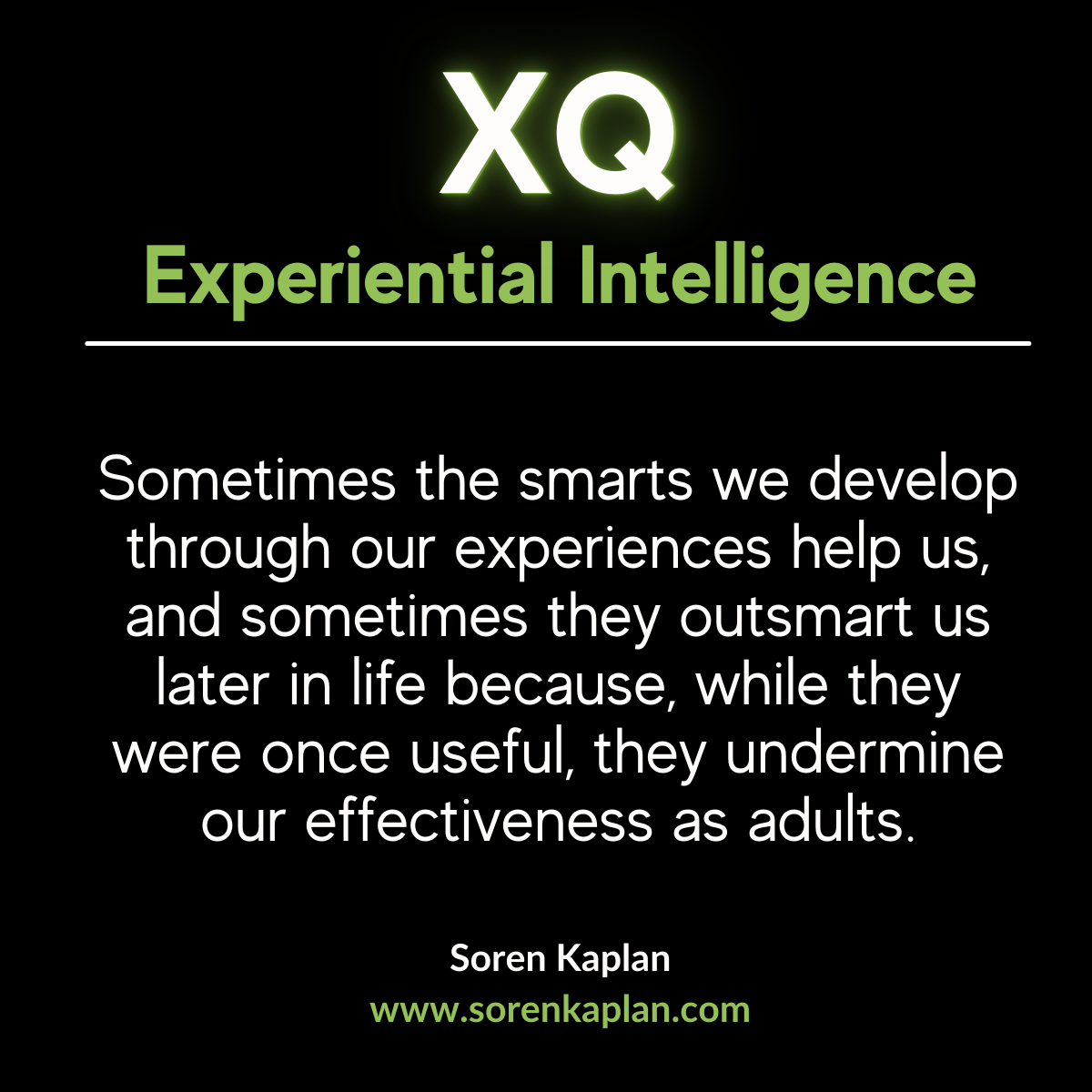
Sometimes the smarts we develop through our experiences help us, and sometimes they outsmart us later in life because, while they were once useful, they undermine our effectiveness as adults.
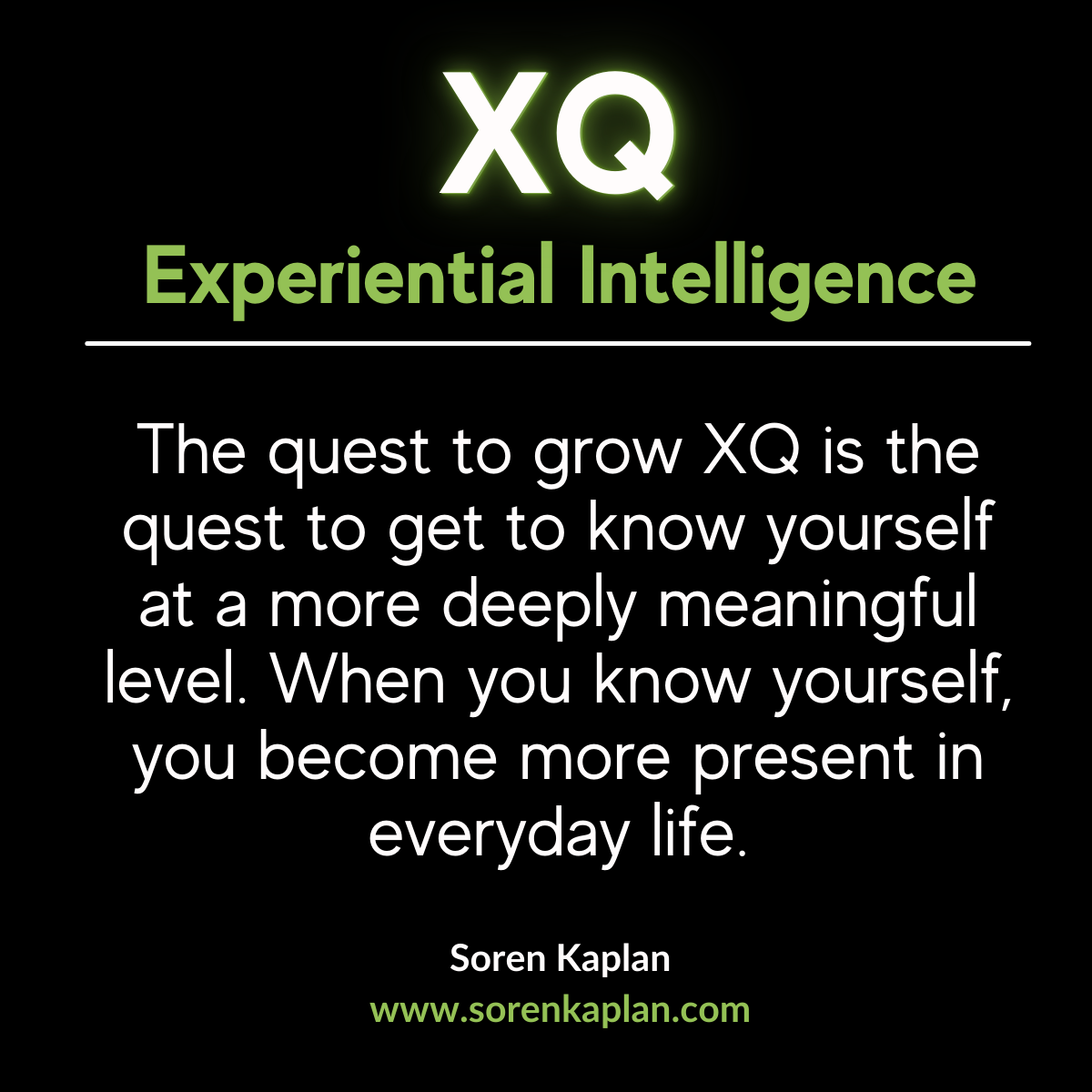
The quest to grow XQ is the quest to get to know yourself at a more deeply meaningful level. When you know yourself, you become more present in everyday life.
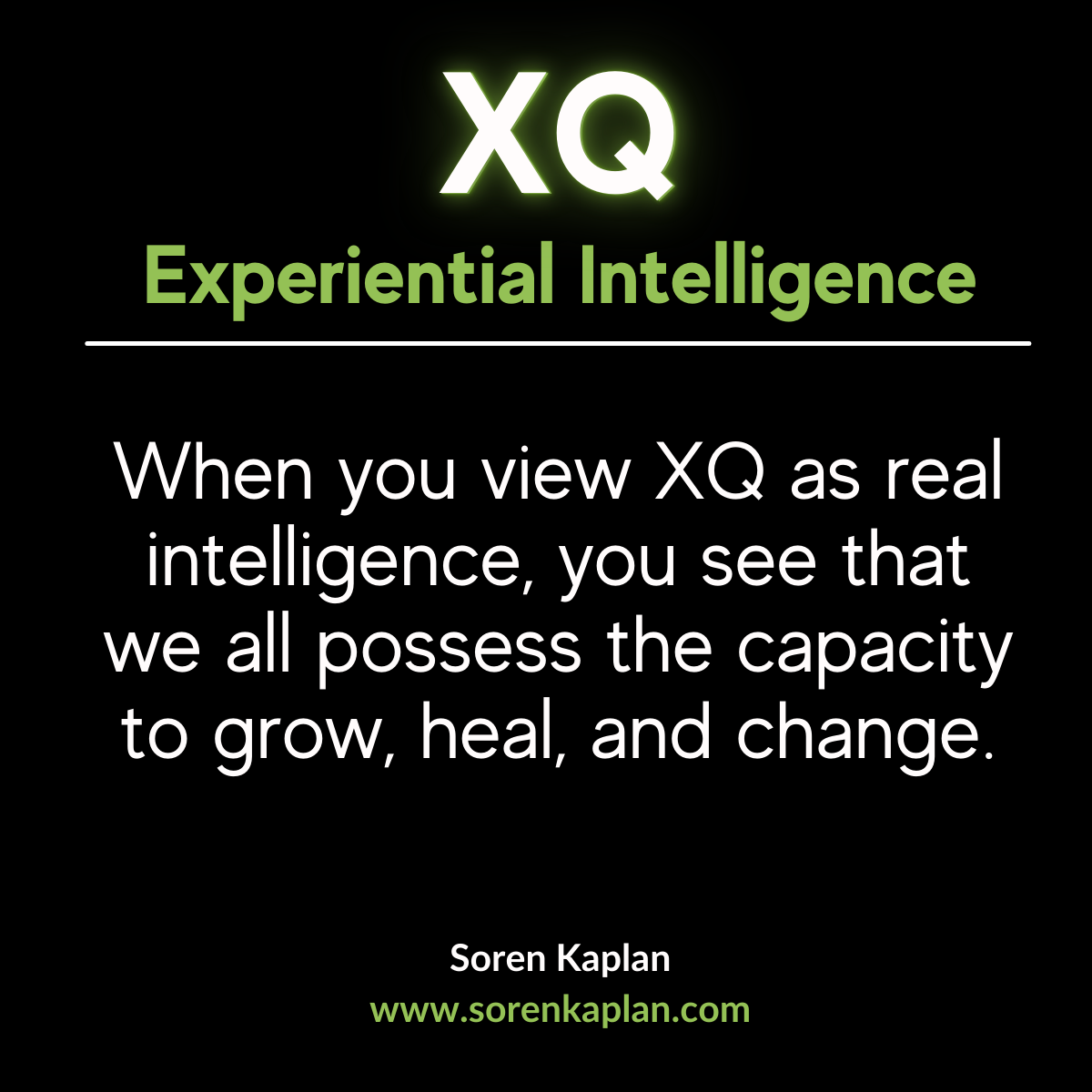
When you view XQ as real intelligence, you see that we all possess the capacity to grow, heal, and change.
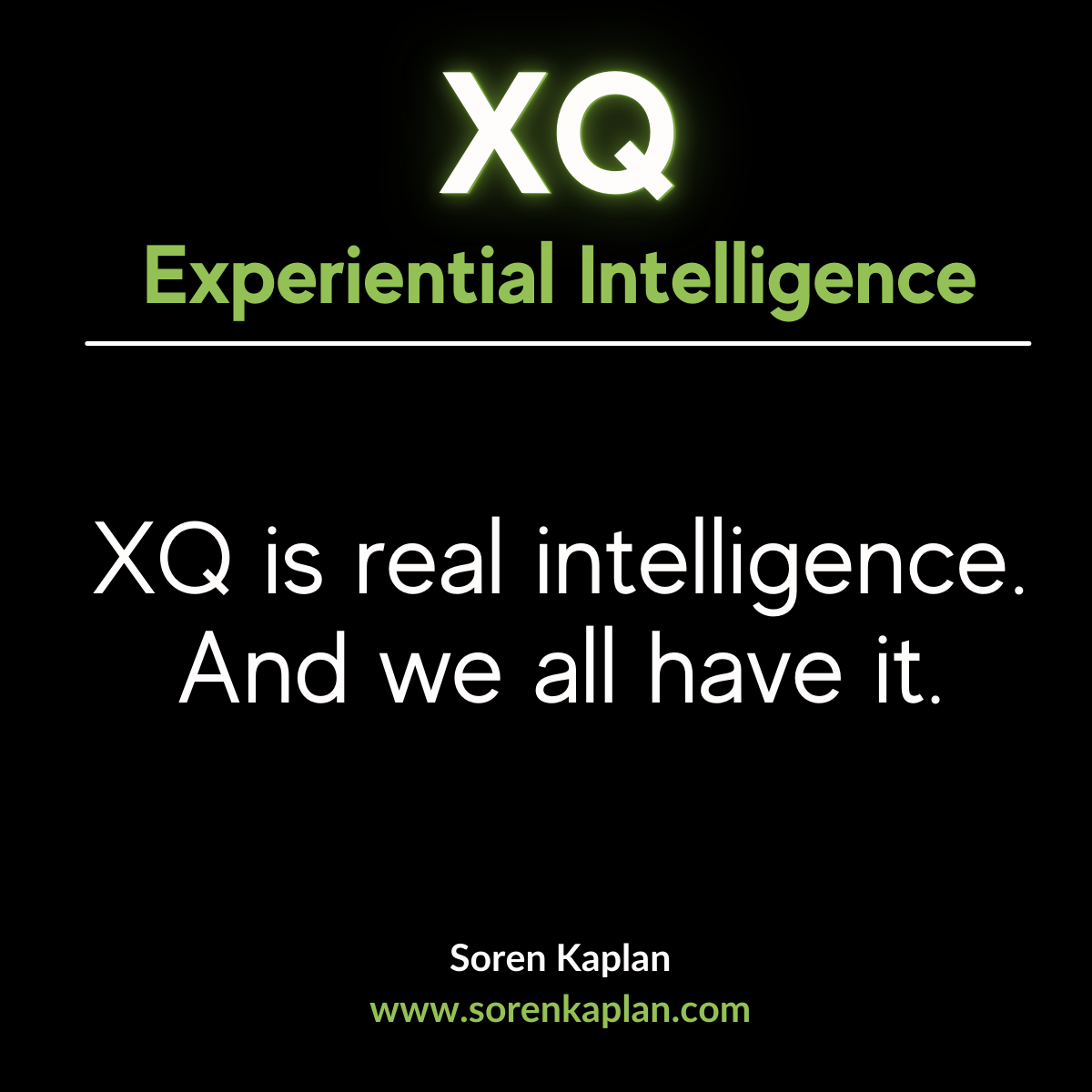
XQ is real intelligence. And we all have it.

Experiential Intelligence (XQ) is your unique internal fingerprint.

If we only focus on the formal processes and hard skills we see on resumes – the things visible above the waterline – we miss opportunities that tap into the deeper mindsets and abilities that exist below.
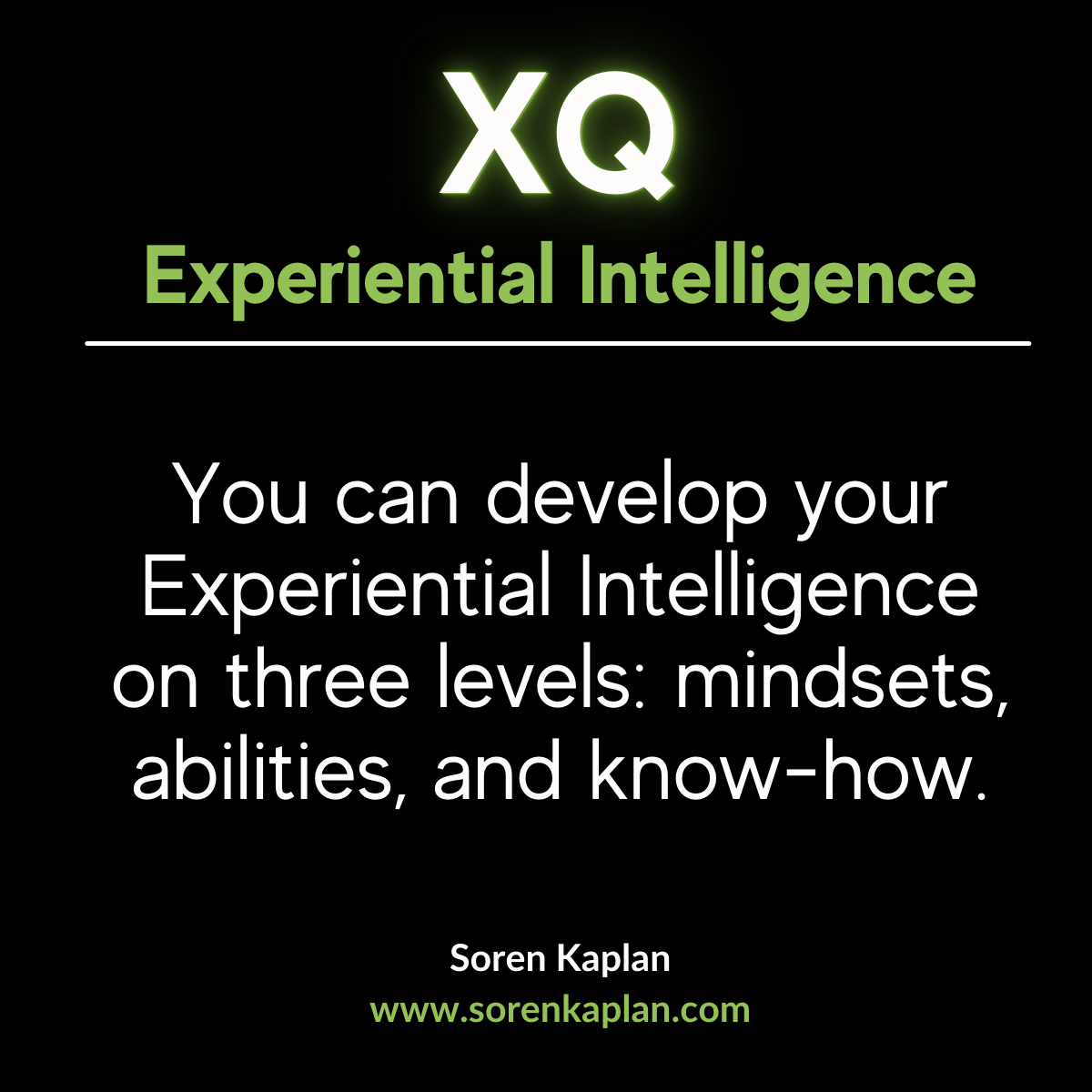
You can develop your Experiential Intelligence on three levels: mindsets, abilities, and know-how.
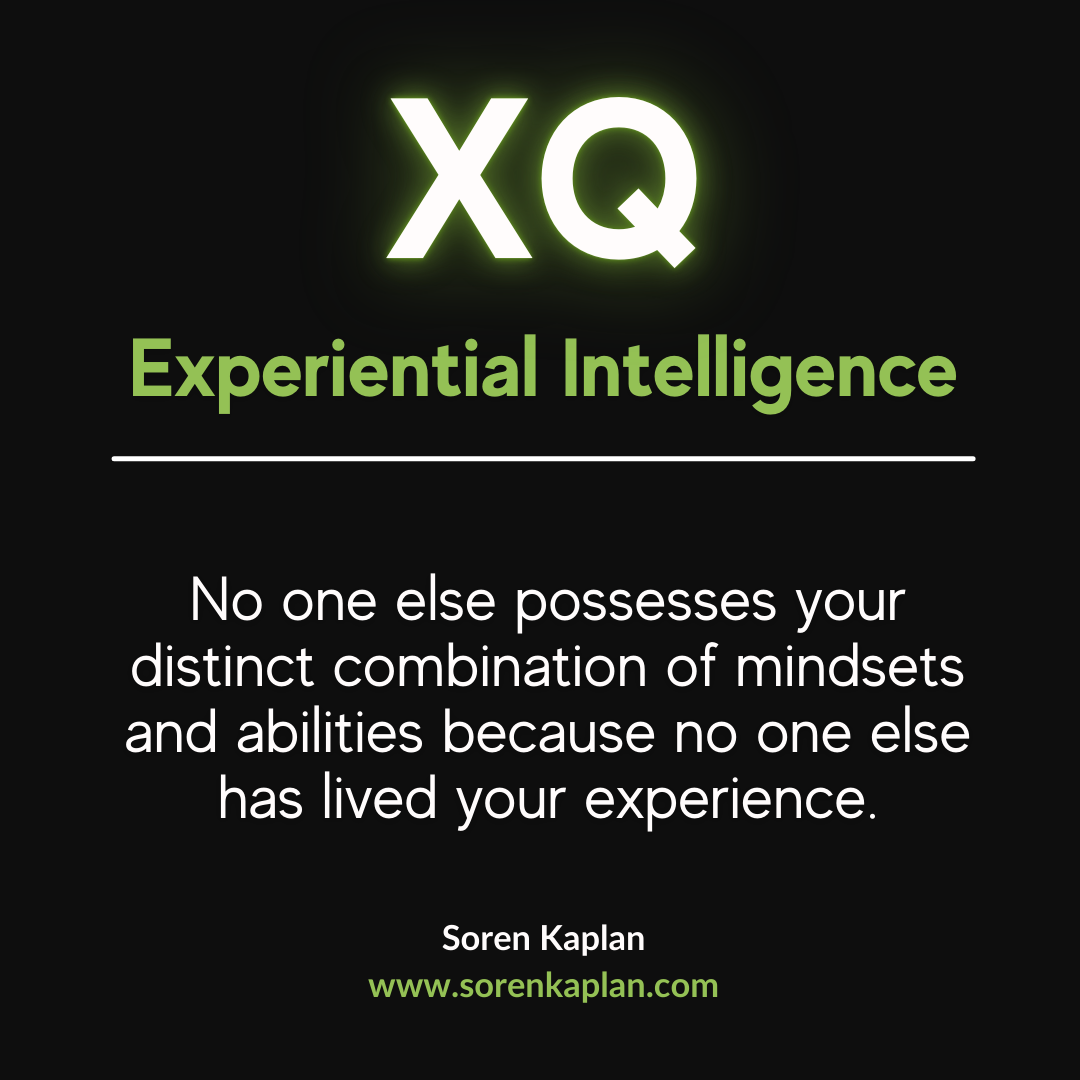
No one else possesses your distinct combination of mindsets and abilities because no one else has lived your experience.
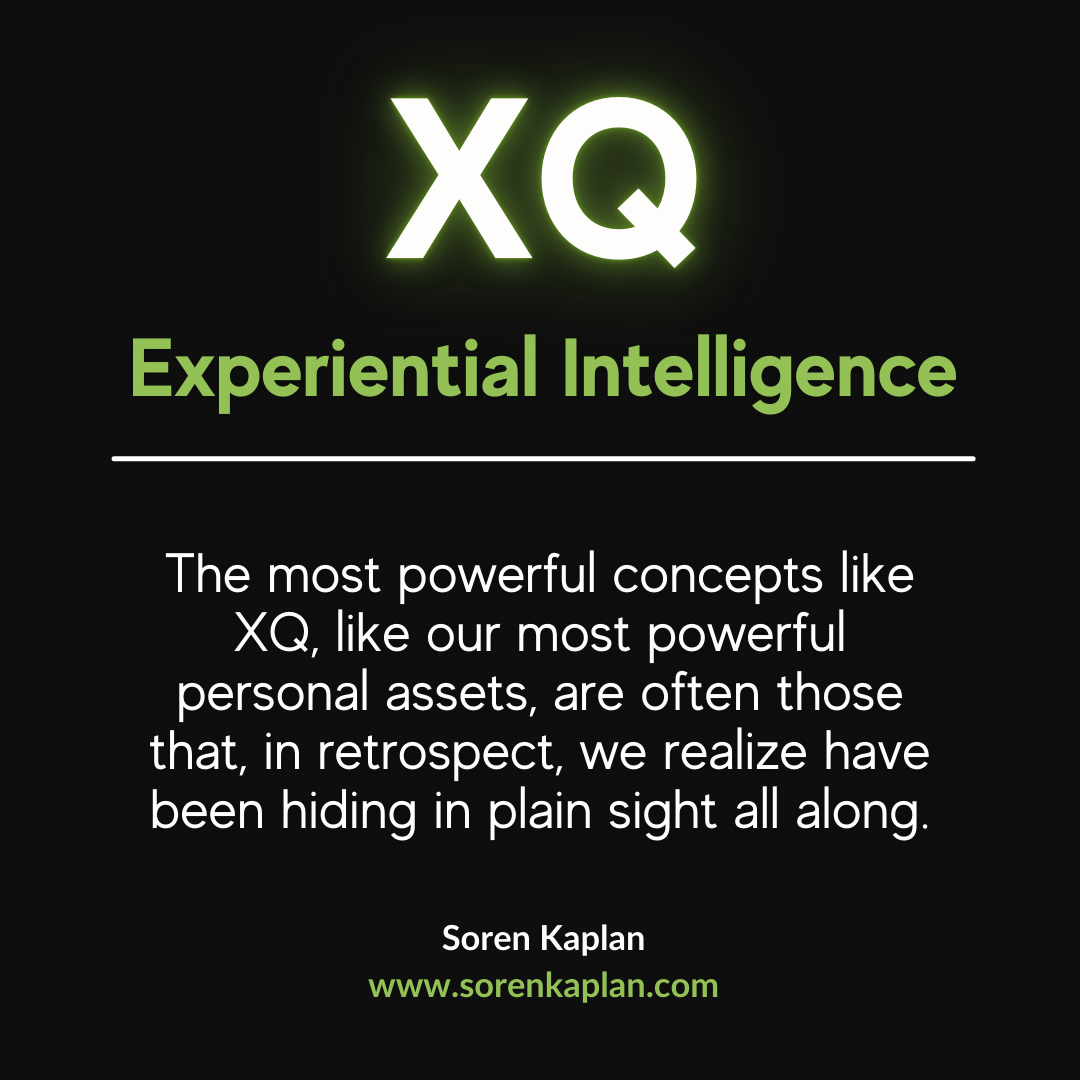
The most powerful concepts like XQ, like our most powerful personal assets, are often those that, in retrospect, we realize have been hiding in plain sight all along.
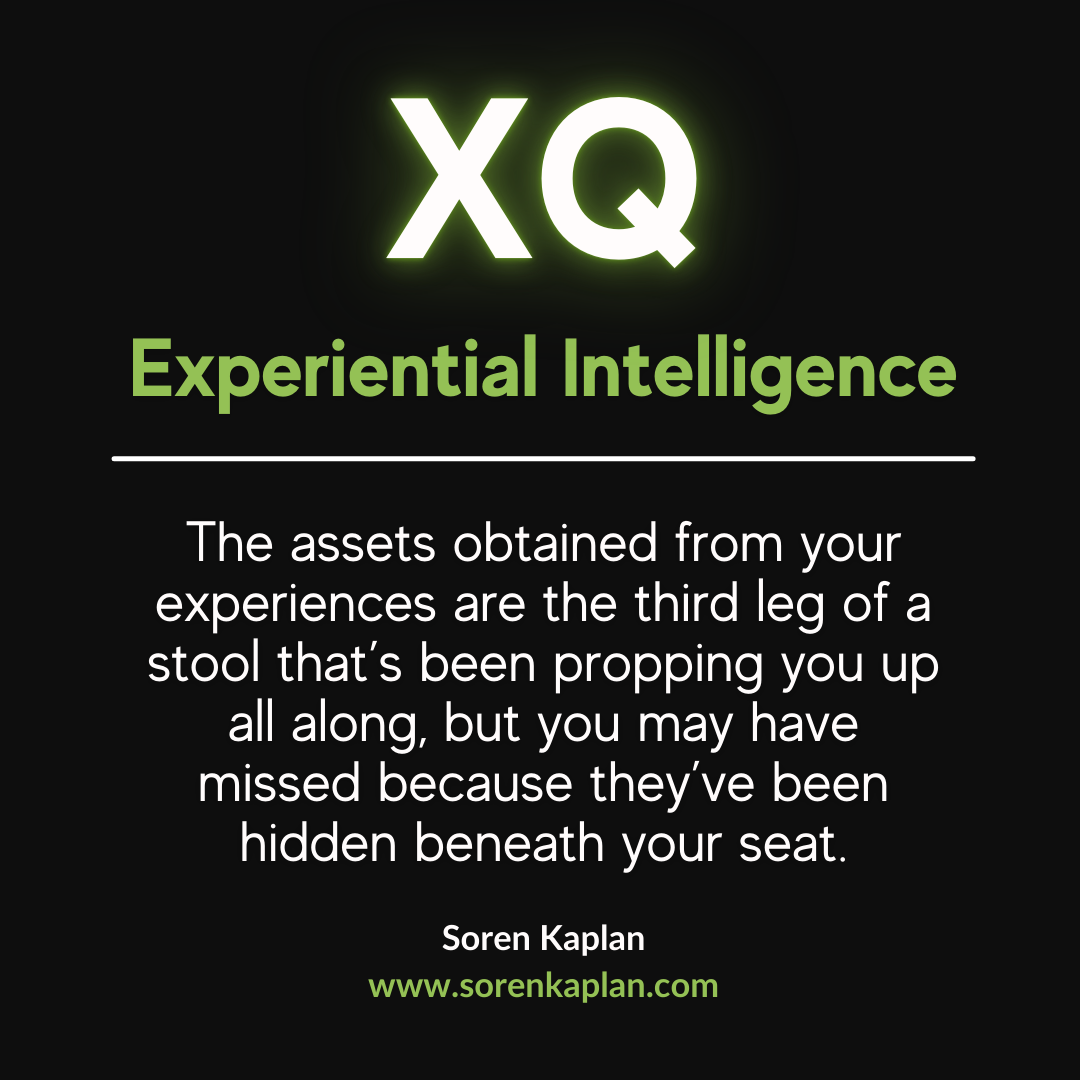
The assets obtained from your experiences are the third leg of a stool that’s been propping you up all along, but you may have missed because they’ve been hidden beneath your seat.
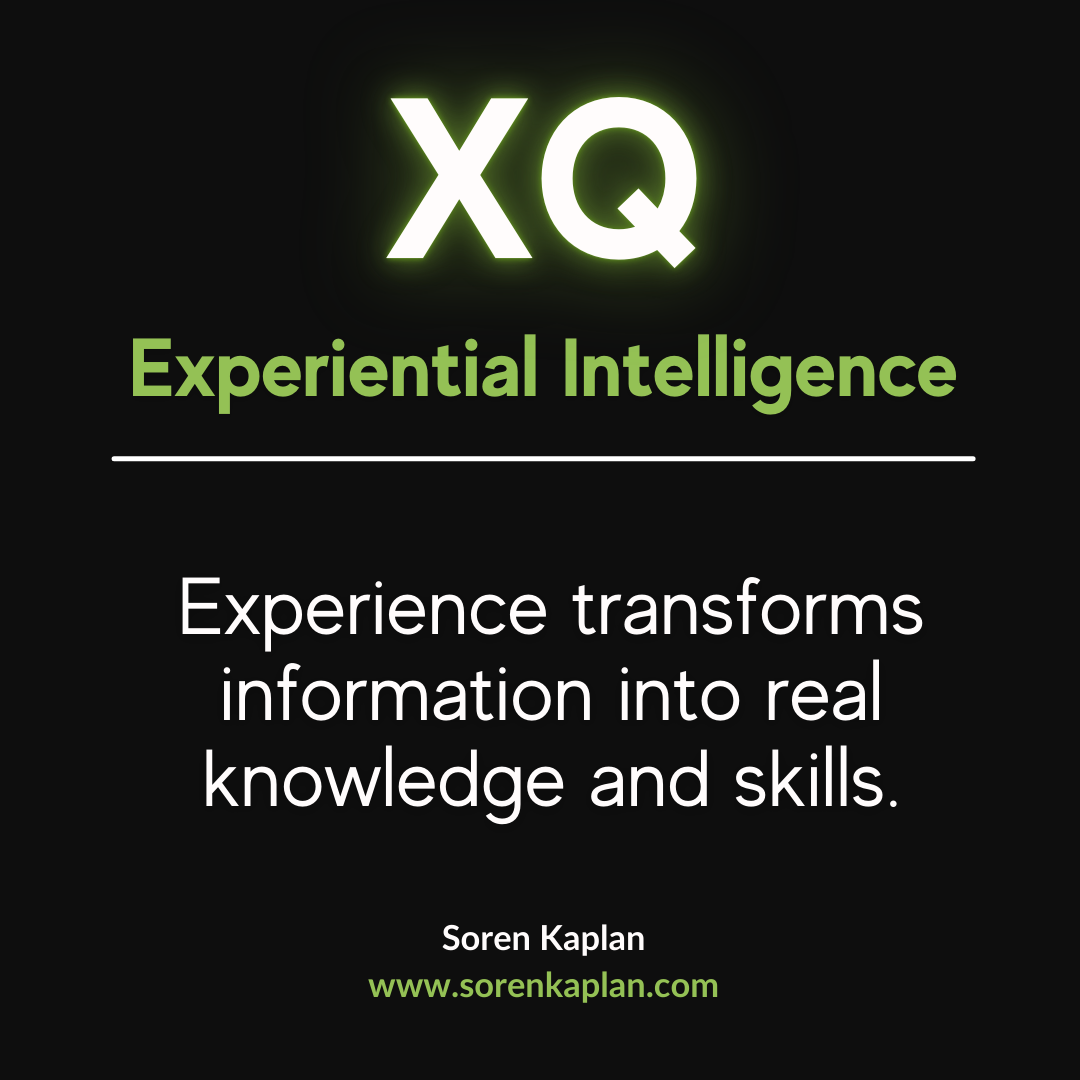
Experience transforms information into real knowledge and skills.
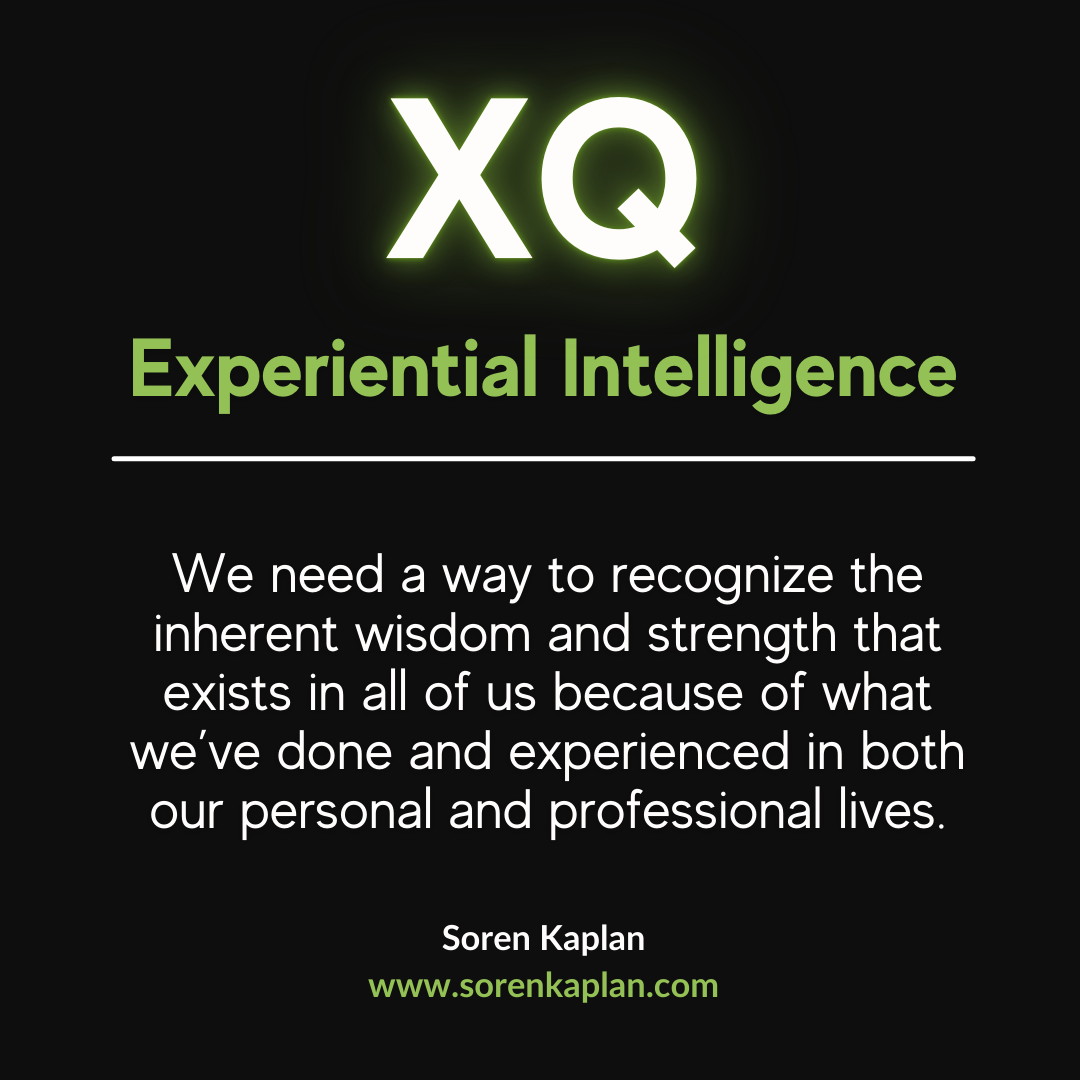
We need a way to recognize the inherent wisdom and strength that exists in all of us because of what we’ve done and experienced in both our personal and professional lives.
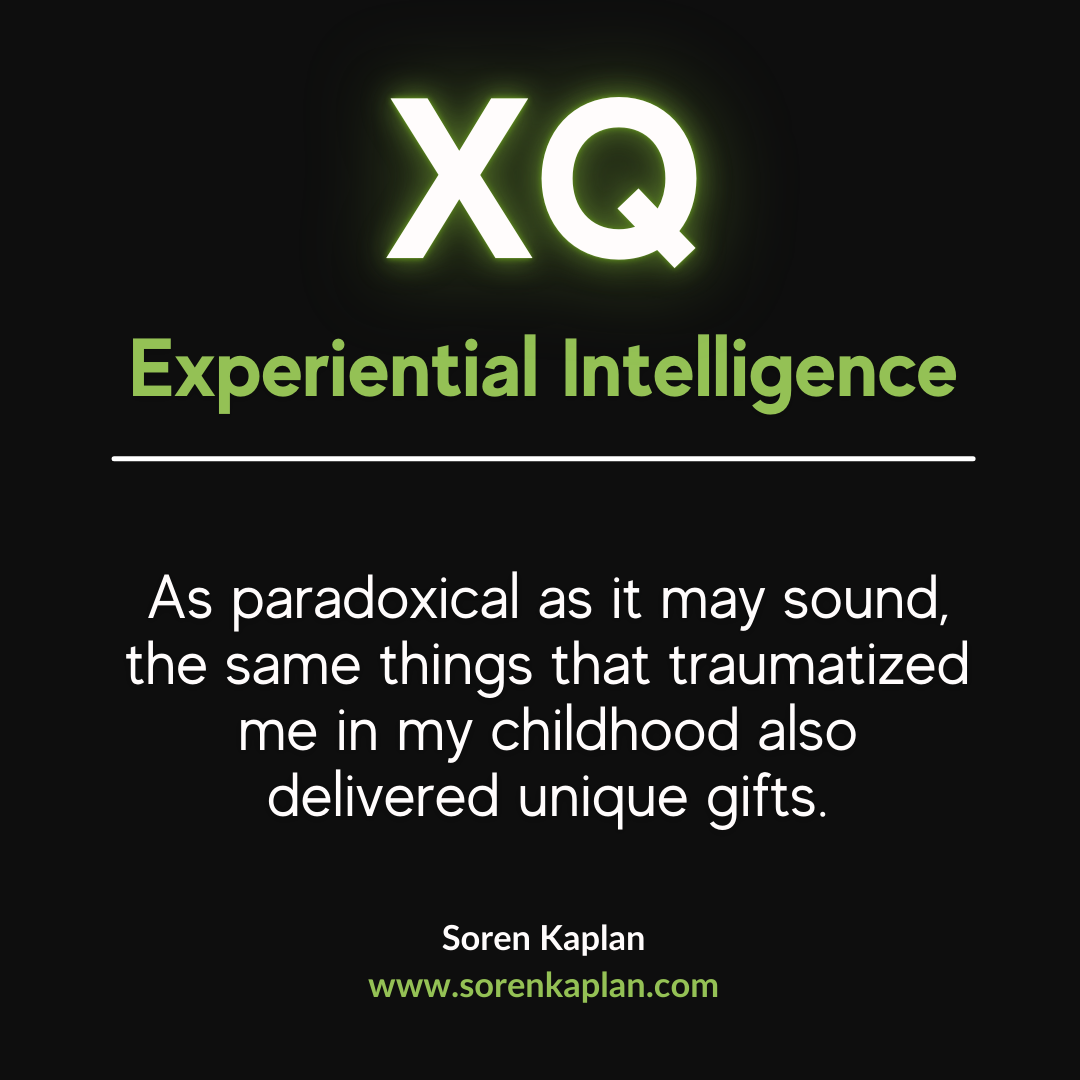
As paradoxical as it may sound, the same things that traumatized me in my childhood also delivered unique gifts.
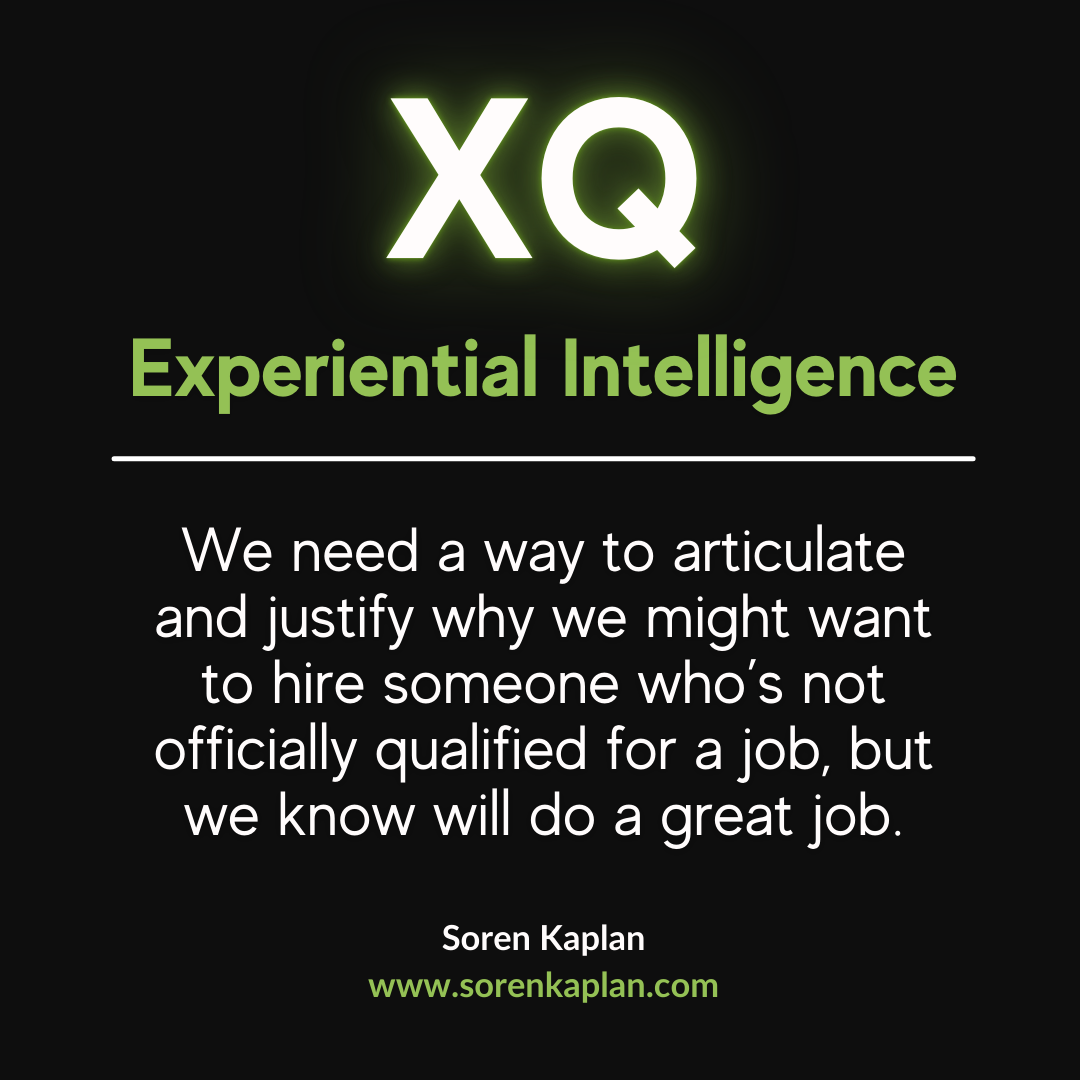
We need a way to articulate and justify why we might want to hire someone who’s not officially qualified for a job, but we know will do a great job.

Success in business and life isn’t about just being intellectually smart (IQ), just having emotional intelligence (EQ), or just using what you’ve gained from your experiences to your advantage (XQ). It’s a combination of all three.
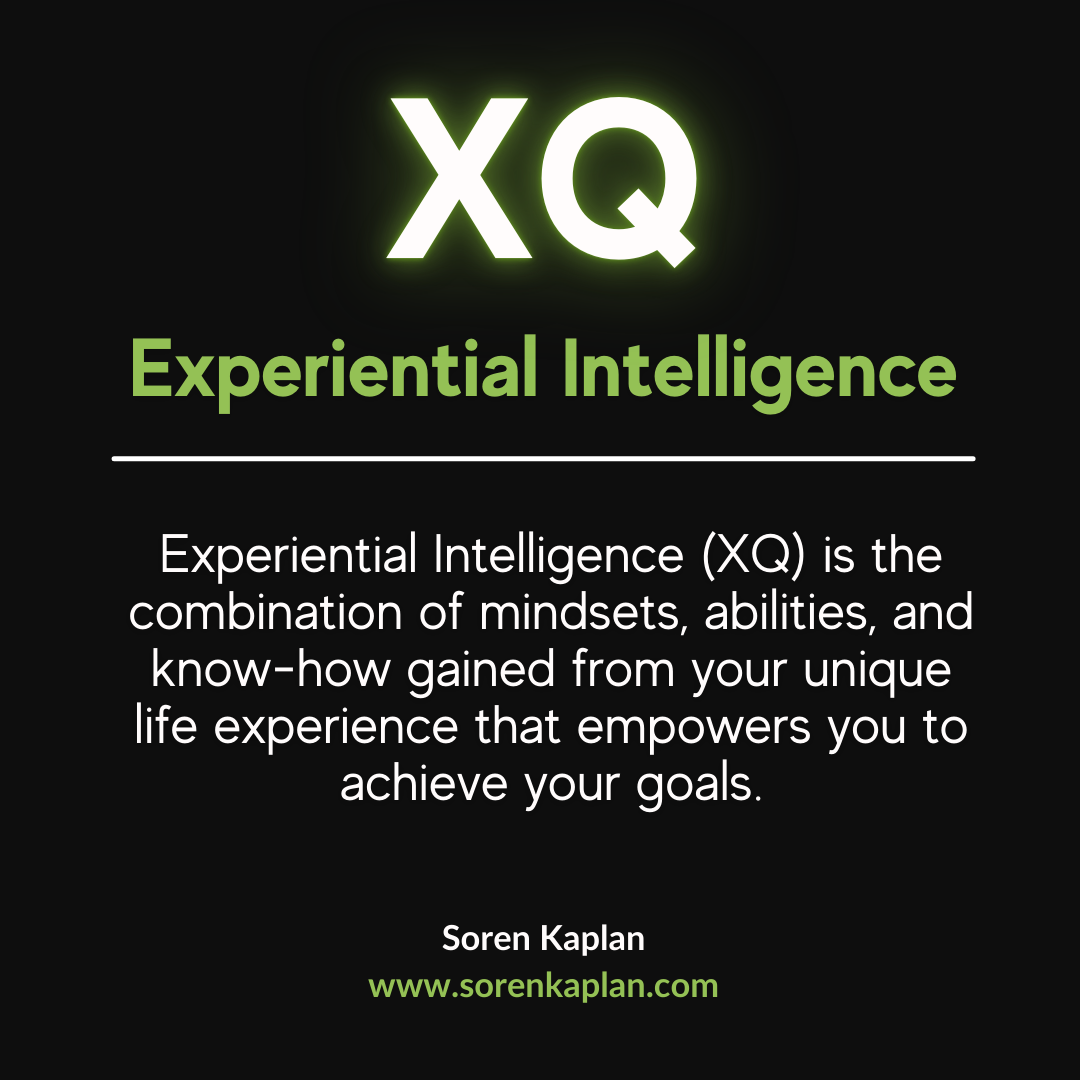
Experiential Intelligence is the combination of mindsets, abilities, and know-how gained from your unique life experience that empowers you to achieve your goals.
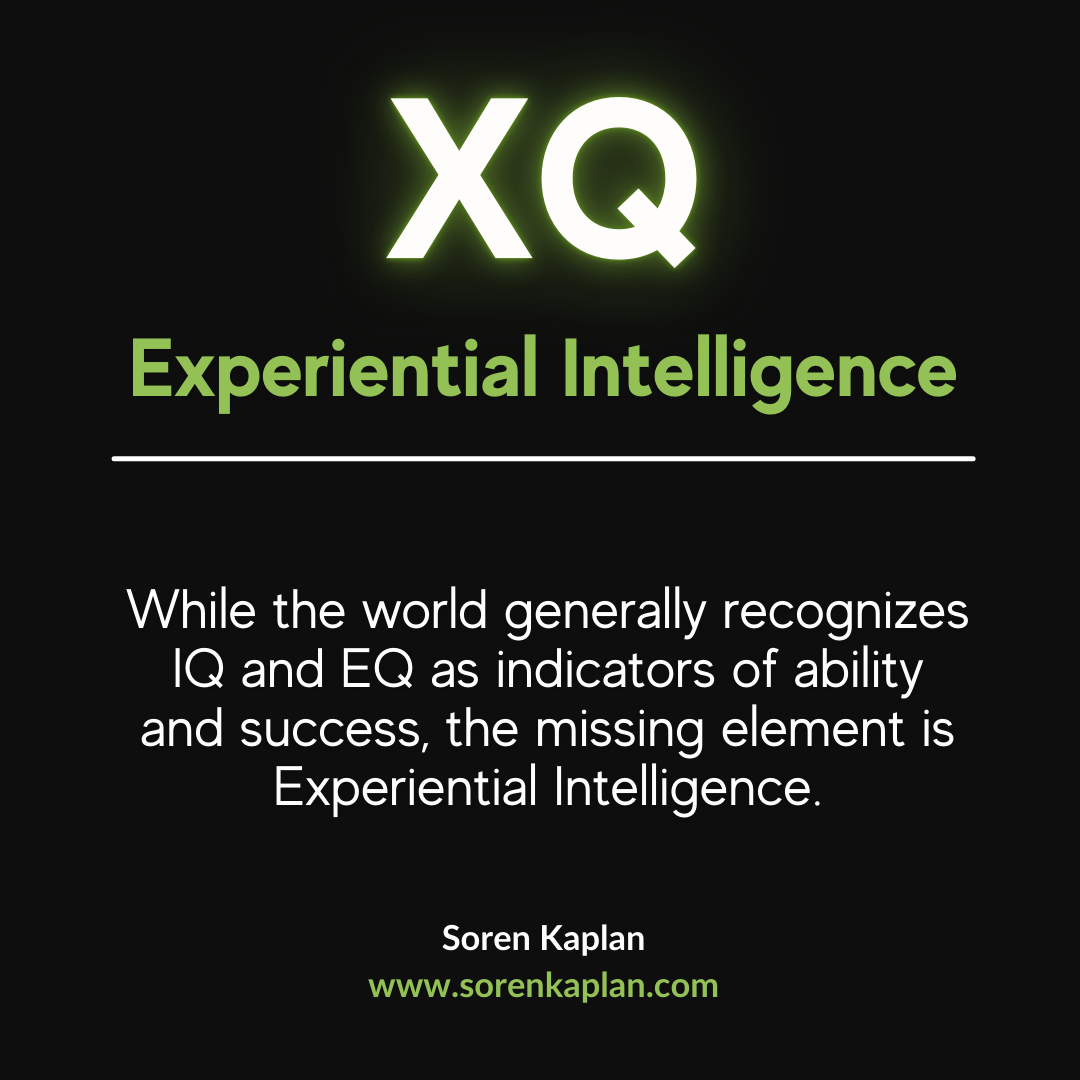
While the world generally recognizes IQ and EQ as indicators of ability and success, the missing element is Experiential Intelligence.

You might have heard the catchphrase, “you’re the sum of your experiences.” This broad notion touches on the power that experience has in shaping us. Yet it doesn’t get at the nuts and bolts of what “sum” really means. That’s where Experiential Intelligence comes in.
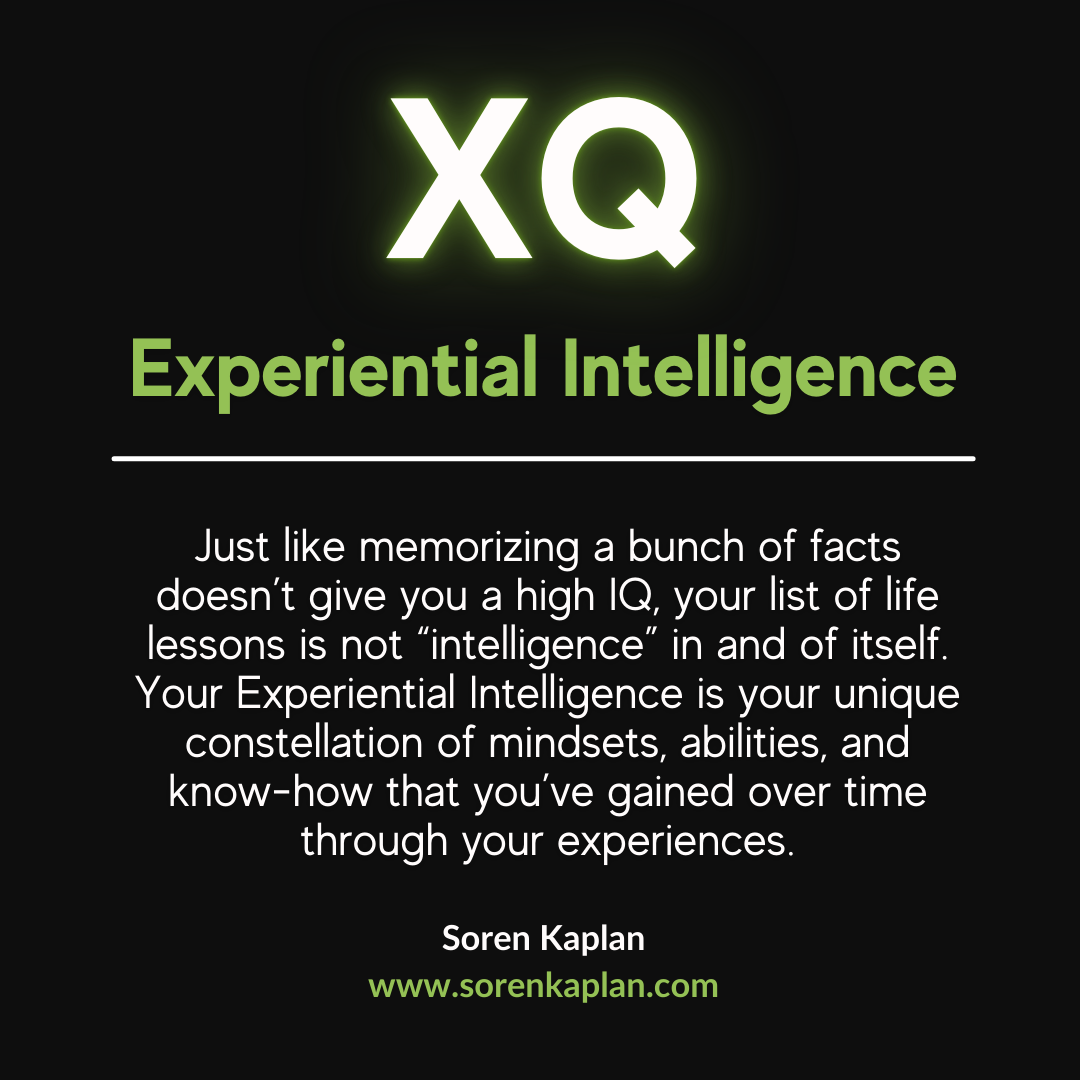
Just like memorizing a bunch of facts doesn’t give you a high IQ, your list of life lessons is not “intelligence” in and of itself. Your Experiential Intelligence is your unique constellation of mindsets, abilities, and know-how that you’ve gained over time through your experiences.
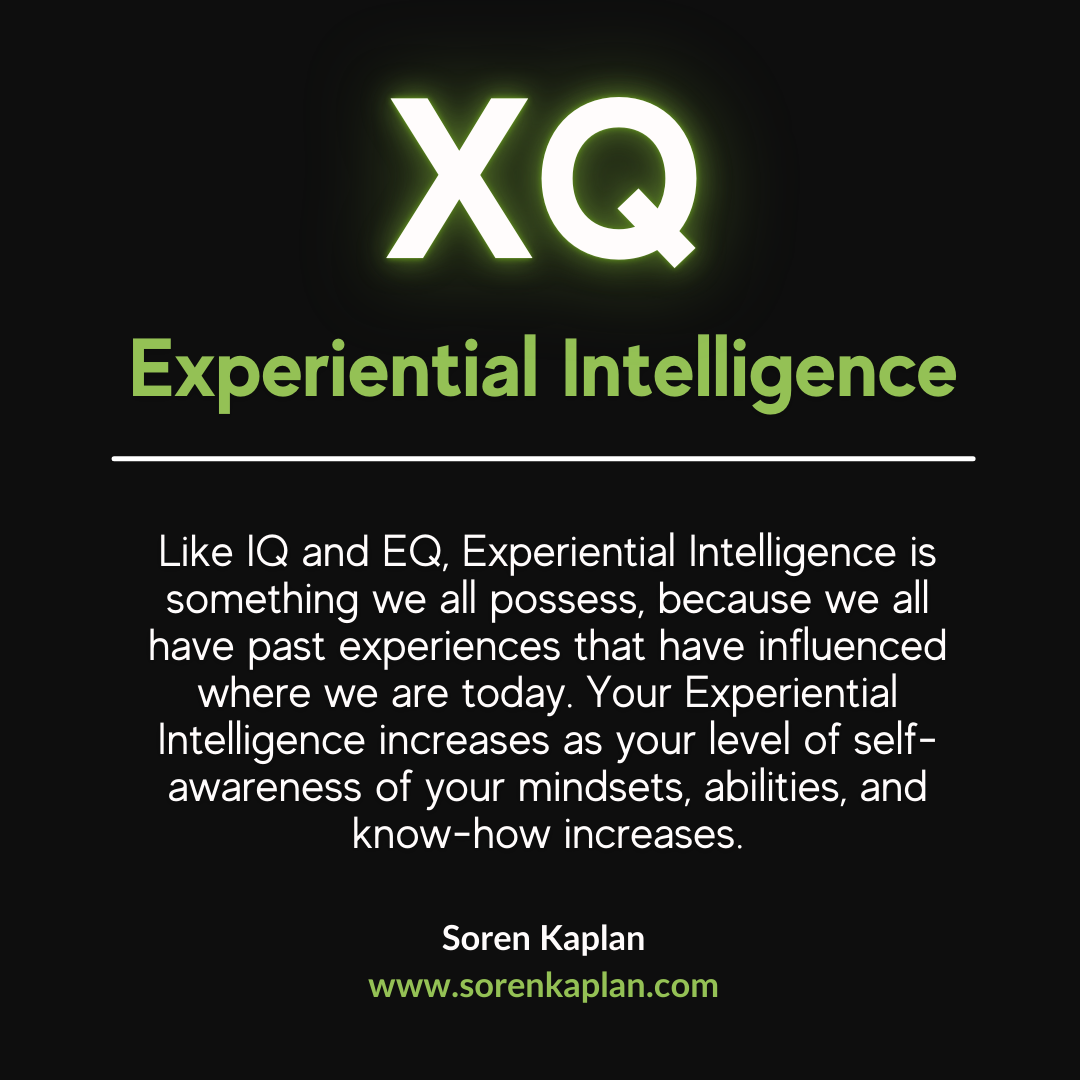
Like IQ and EQ, Experiential Intelligence is something we all possess, because we all have past experiences that have influenced where we are today. Your Experiential Intelligence increases as your level of self-awareness of your mindsets, abilities, and know-how increases.
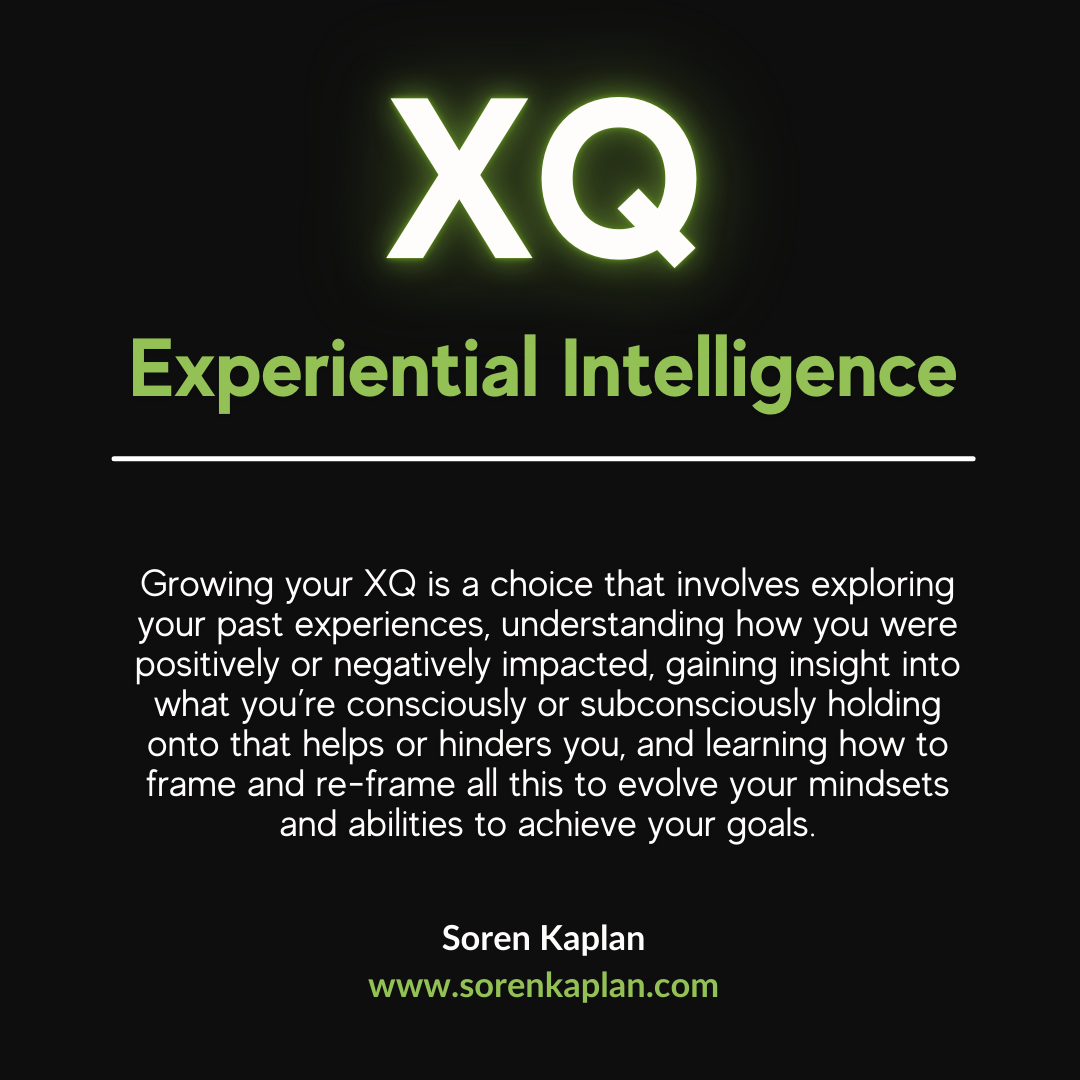
Growing your XQ is about knowing what you know.
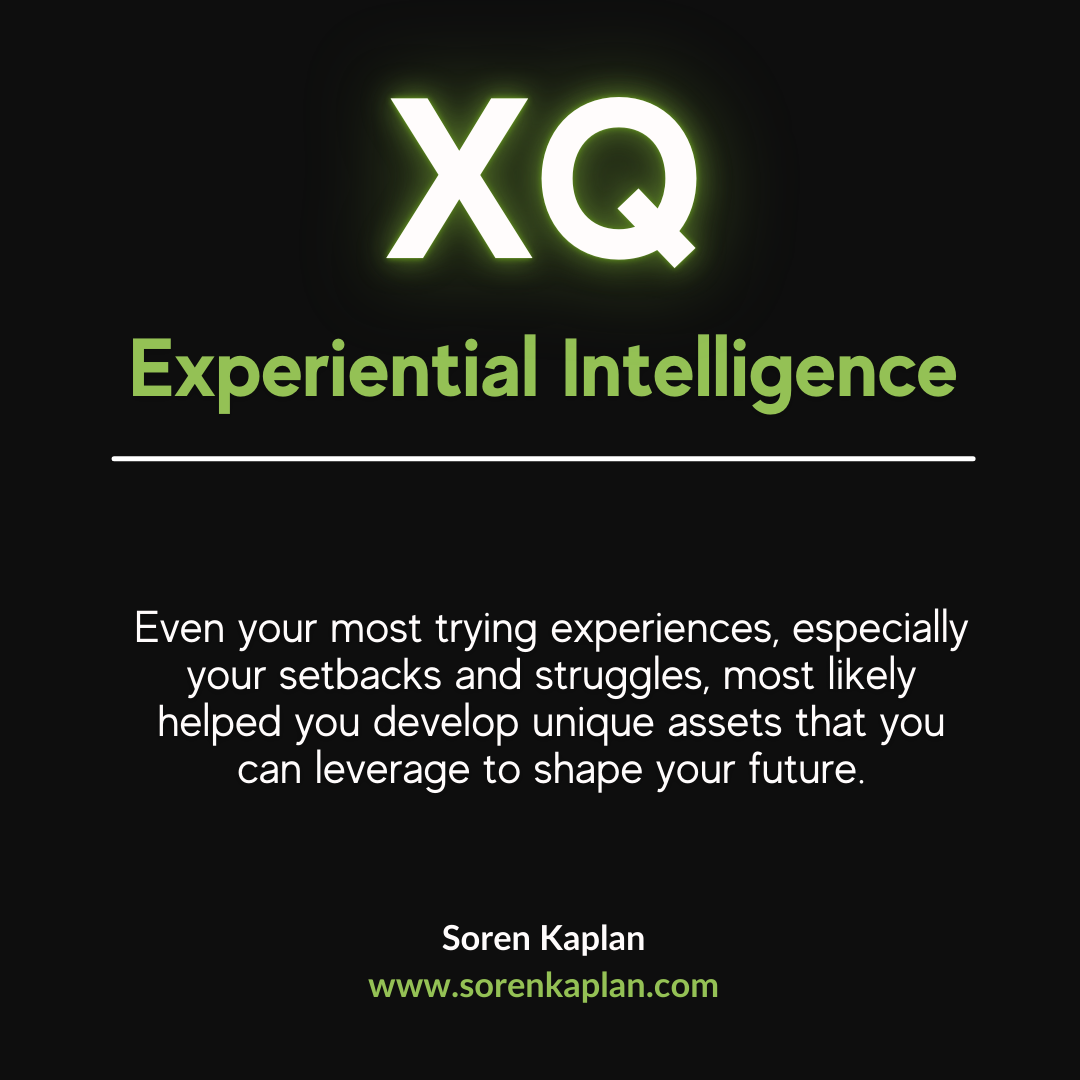
Even your most trying experiences, especially your setbacks and struggles, most likely helped you develop unique assets that you can leverage to shape your future.
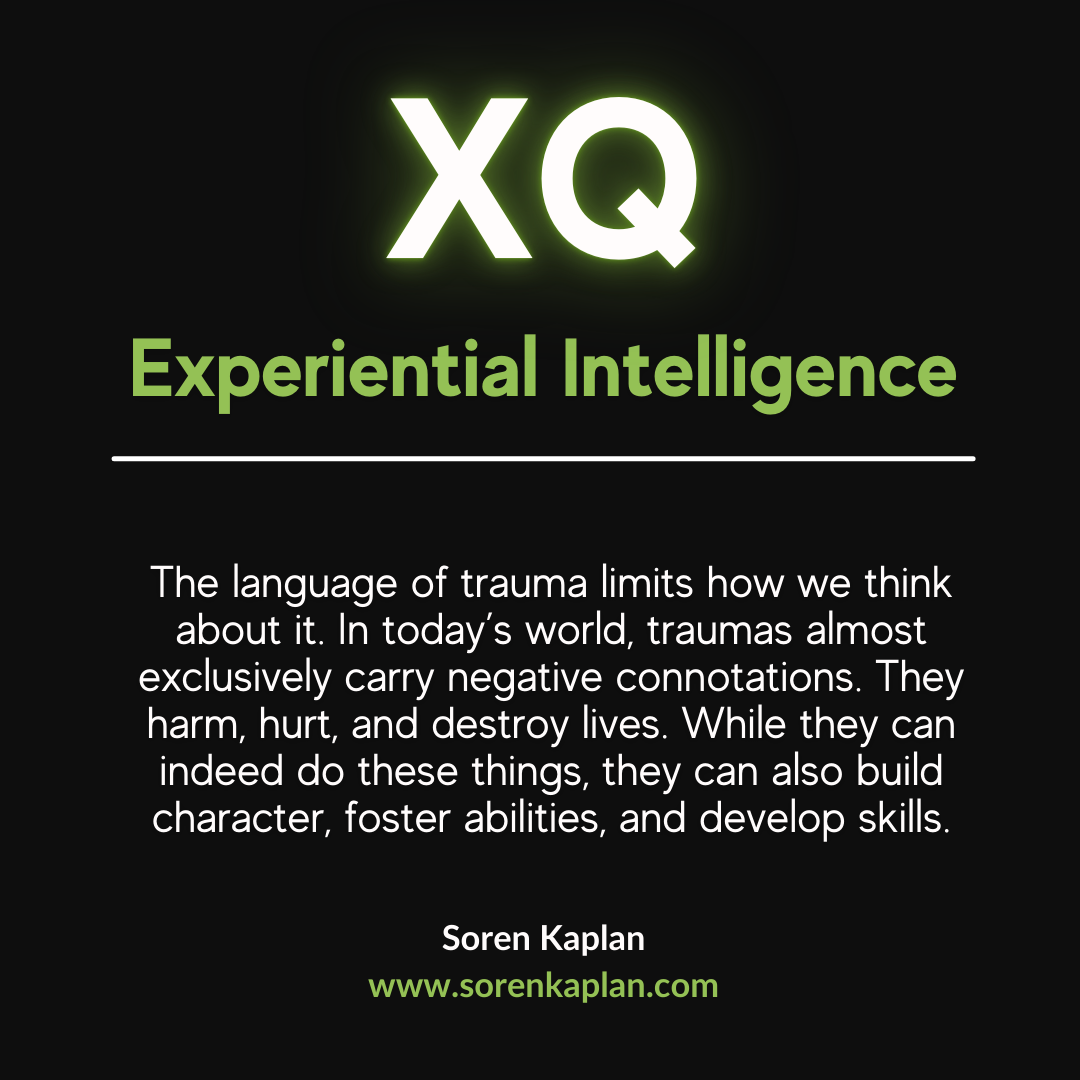
The language of trauma limits how we think about it. In today’s world, traumas almost exclusively carry negative connotations. They harm, hurt, and destroy lives. While they can indeed do these things, they can also build character, foster abilities, and develop skills.
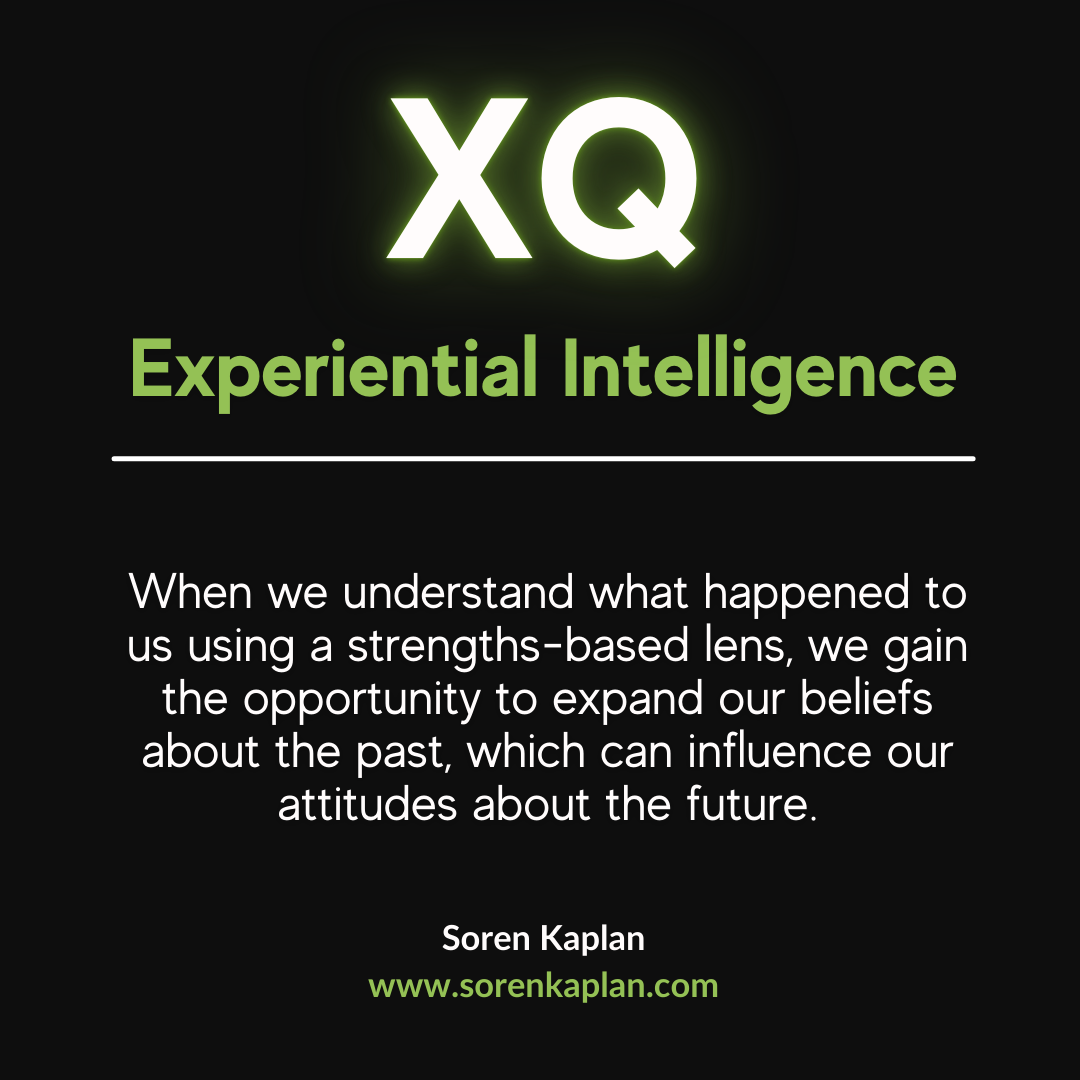
When we understand what happened to us using a strengths-based lens, we gain the opportunity to expand our beliefs about the past, which can influence our attitudes about the future.
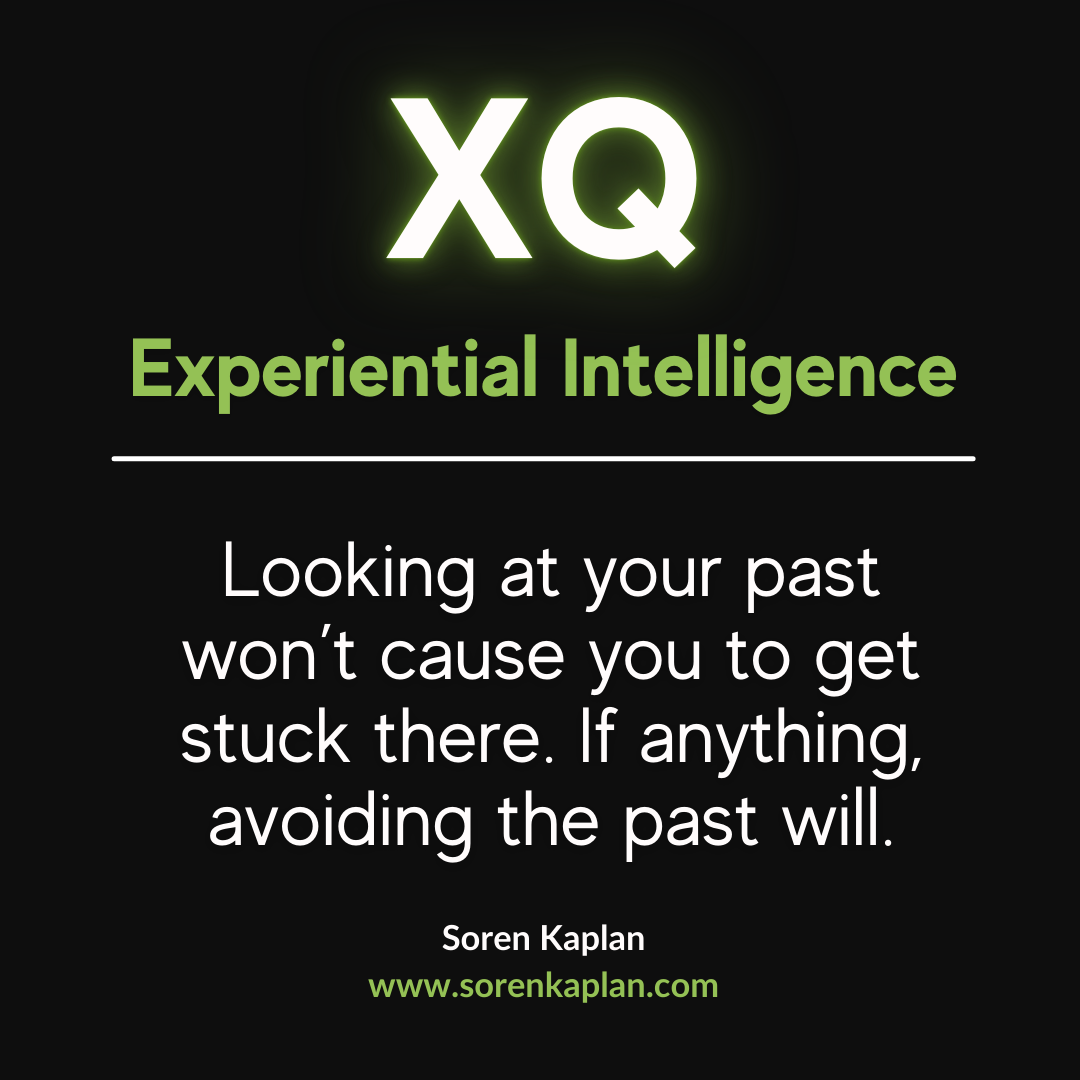
Looking at your past won’t cause you to get stuck there. If anything, avoiding the past will.
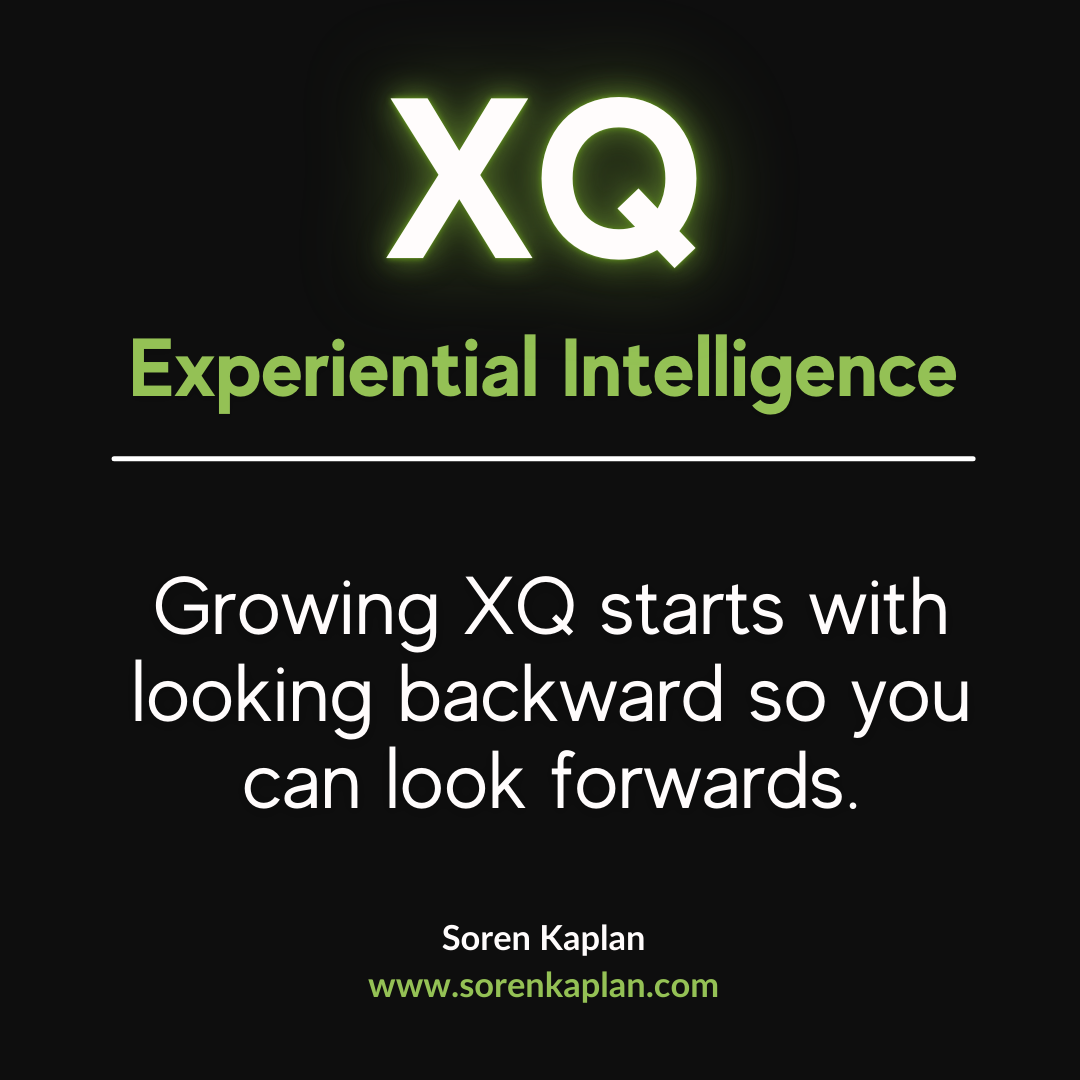
Growing XQ starts with looking backward so you can look forward.
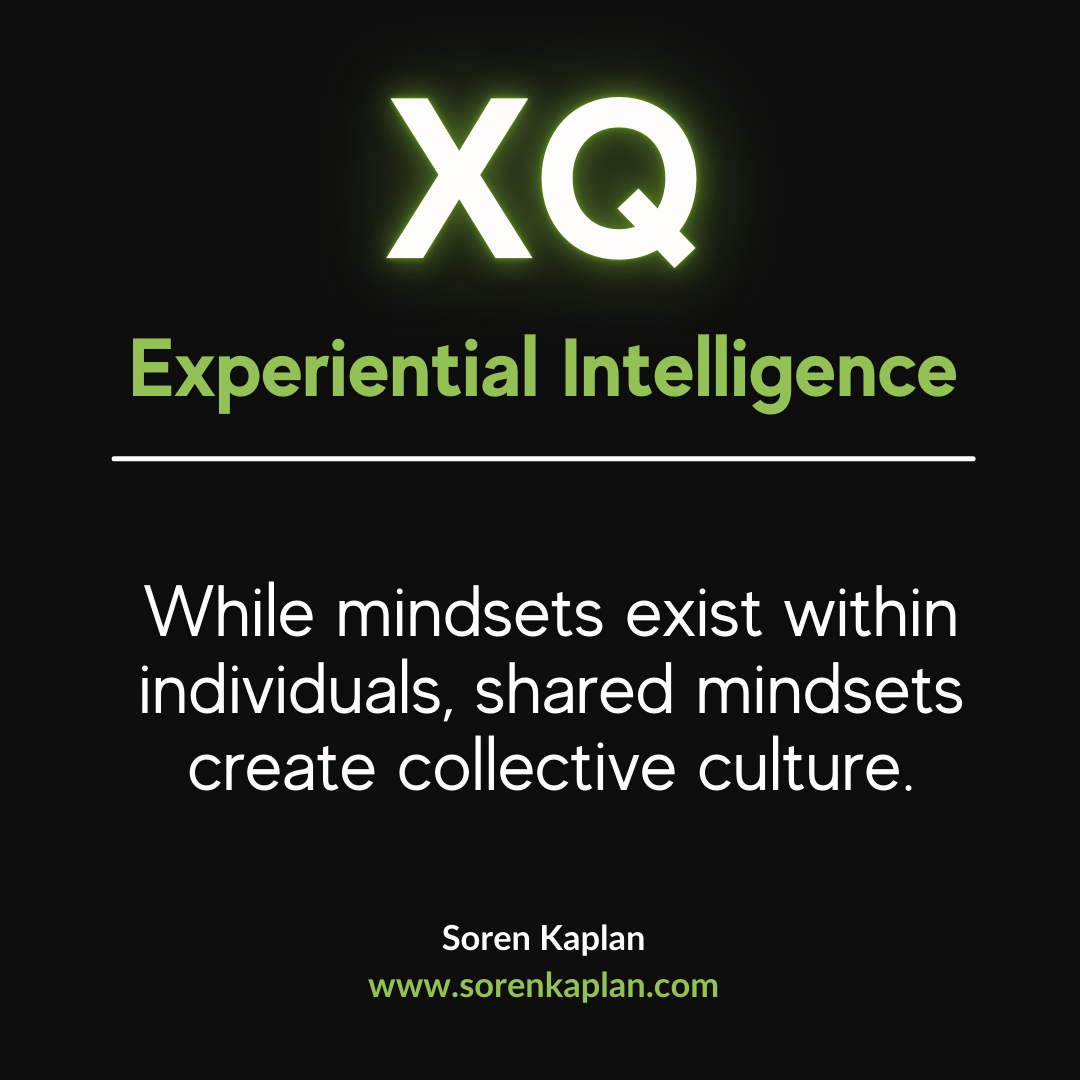
While mindsets exist within individuals, shared mindsets create collective culture.

When you create experiences, you create culture.
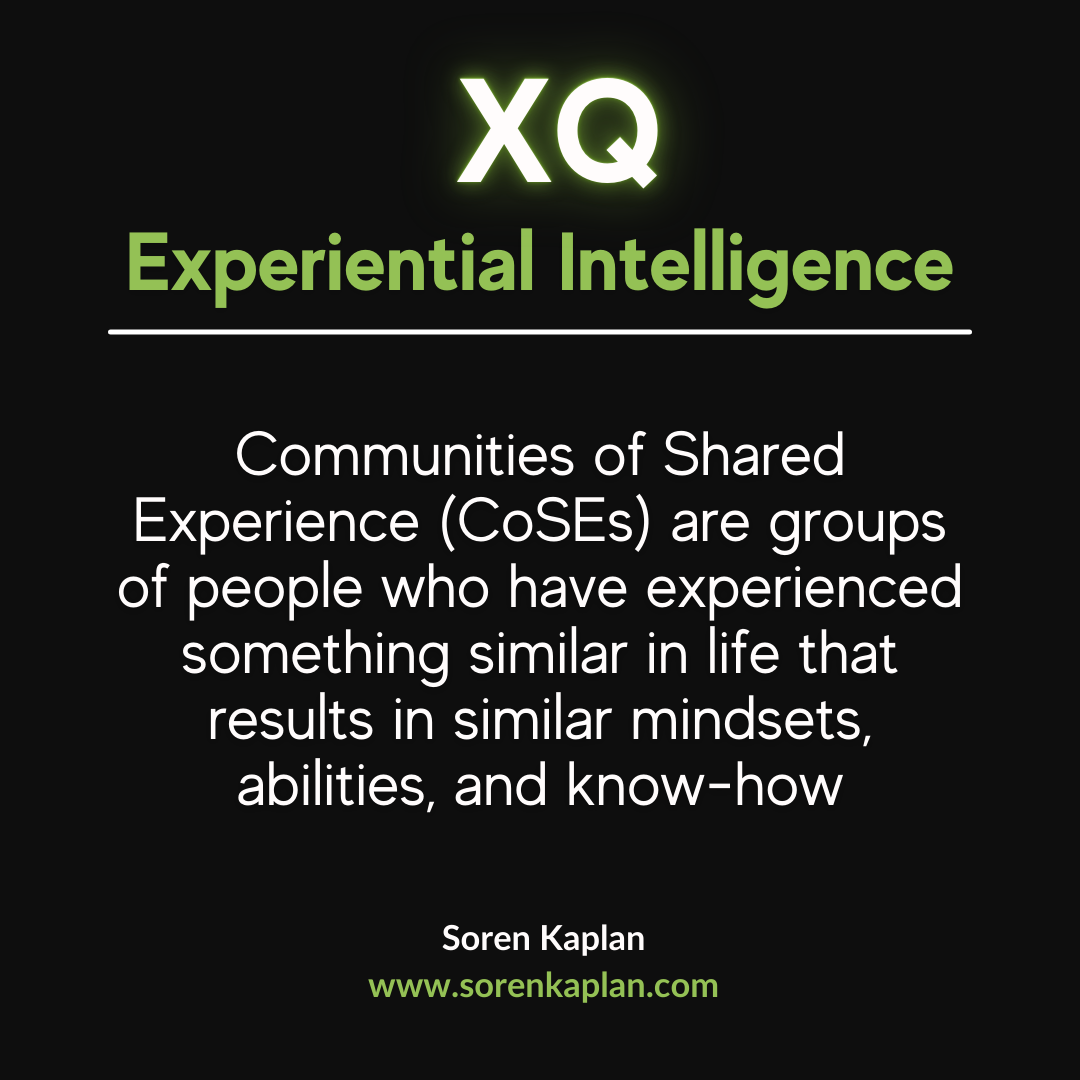
Communities of Shared Experience (CoSEs) are groups of people who have experienced something similar in life that results in similar mindsets, abilities, and know-how.
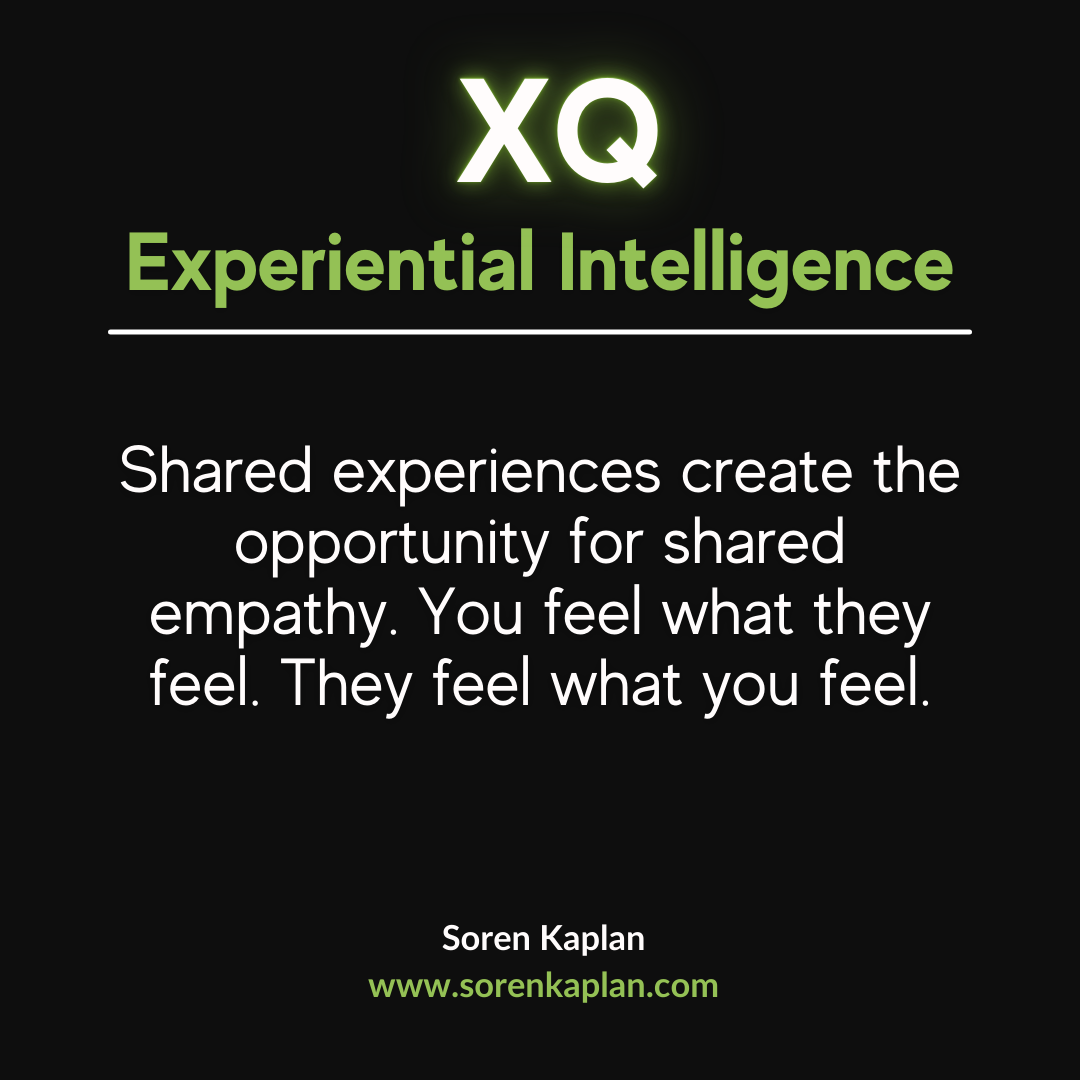
Shared experiences create the opportunity for shared empathy. You feel what they feel. They feel what you feel.
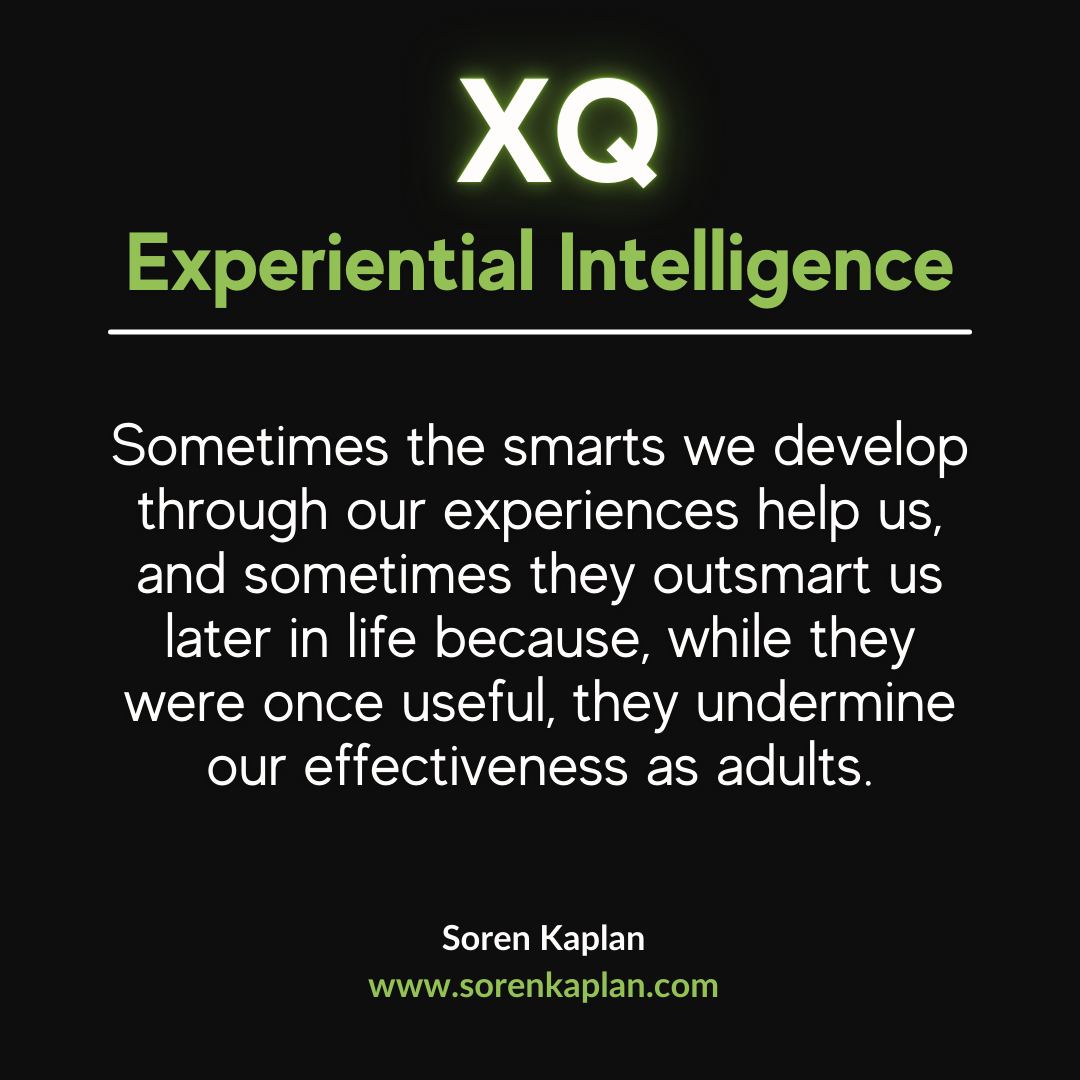
Sometimes the smarts we develop through our experiences help us, and sometimes they outsmart us later in life because, while they were once useful, they undermine our effectiveness as adults.
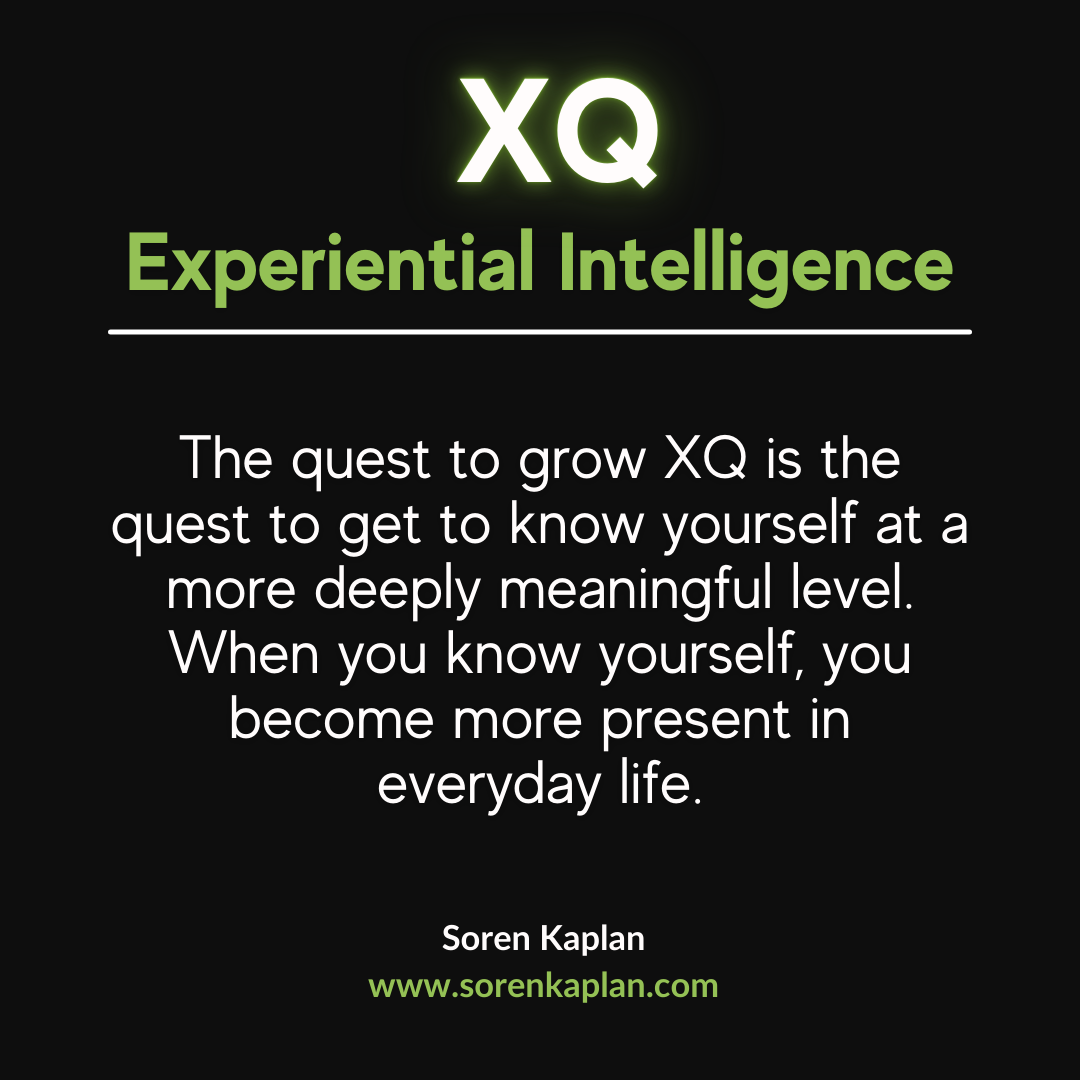
The quest to grow XQ is the quest to get to know yourself at a more deeply meaningful level. When you know yourself, you become more present in everyday life.
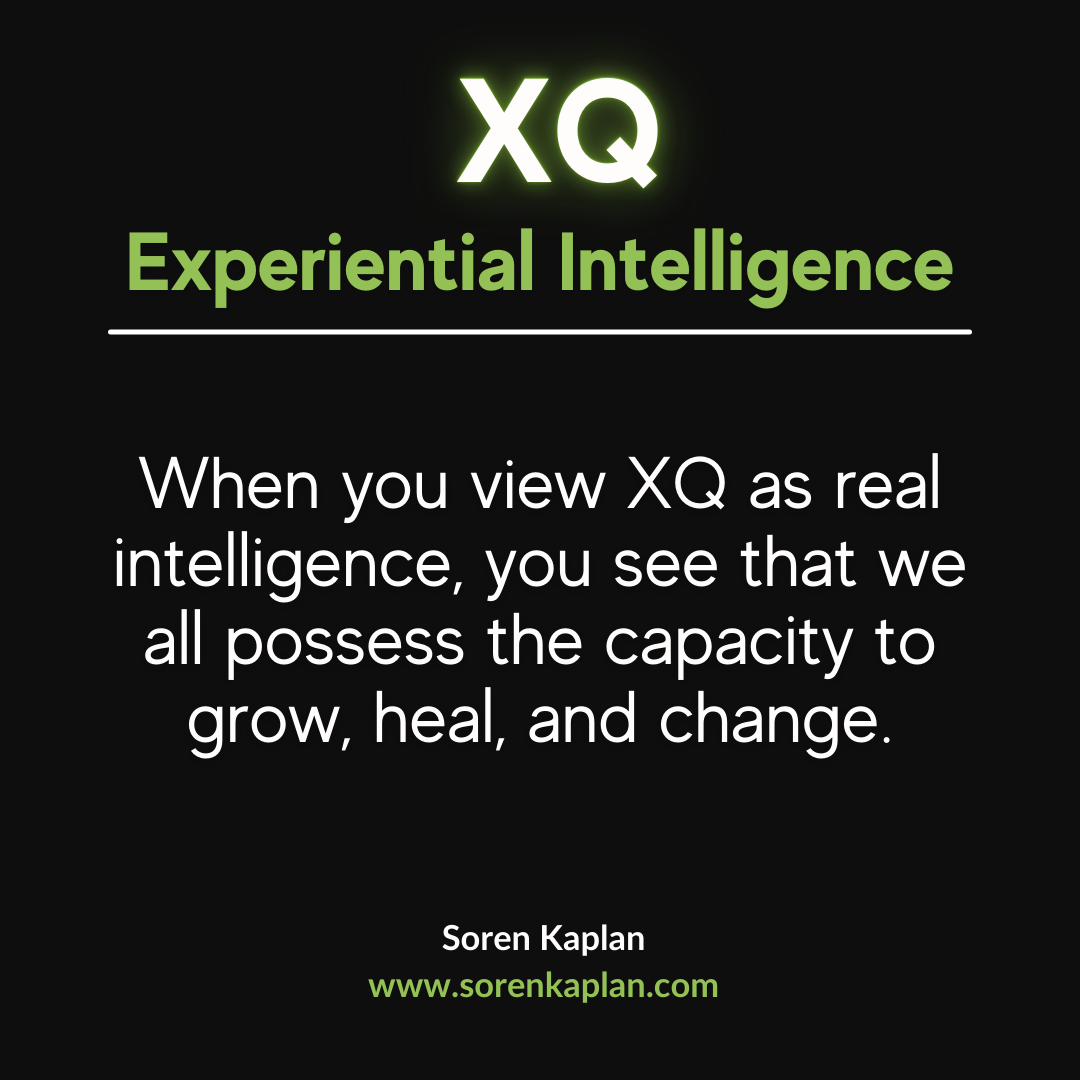
When you view XQ as real intelligence, you see that we all possess the capacity to grow, heal, and change.
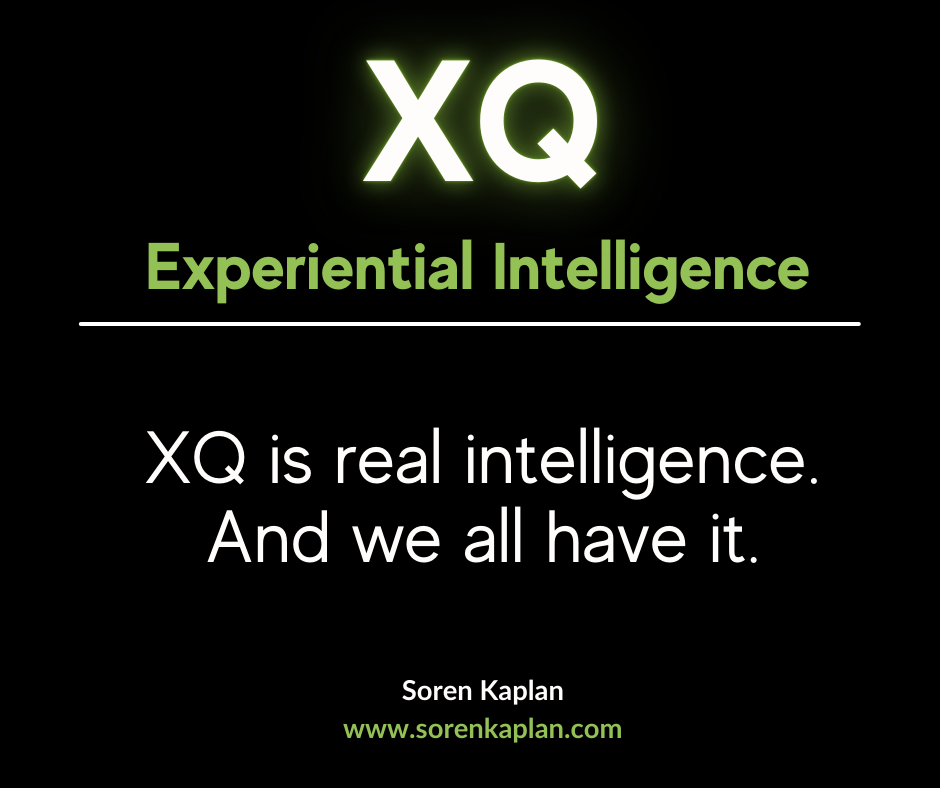
XQ is real intelligence. And we all have it.
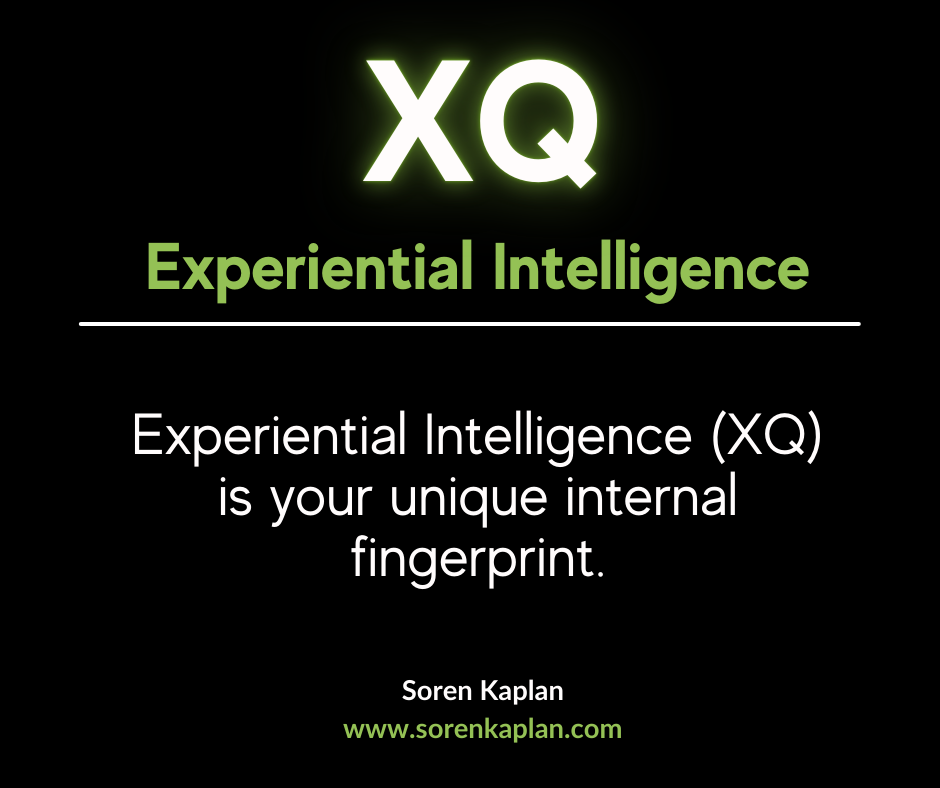
Experiential Intelligence (XQ) is your unique internal fingerprint.

If we only focus on the formal processes and hard skills we see on resumes – the things visible above the waterline – we miss opportunities that tap into the deeper mindsets and abilities that exist below.
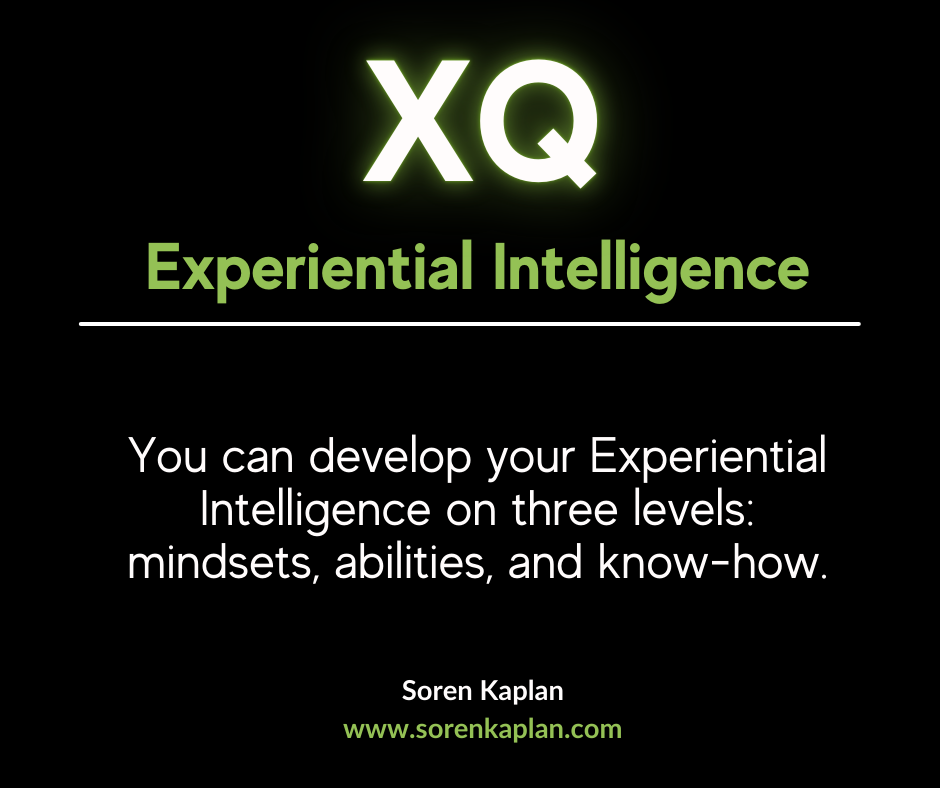
You can develop your Experiential Intelligence on three levels: mindsets, abilities, and know-how.
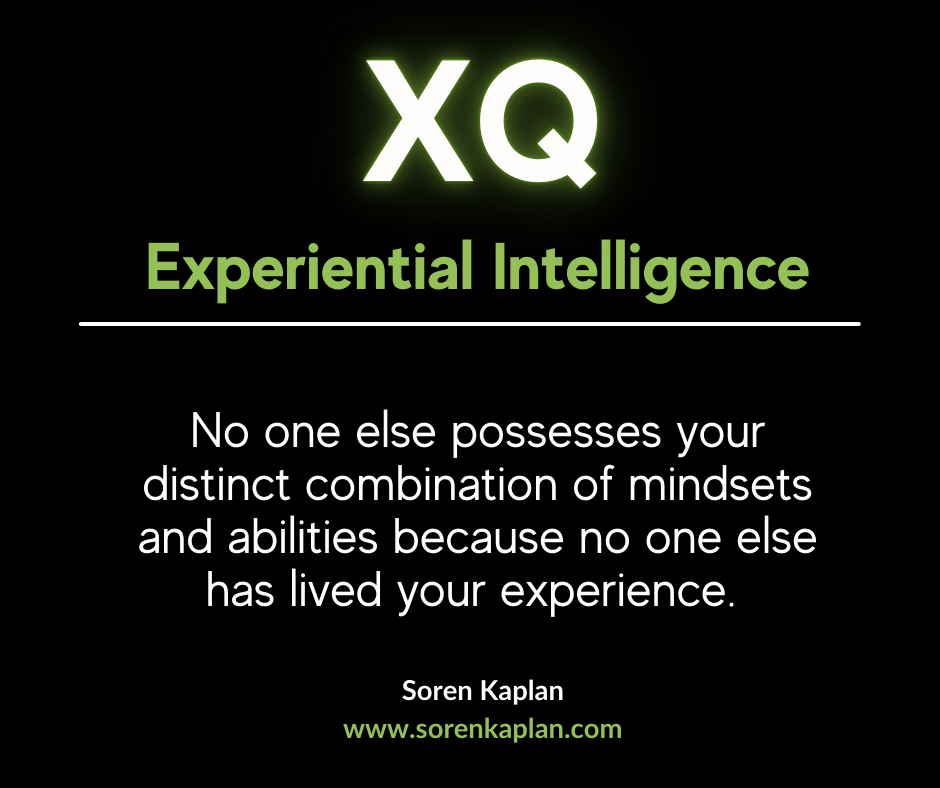
No one else possesses your distinct combination of mindsets and abilities because no one else has lived your experience.
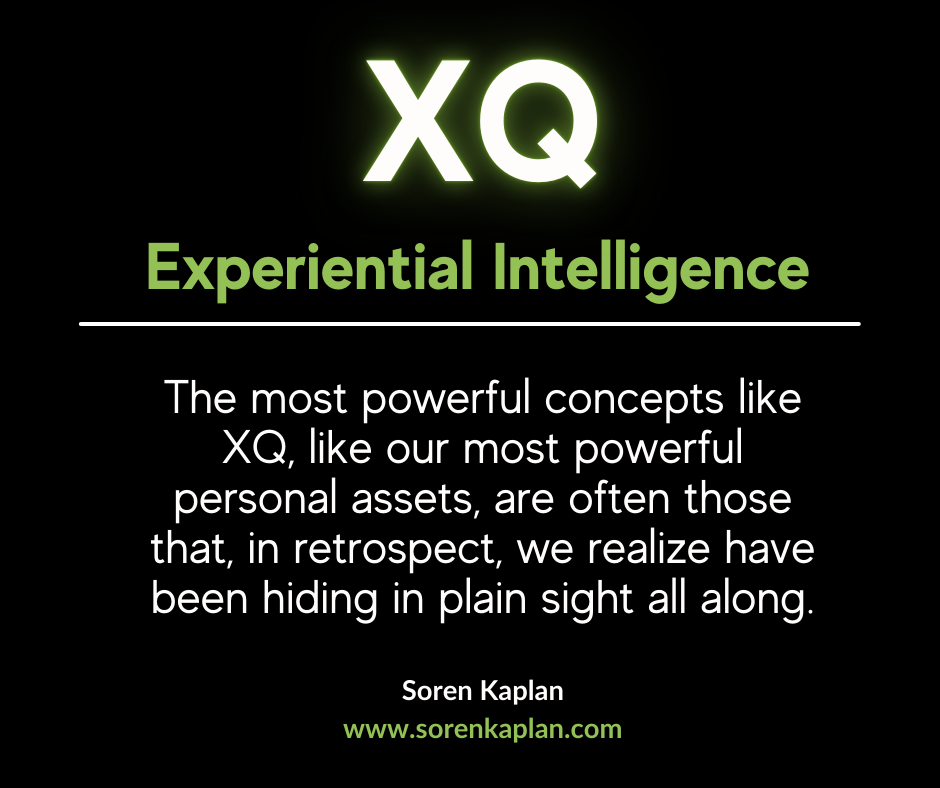
The most powerful concepts like XQ, like our most powerful personal assets, are often those that, in retrospect, we realize have been hiding in plain sight all along.
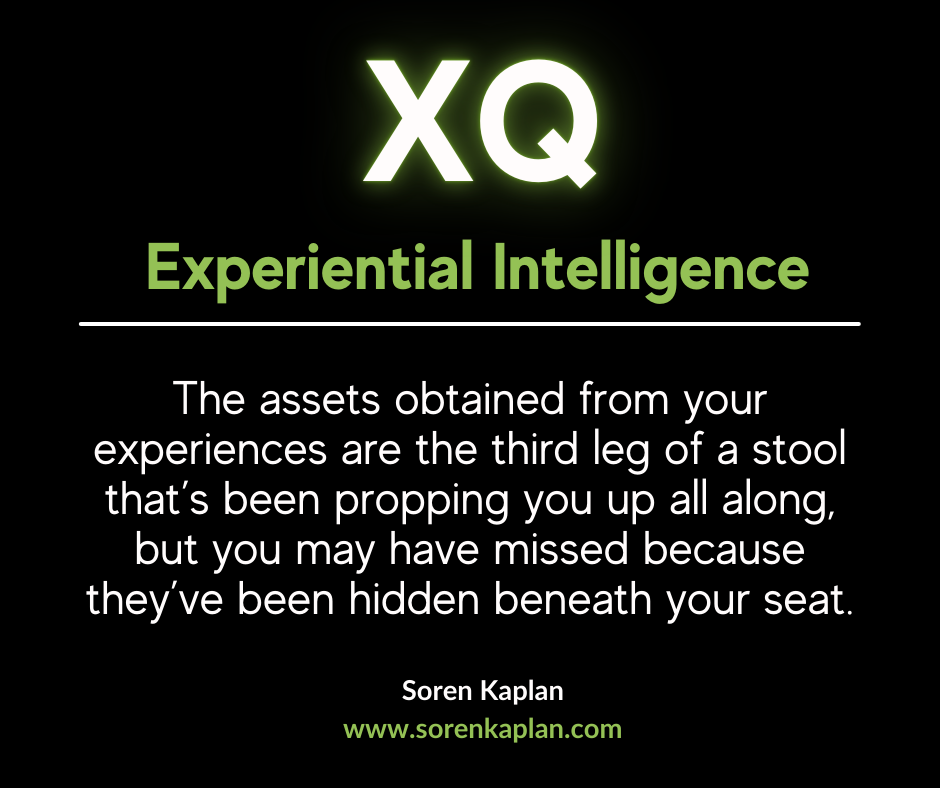
The assets obtained from your experiences are the third leg of a stool that’s been propping you up all along, but you may have missed because they’ve been hidden beneath your seat.
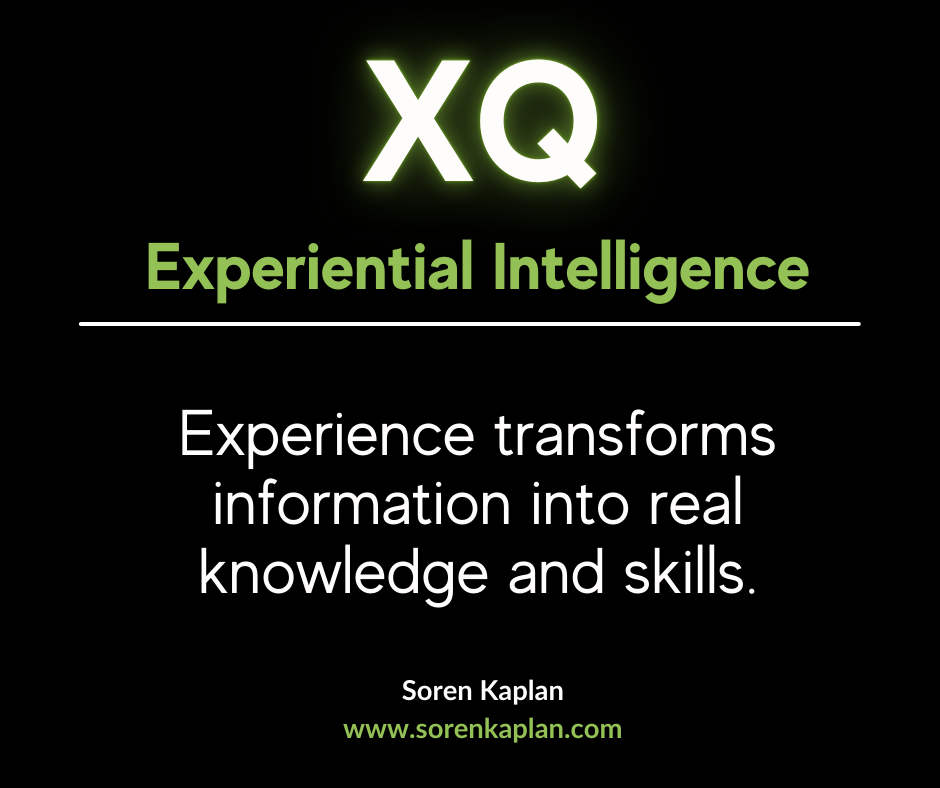
Experience transforms information into real knowledge and skills.
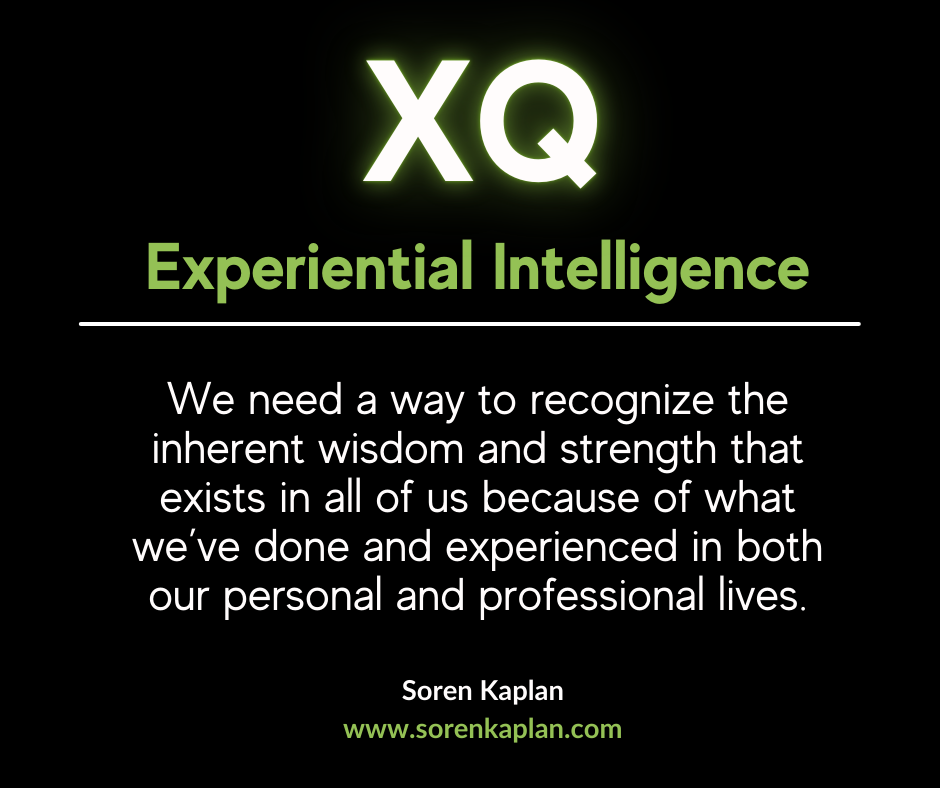
We need a way to recognize the inherent wisdom and strength that exists in all of us because of what we’ve done and experienced in both our personal and professional lives.
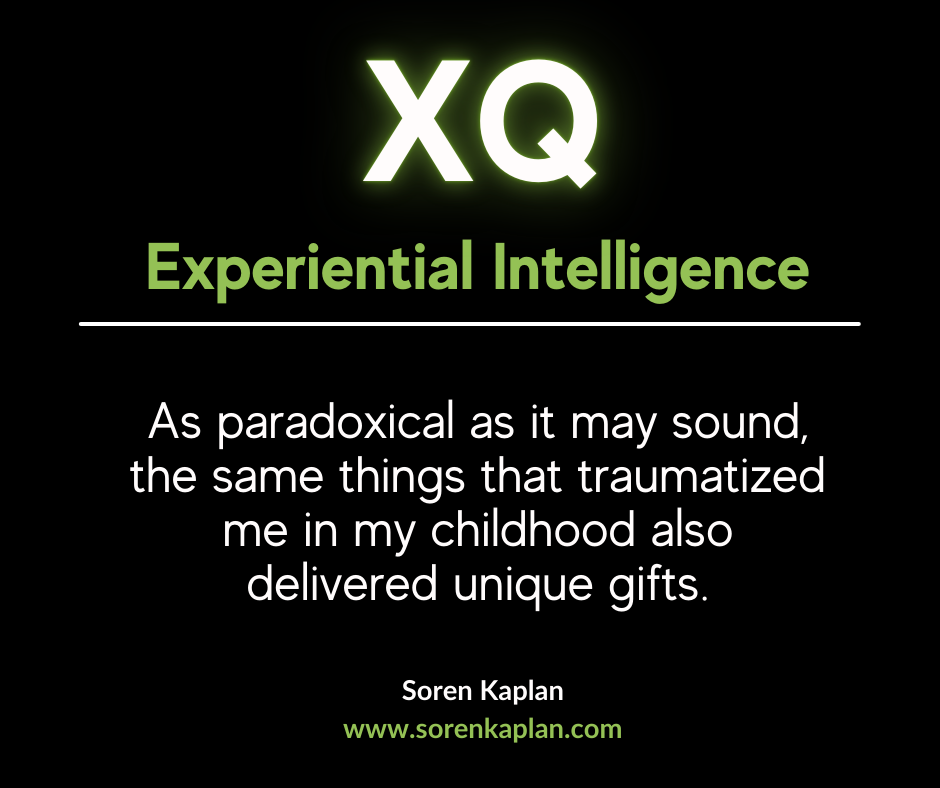
As paradoxical as it may sound, the same things that traumatized me in my childhood also delivered unique gifts.
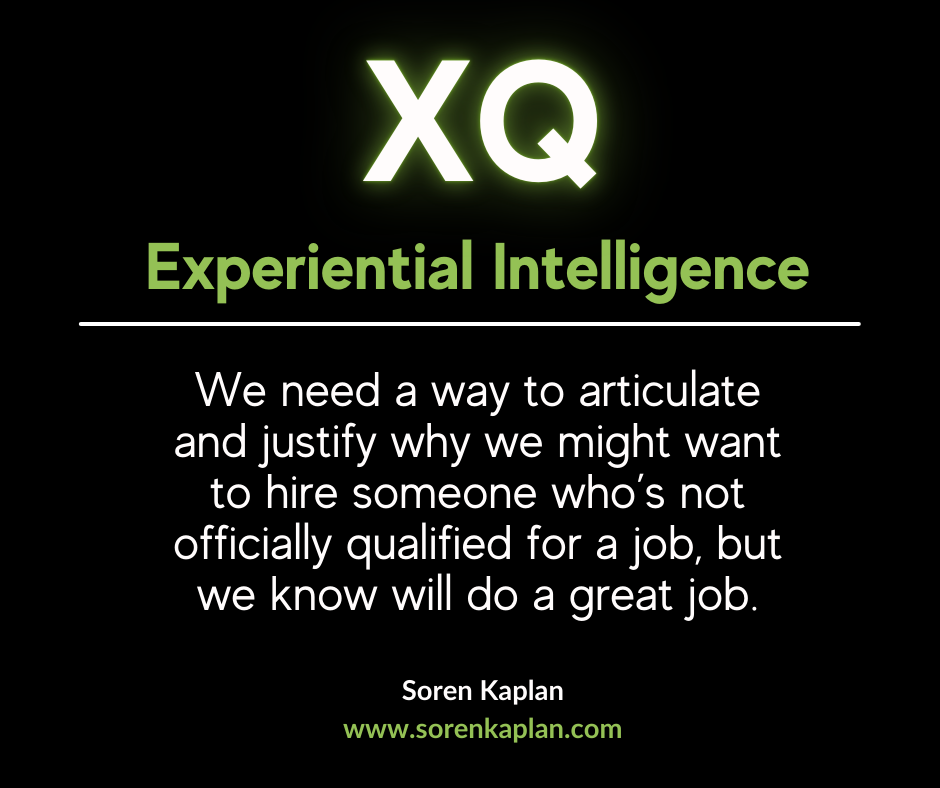
We need a way to articulate and justify why we might want to hire someone who’s not officially qualified for a job, but we know will do a great job.
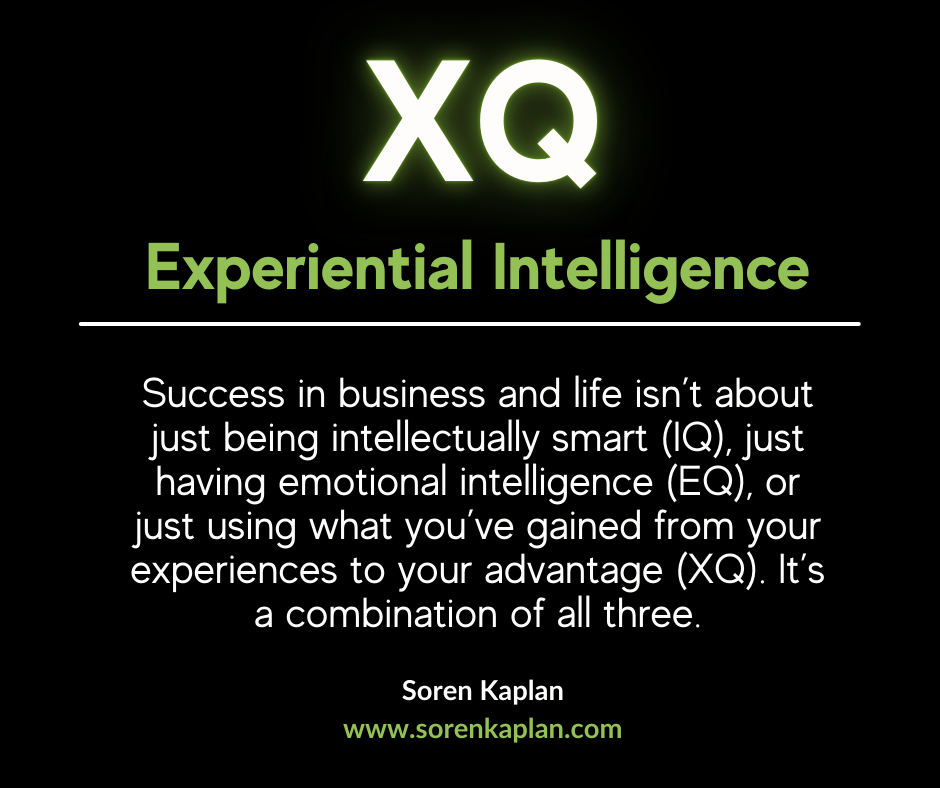
Success in business and life isn’t about just being intellectually smart (IQ), just having emotional intelligence (EQ), or just using what you’ve gained from your experiences to your advantage (XQ). It’s a combination of all three.
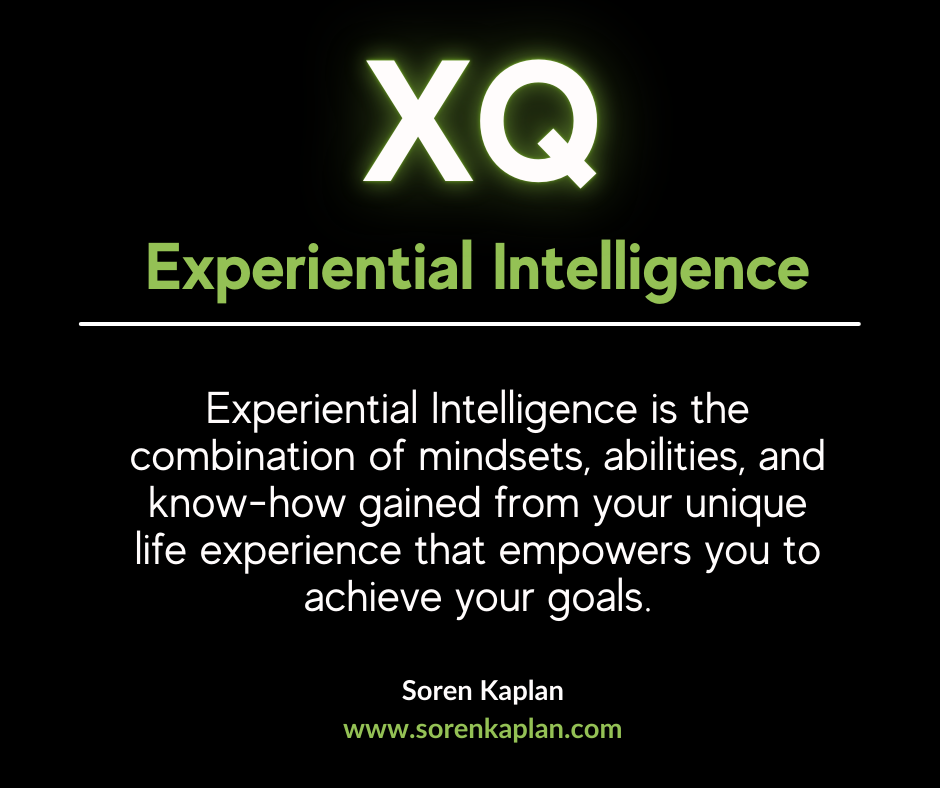
Experiential Intelligence is the combination of mindsets, abilities, and know-how gained from your unique life experience that empowers you to achieve your goals.
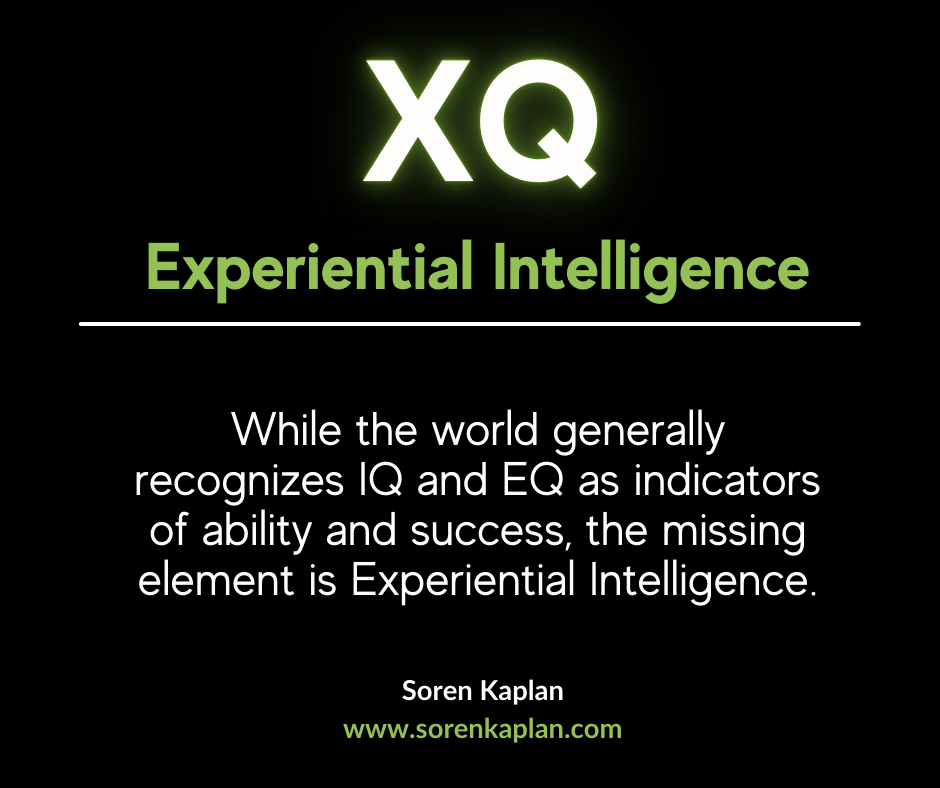
While the world generally recognizes IQ and EQ as indicators of ability and success, the missing element is Experiential Intelligence.
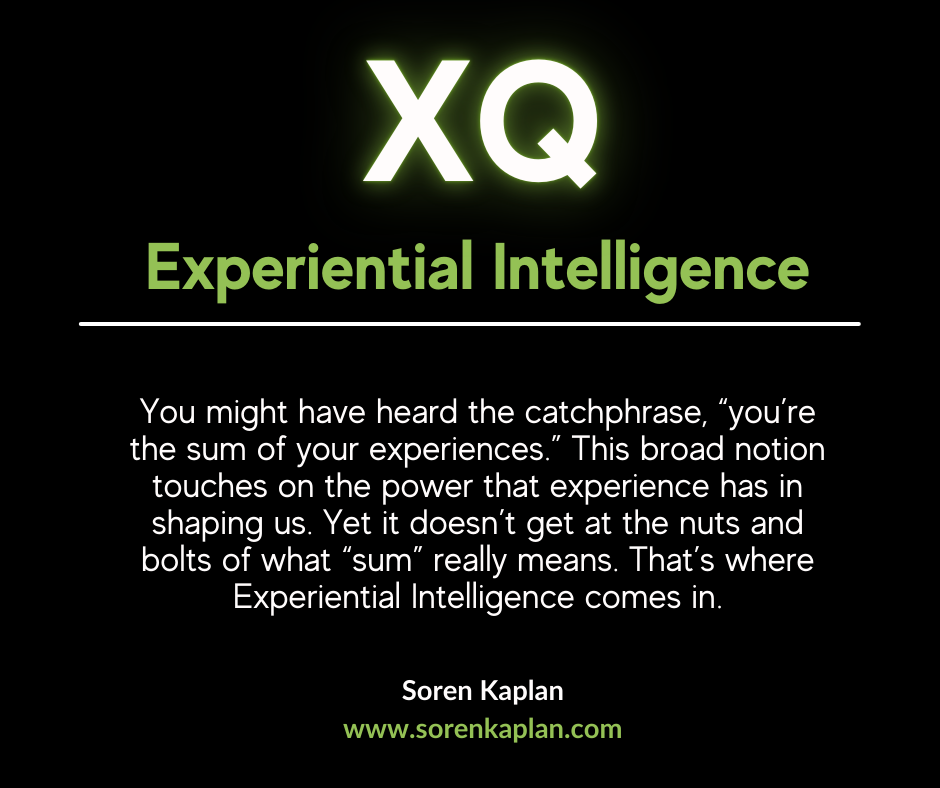
You might have heard the catchphrase, “you’re the sum of your experiences.” This broad notion touches on the power that experience has in shaping us. Yet it doesn’t get at the nuts and bolts of what “sum” really means. That’s where Experiential Intelligence comes in.
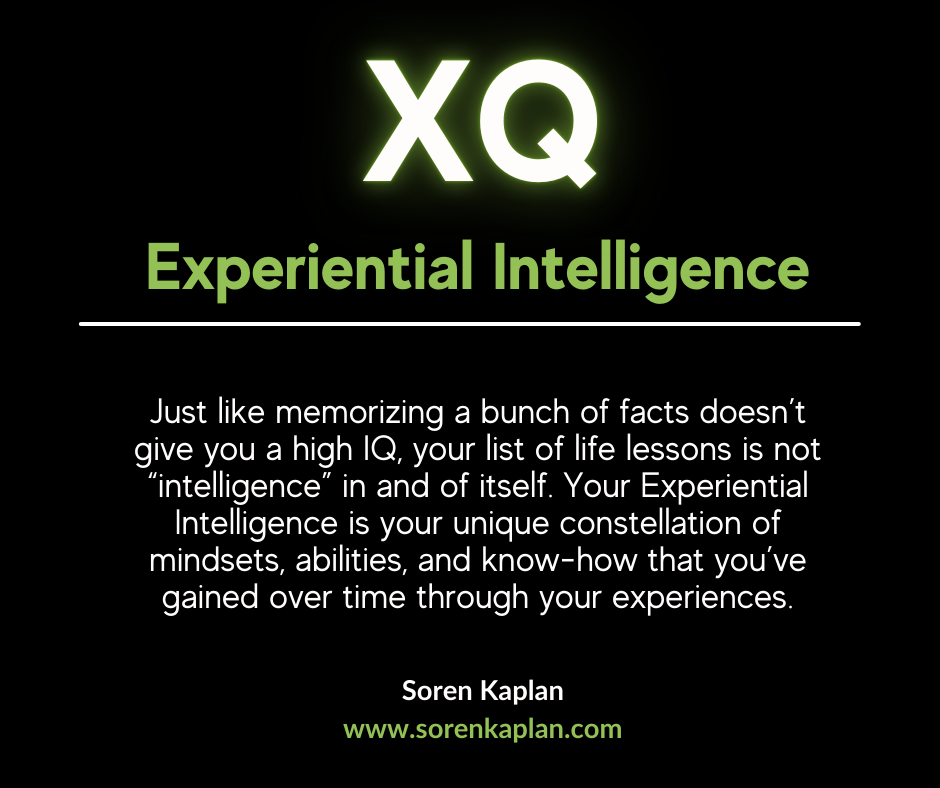
Just like memorizing a bunch of facts doesn’t give you a high IQ, your list of life lessons is not “intelligence” in and of itself. Your Experiential Intelligence is your unique constellation of mindsets, abilities, and know-how that you’ve gained over time through your experiences.
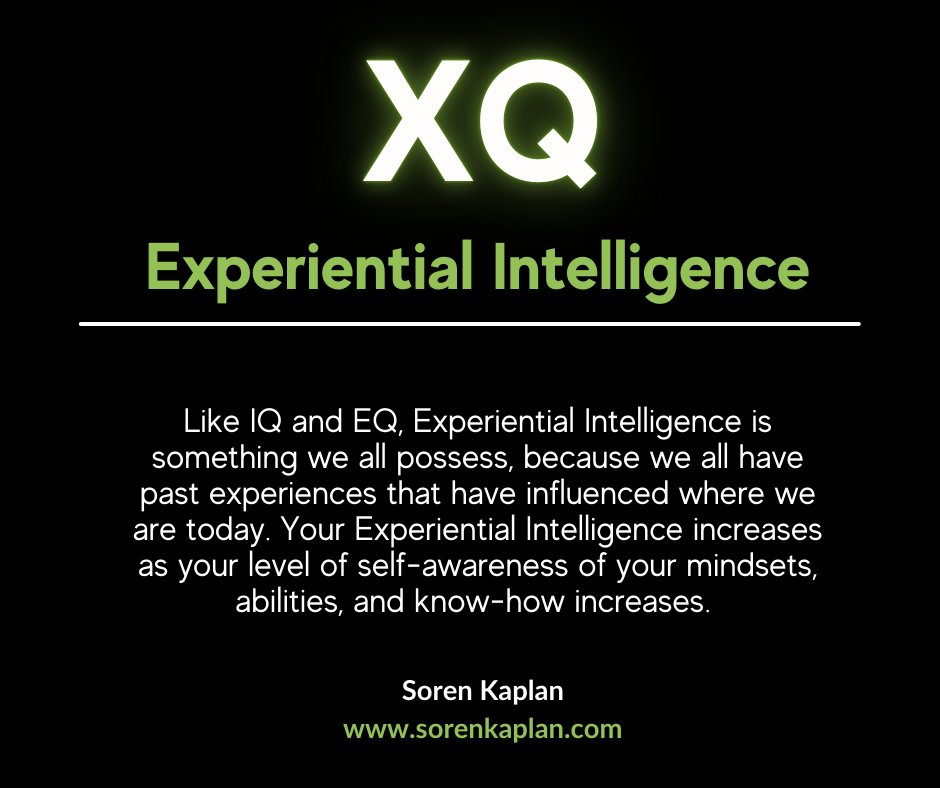
Like IQ and EQ, Experiential Intelligence is something we all possess, because we all have past experiences that have influenced where we are today. Your Experiential Intelligence increases as your level of self-awareness of your mindsets, abilities, and know-how increases.
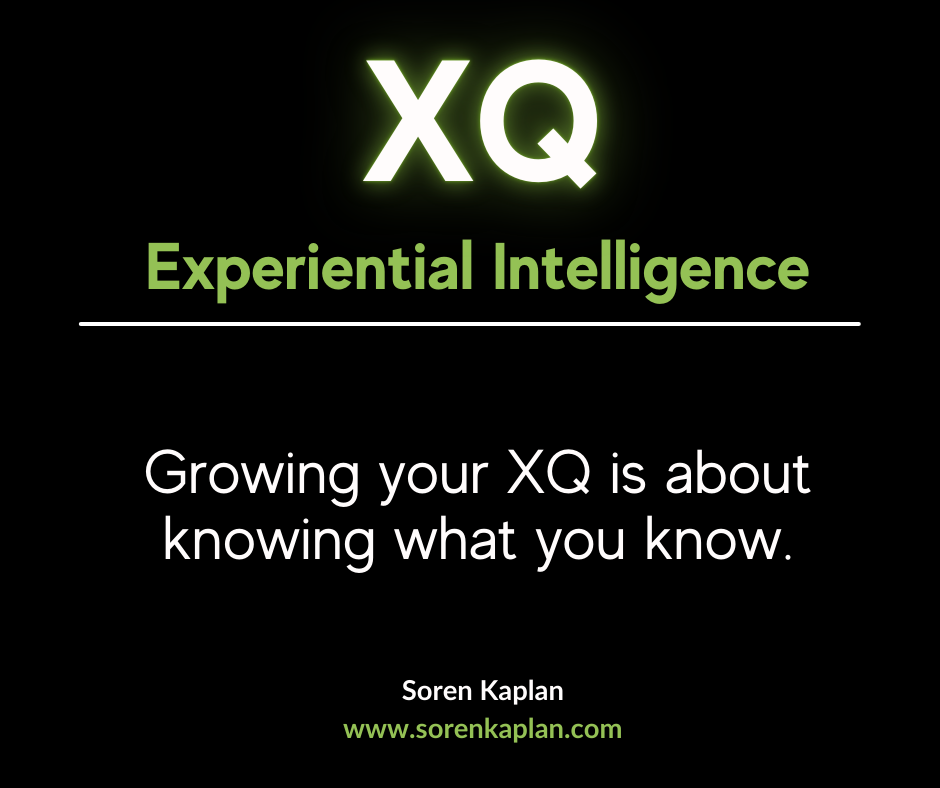
Growing your XQ is about knowing what you know.
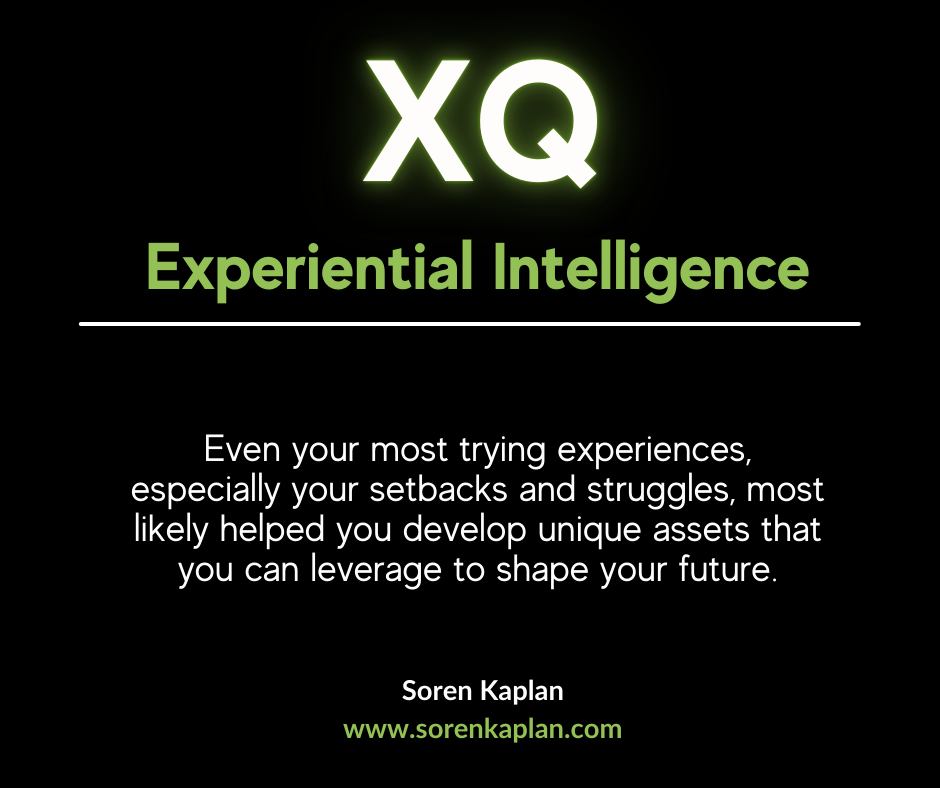
Even your most trying experiences, especially your setbacks and struggles, most likely helped you develop unique assets that you can leverage to shape your future.
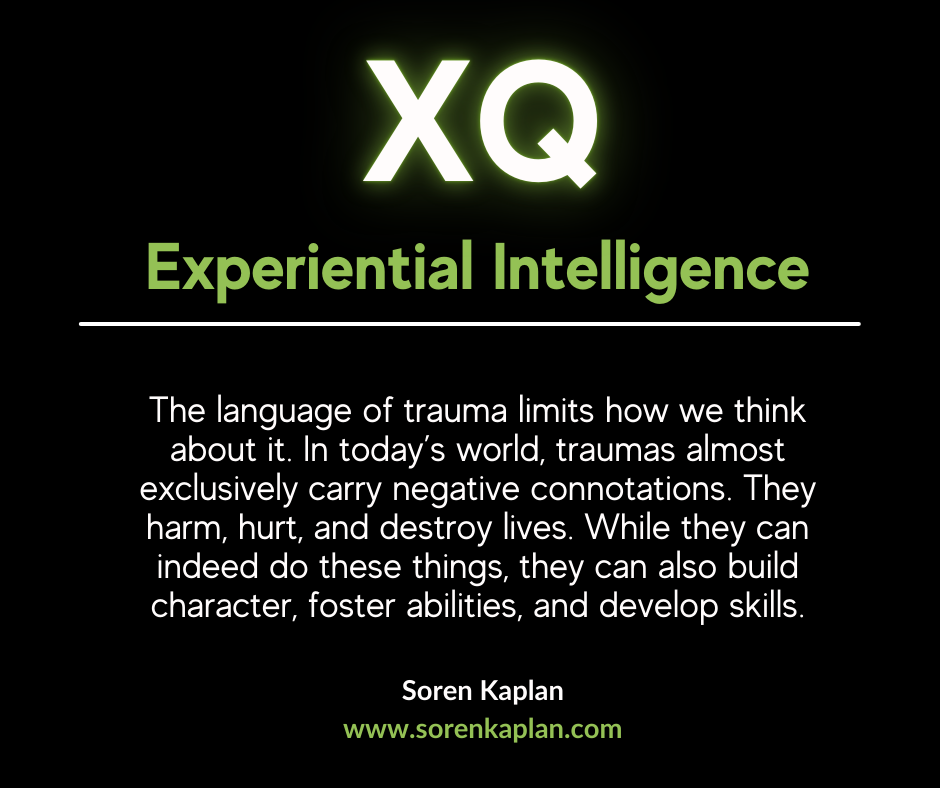
The language of trauma limits how we think about it. In today’s world, traumas almost exclusively carry negative connotations. They harm, hurt, and destroy lives. While they can indeed do these things, they can also build character, foster abilities, and develop skills.
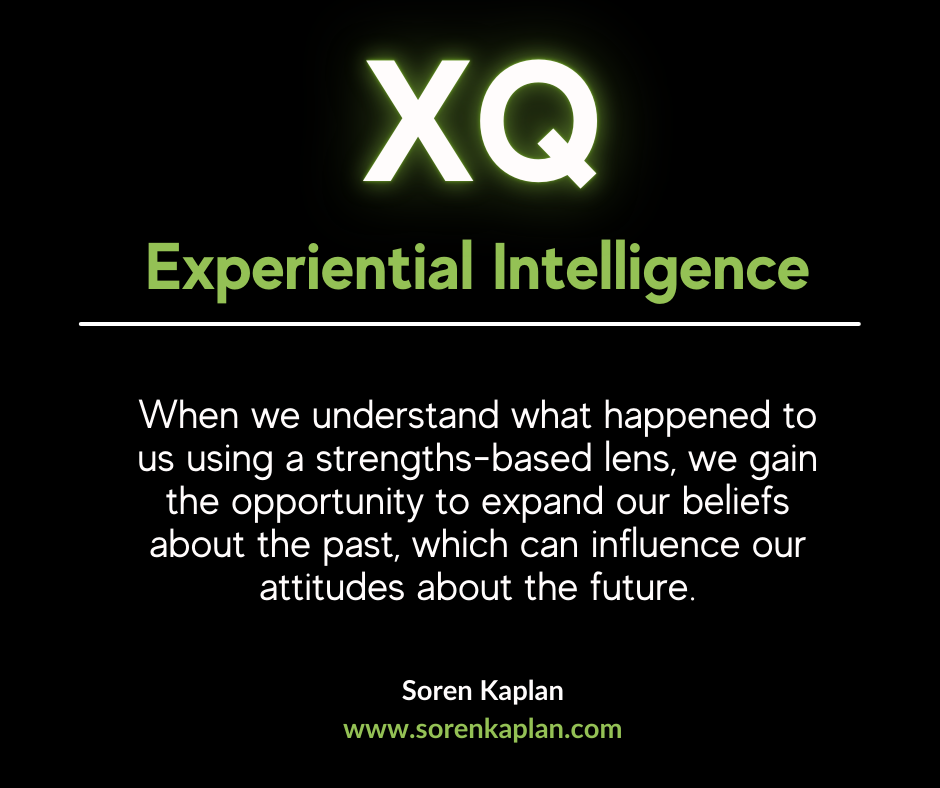
When we understand what happened to us using a strengths-based lens, we gain the opportunity to expand our beliefs about the past, which can influence our attitudes about the future.
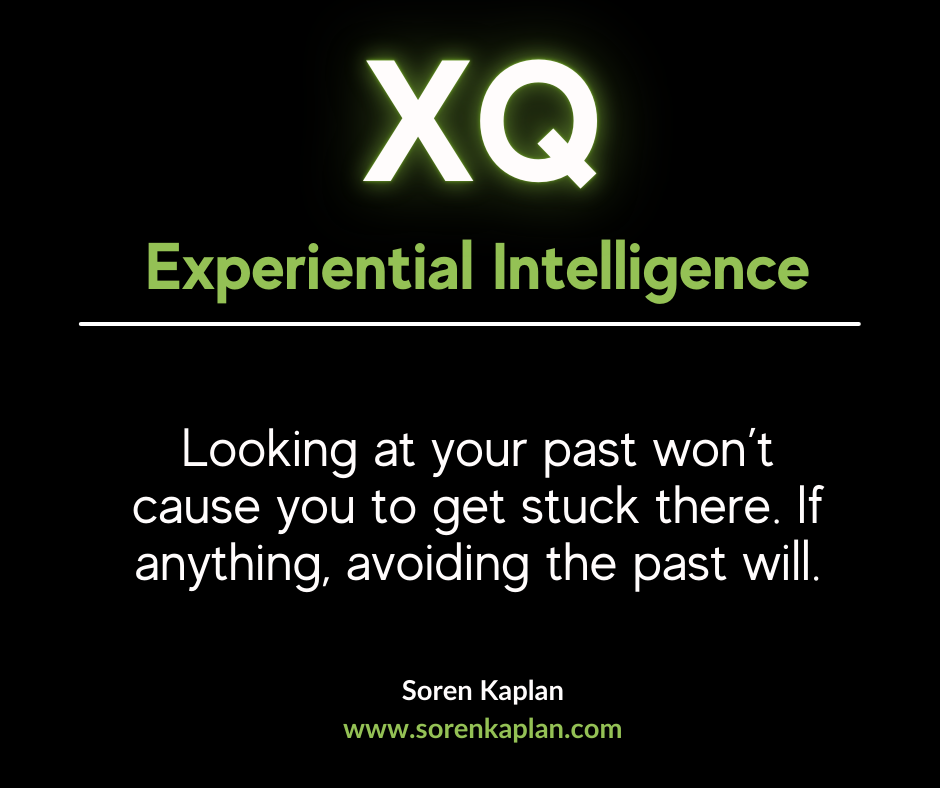
Looking at your past won’t cause you to get stuck there. If anything, avoiding the past will.
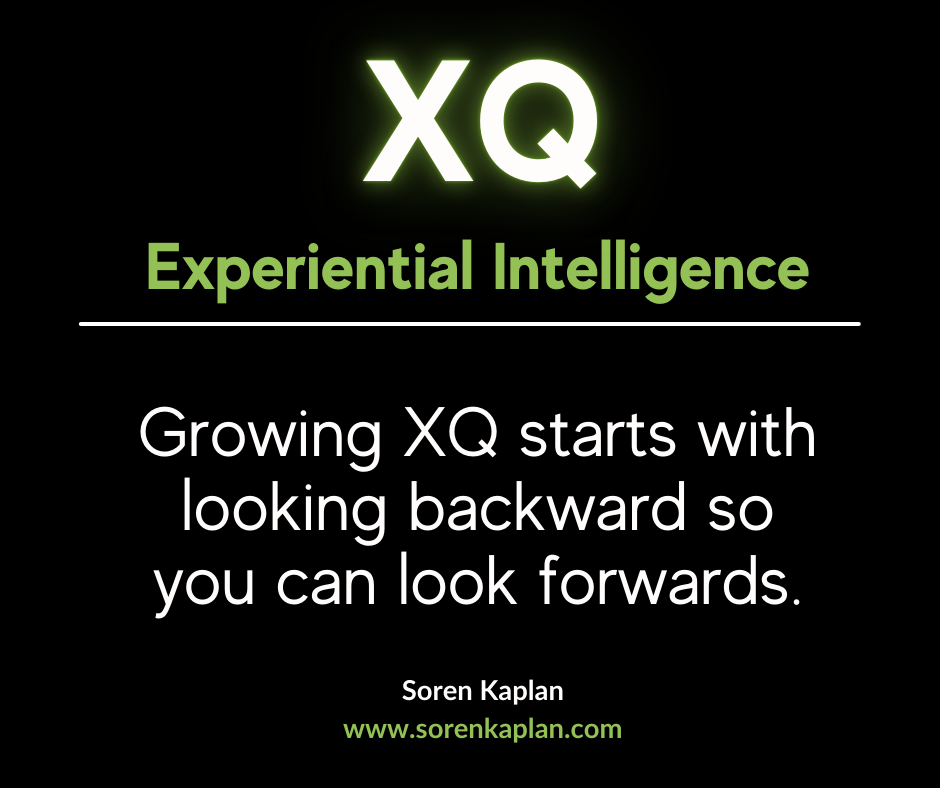
Growing XQ starts with looking backward so you can look forward.
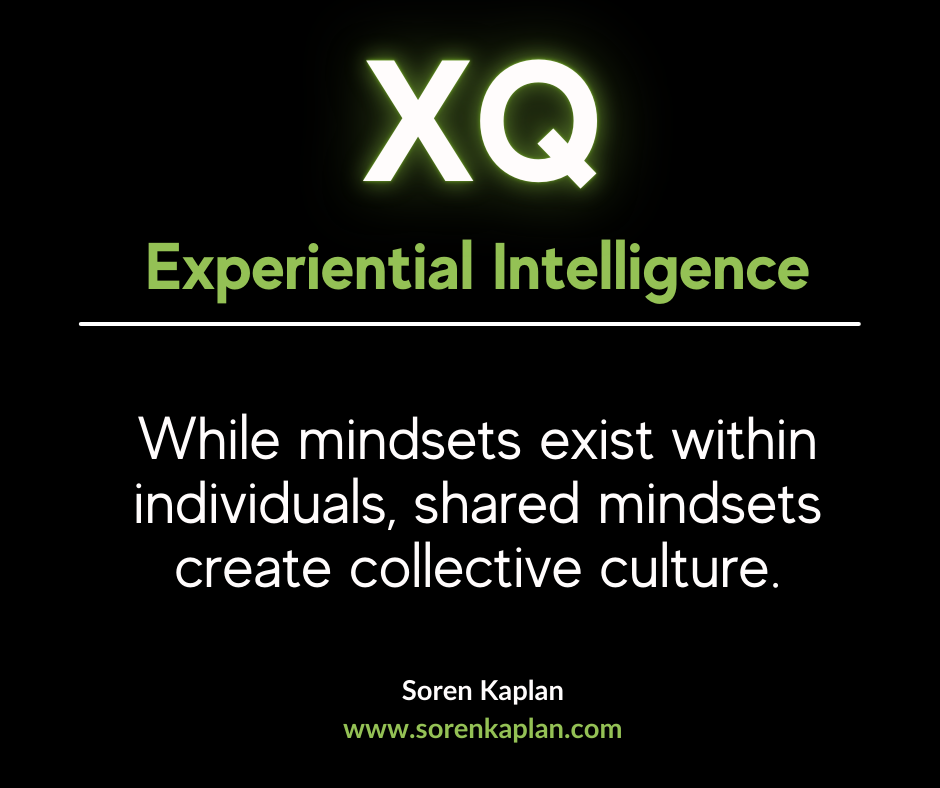
While mindsets exist within individuals, shared mindsets create collective culture.
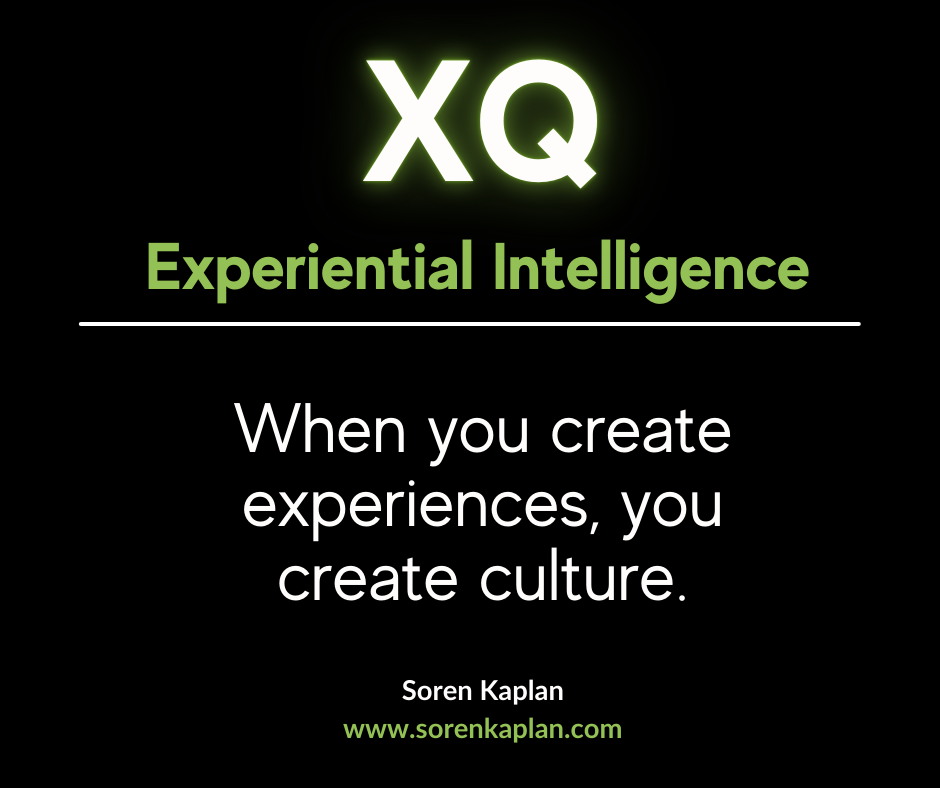
When you create experiences, you create culture.
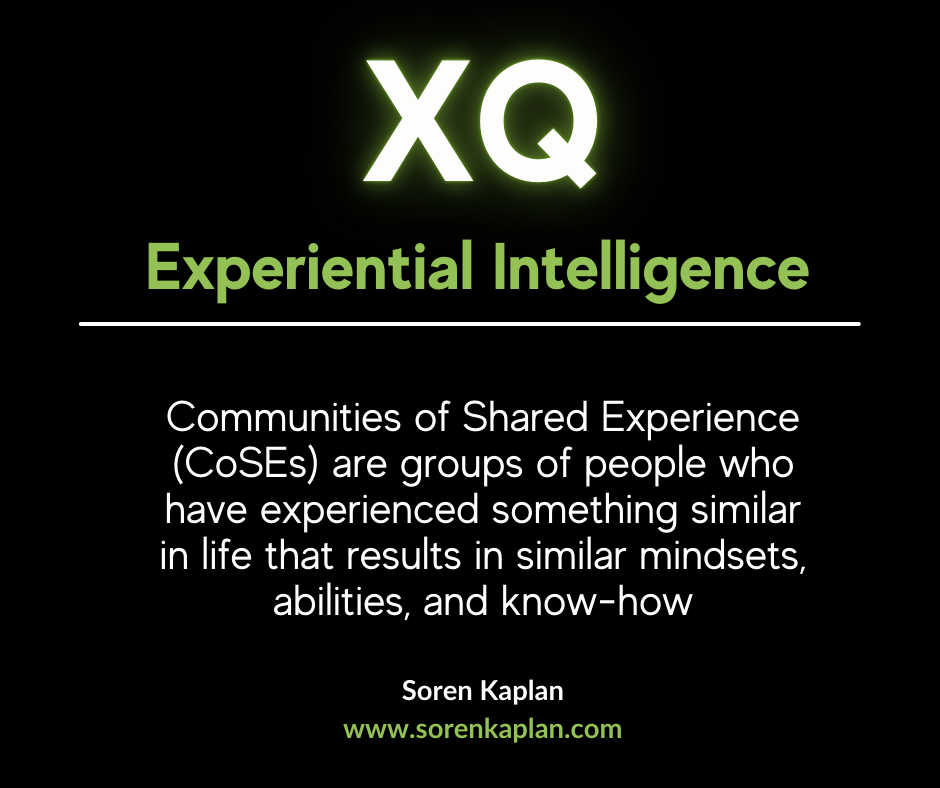
Communities of Shared Experience (CoSEs) are groups of people who have experienced something similar in life that results in similar mindsets, abilities, and know-how.

Shared experiences create the opportunity for shared empathy. You feel what they feel. They feel what you feel.
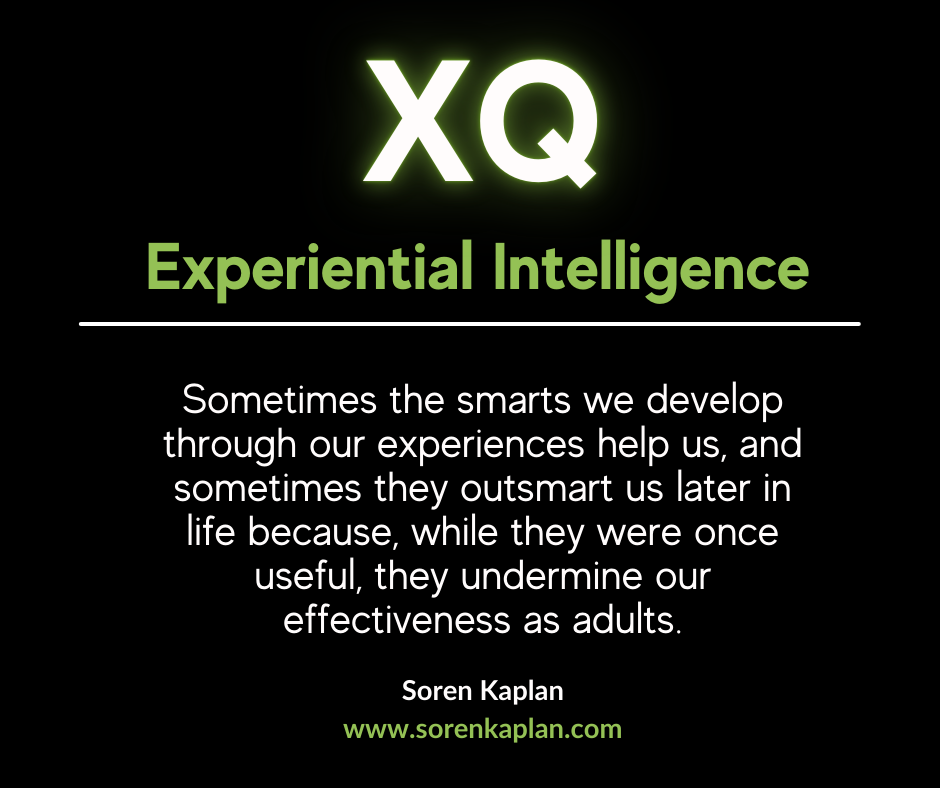
Sometimes the smarts we develop through our experiences help us, and sometimes they outsmart us later in life because, while they were once useful, they undermine our effectiveness as adults.
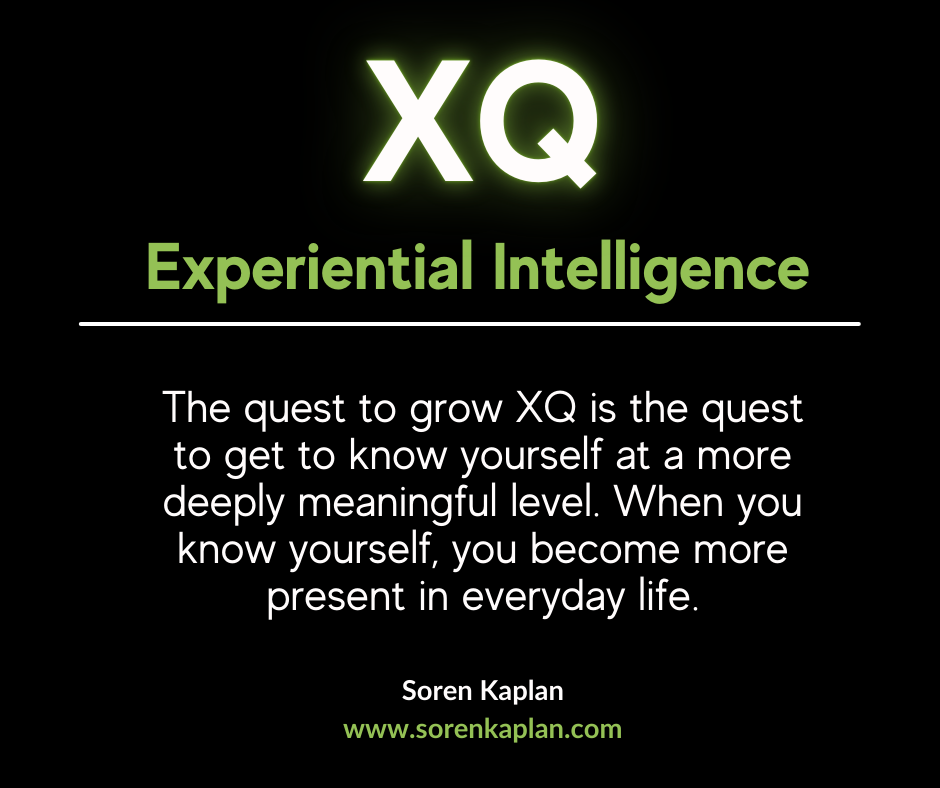
The quest to grow XQ is the quest to get to know yourself at a more deeply meaningful level. When you know yourself, you become more present in everyday life.
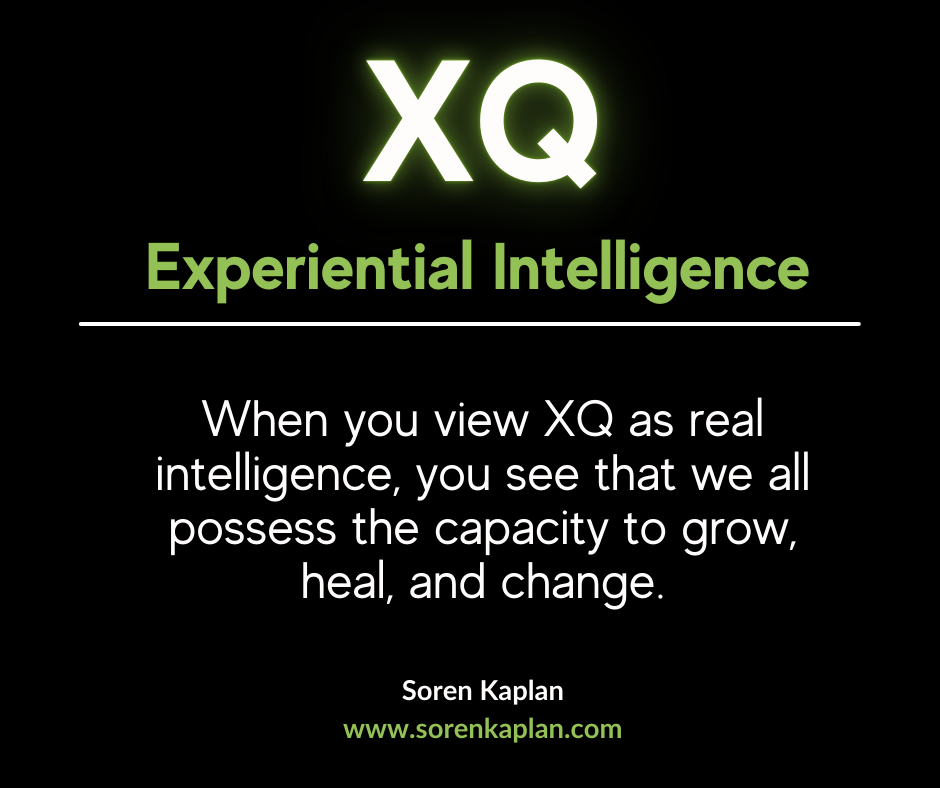
When you view XQ as real intelligence, you see that we all possess the capacity to grow, heal, and change.
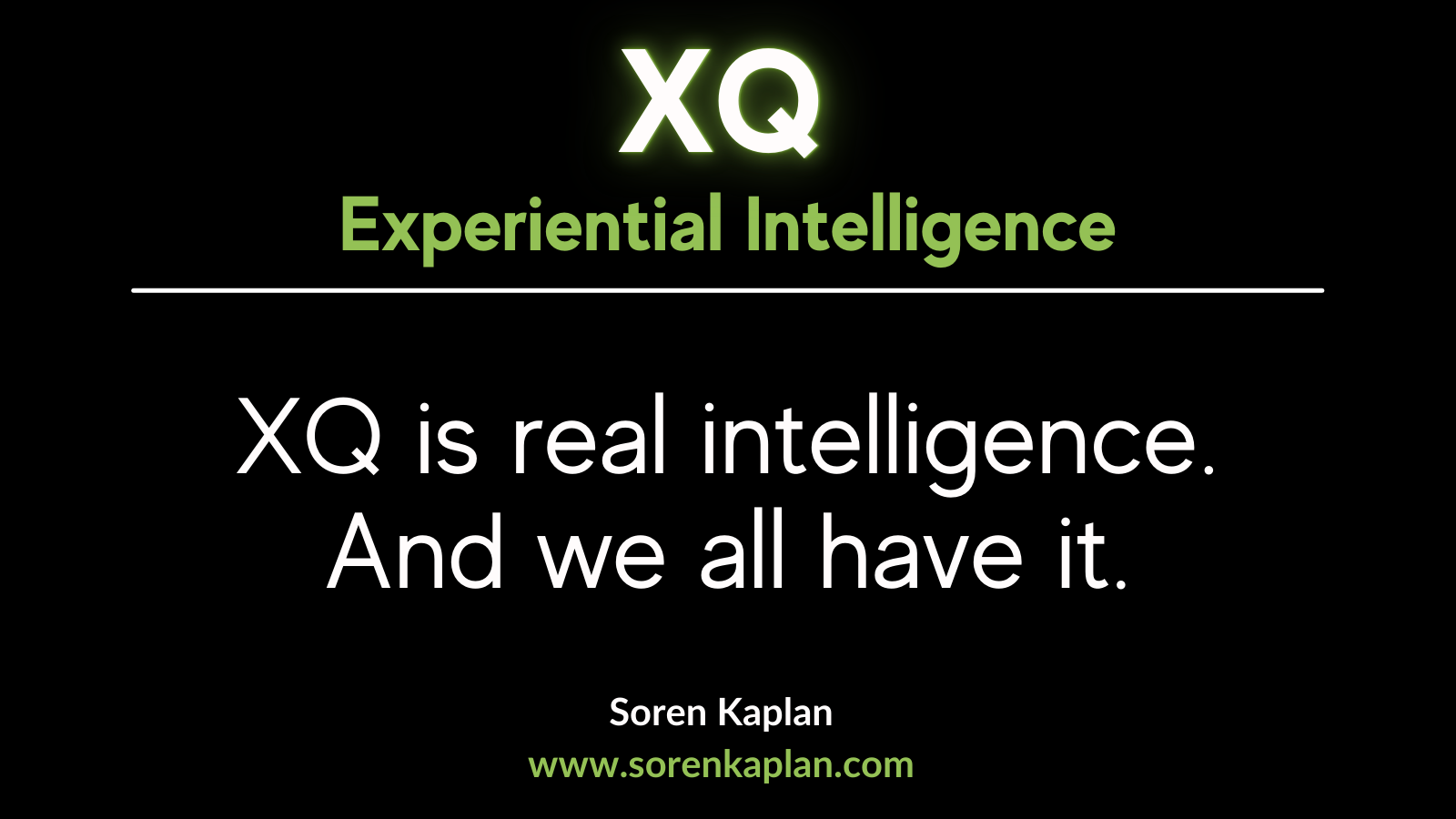
XQ is real intelligence. And we all have it.
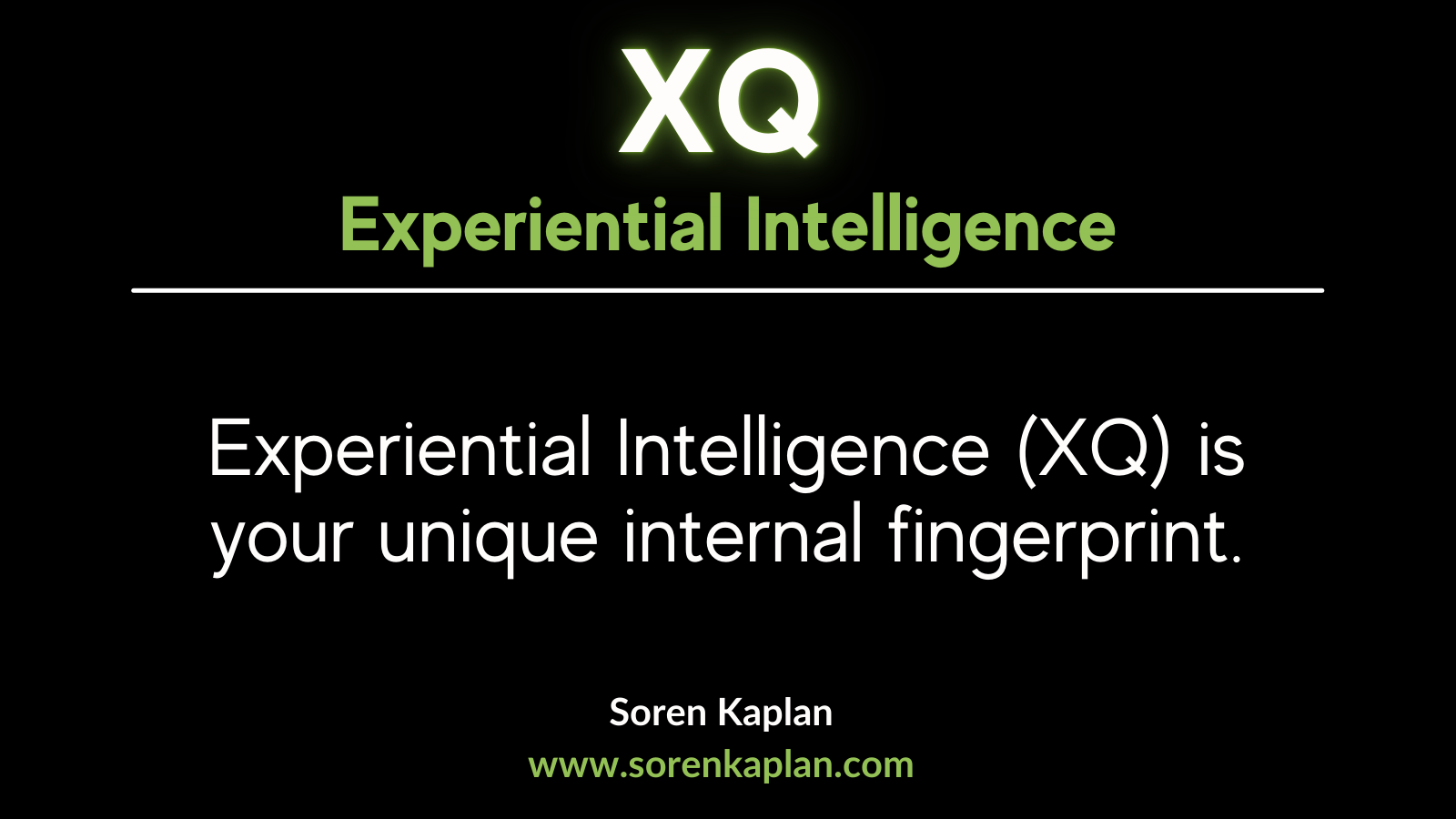
Experiential Intelligence (XQ) is your unique internal fingerprint.
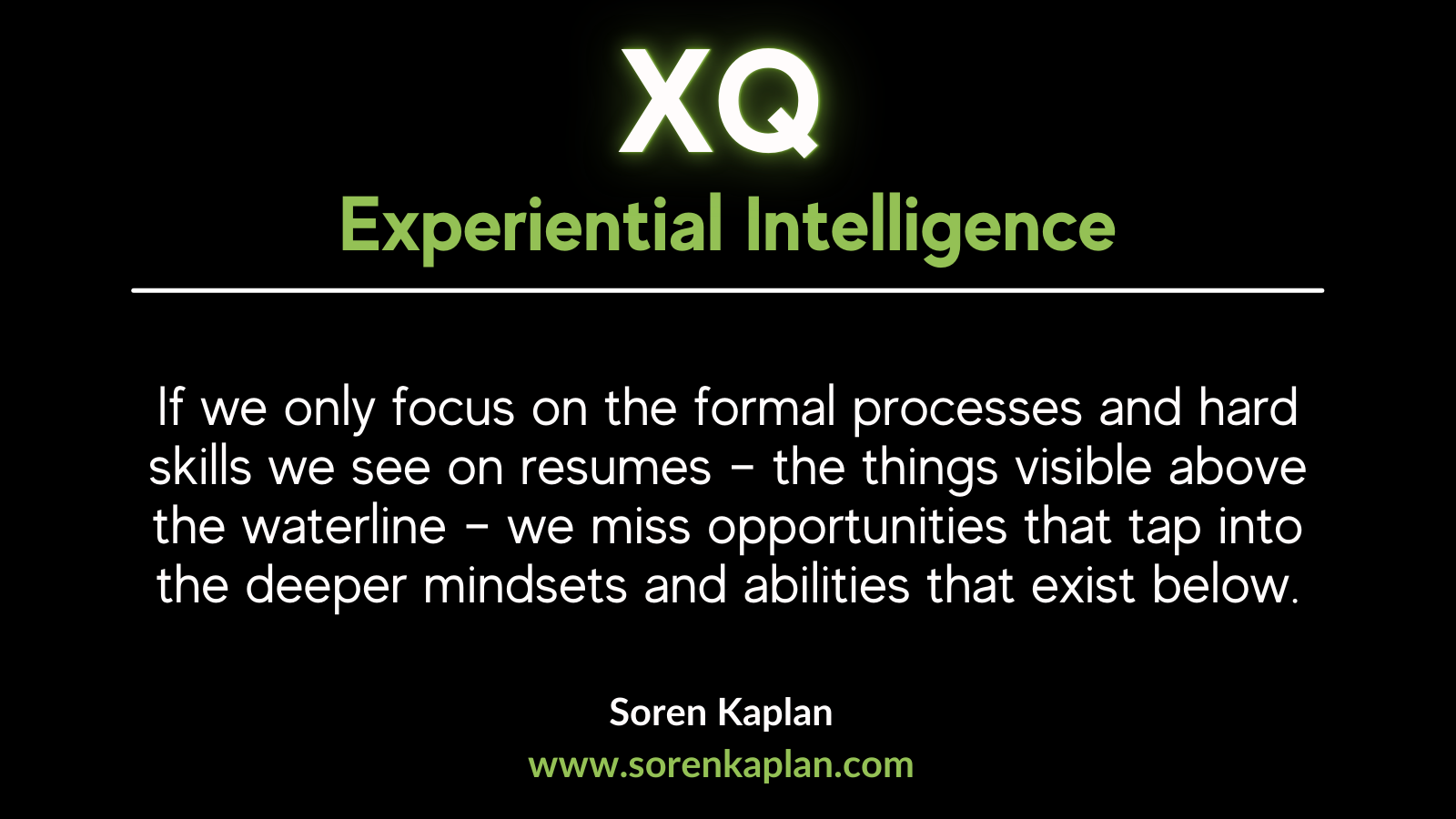
If we only focus on the formal processes and hard skills we see on resumes – the things visible above the waterline – we miss opportunities that tap into the deeper mindsets and abilities that exist below.
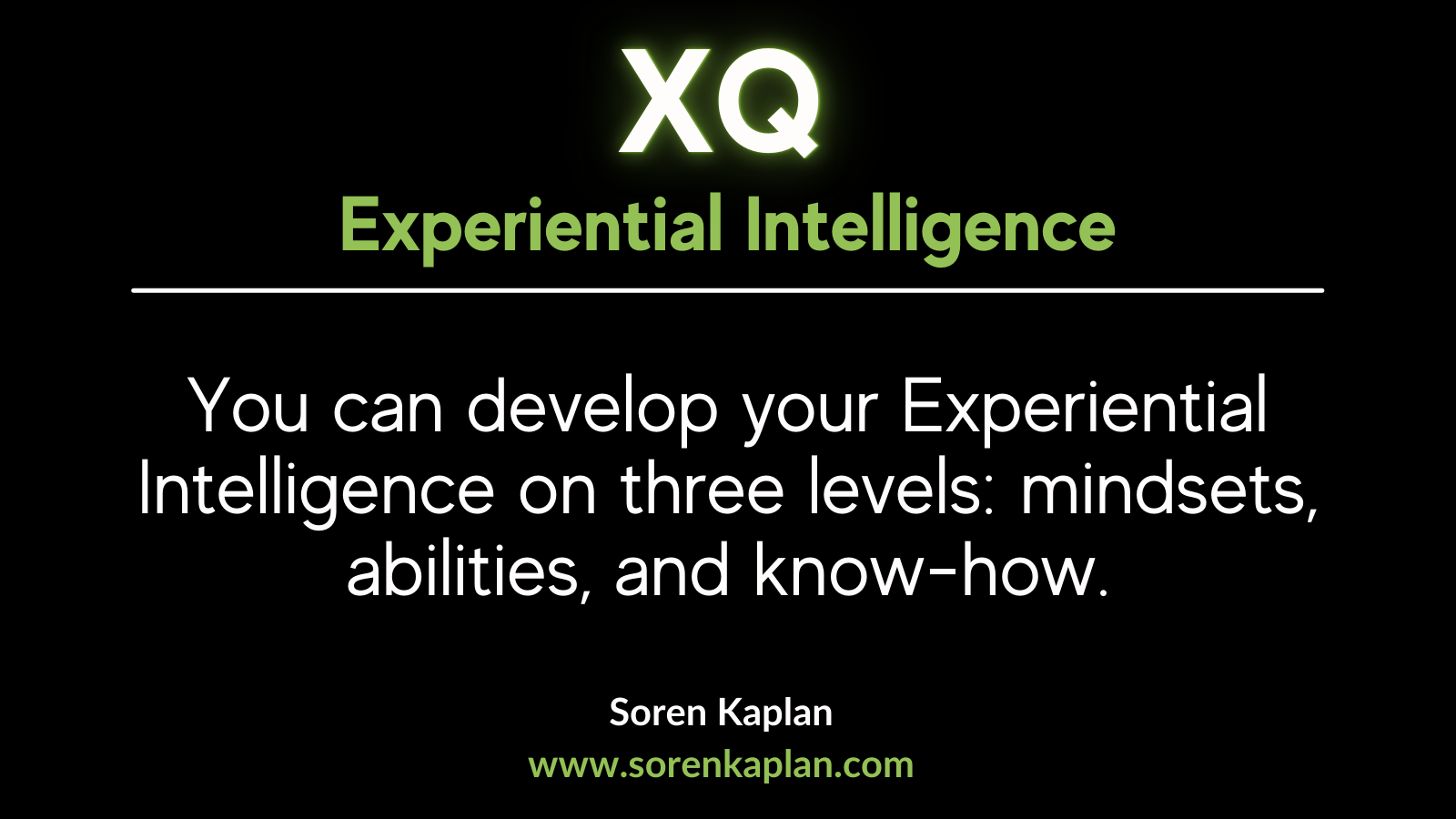
You can develop your Experiential Intelligence on three levels: mindsets, abilities, and know-how.
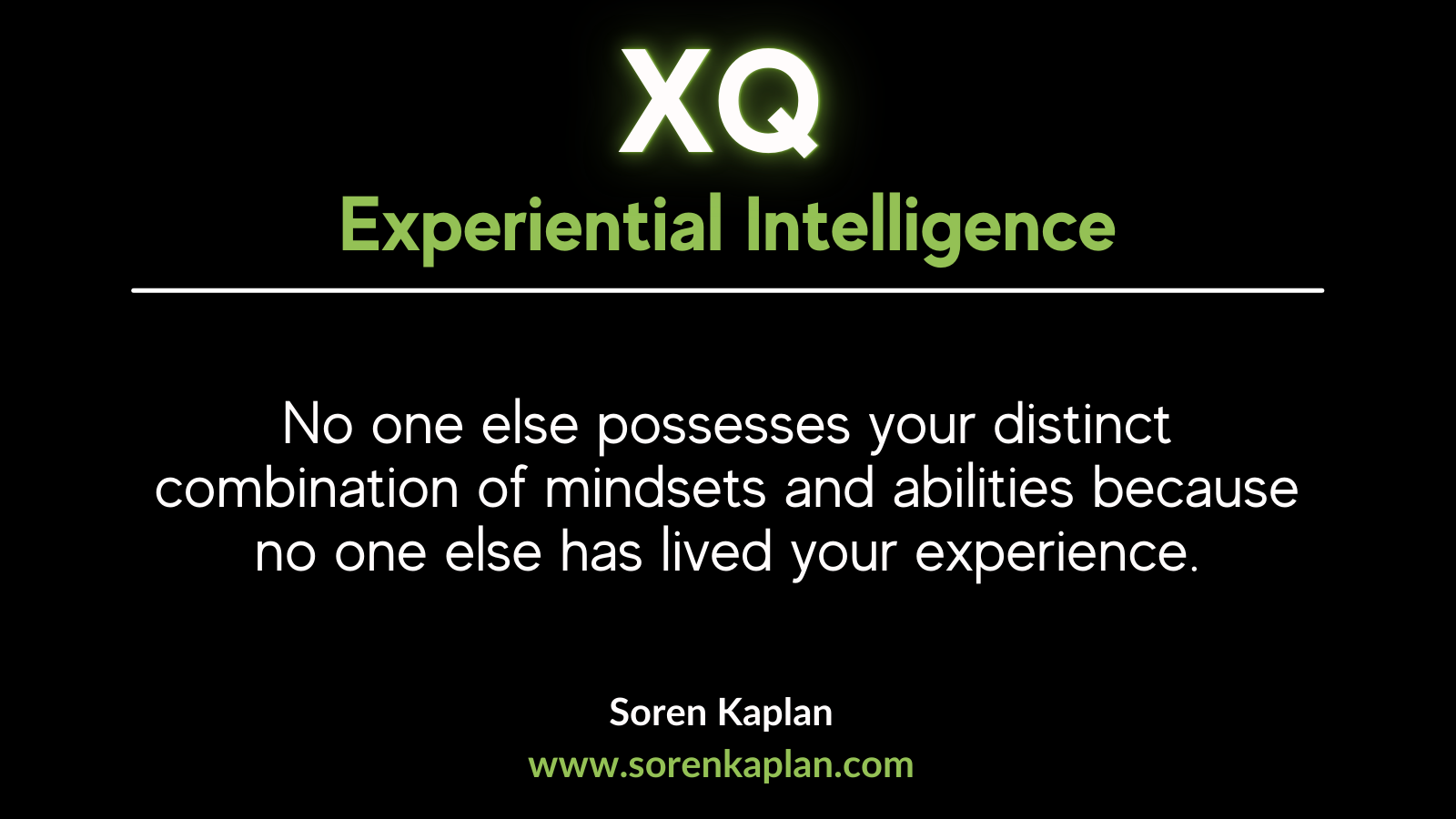
No one else possesses your distinct combination of mindsets and abilities because no one else has lived your experience.

The most powerful concepts like XQ, like our most powerful personal assets, are often those that, in retrospect, we realize have been hiding in plain sight all along.
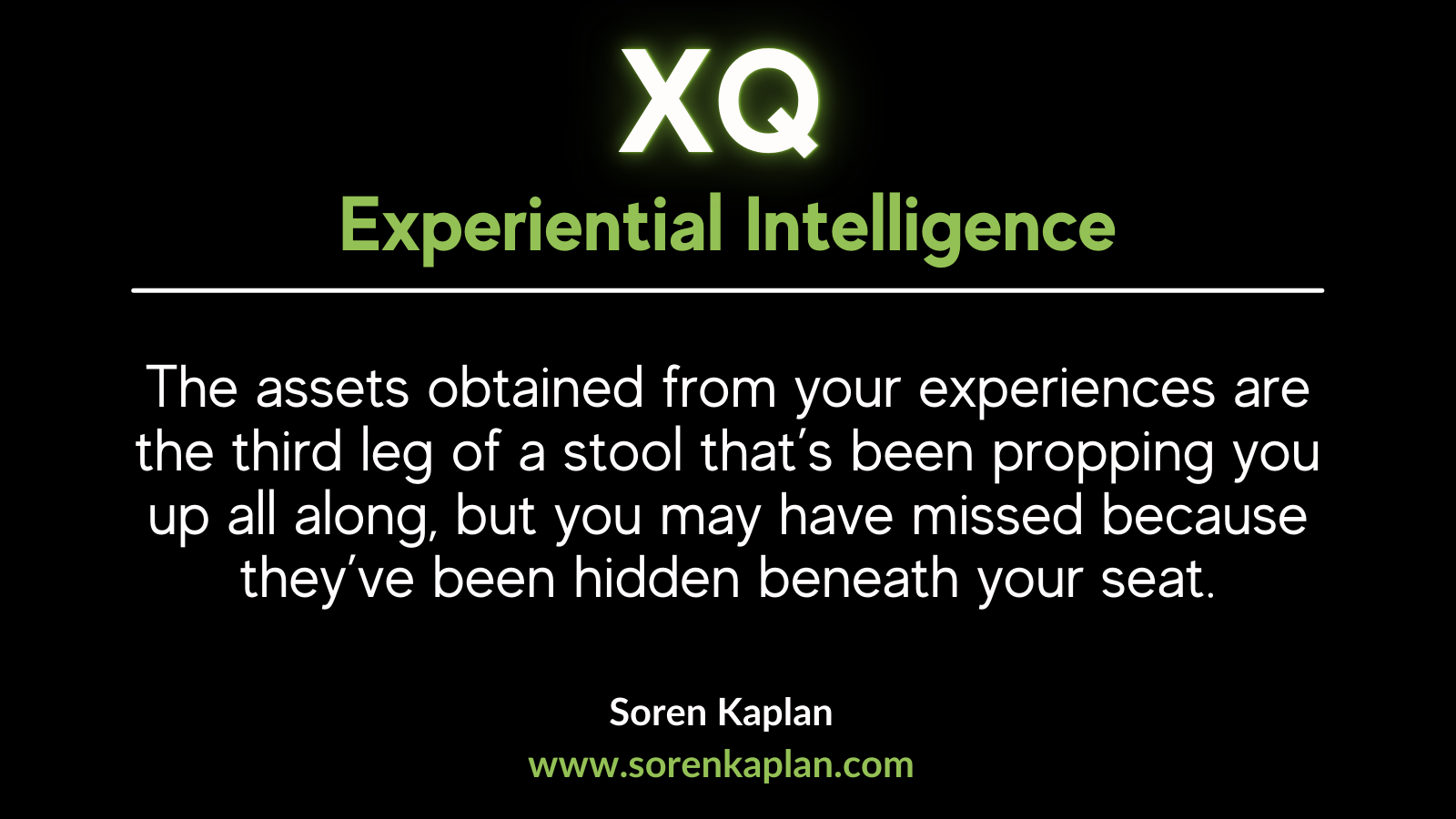
The assets obtained from your experiences are the third leg of a stool that’s been propping you up all along, but you may have missed because they’ve been hidden beneath your seat.
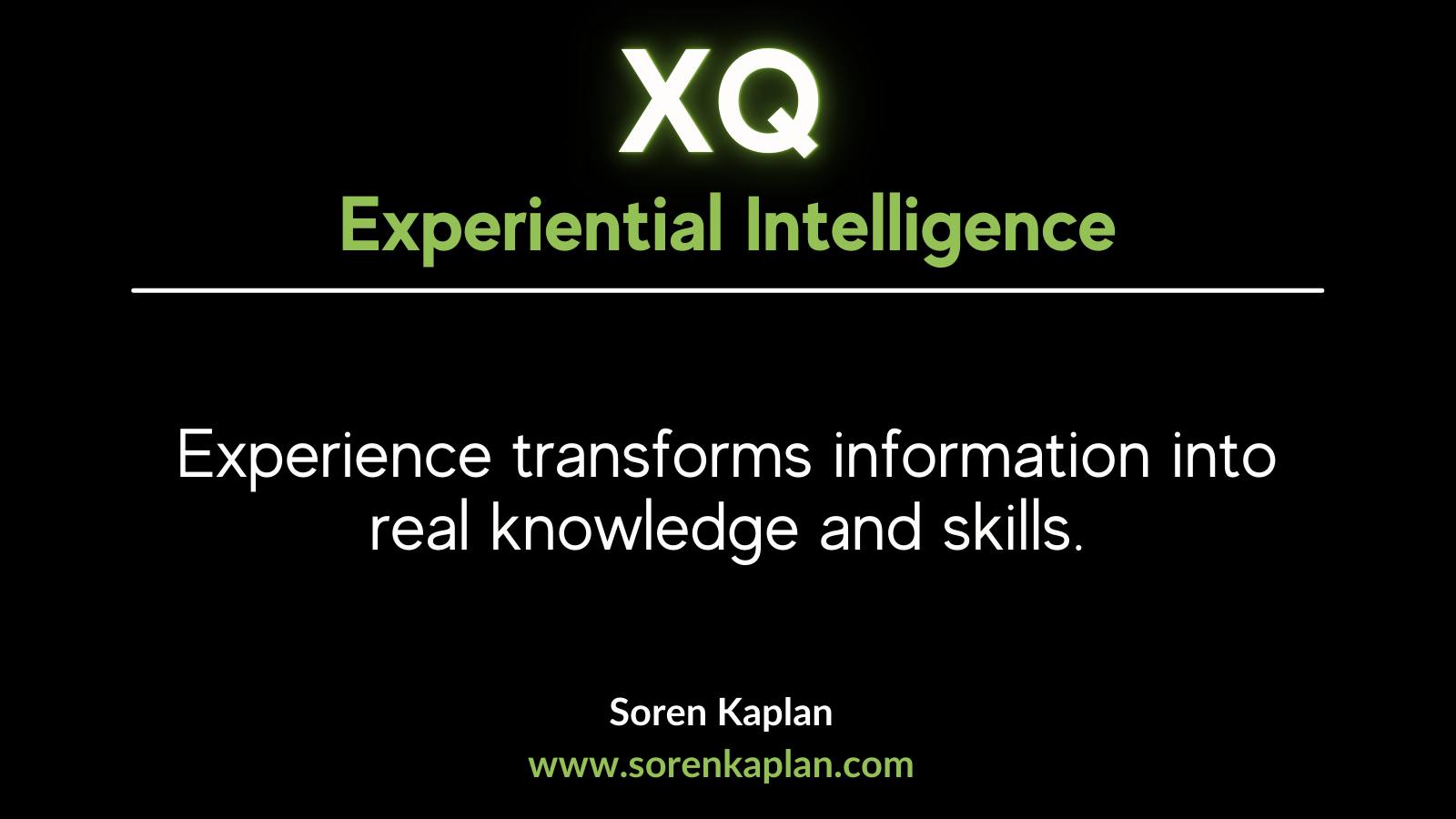
Experience transforms information into real knowledge and skills.
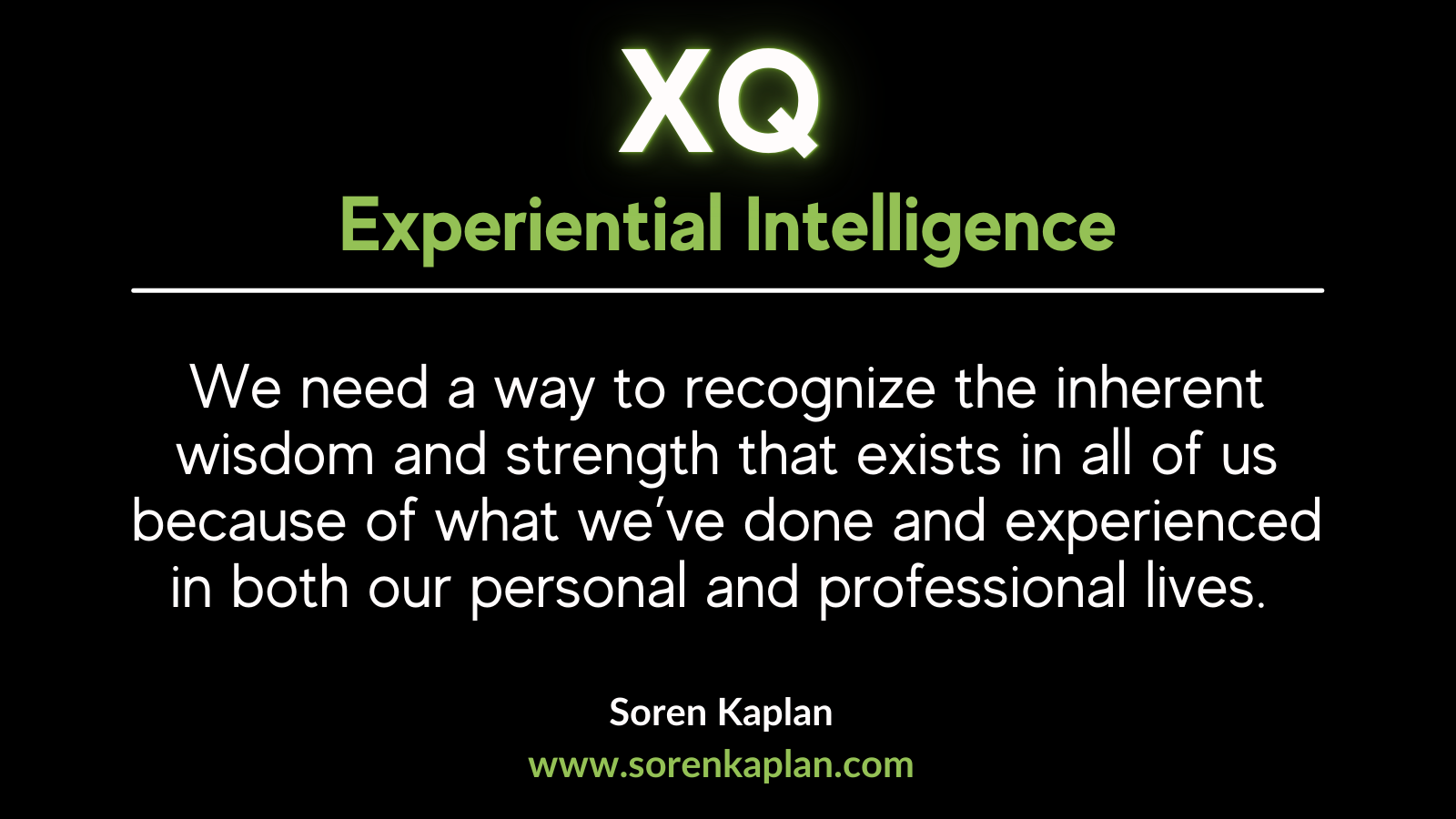
We need a way to recognize the inherent wisdom and strength that exists in all of us because of what we’ve done and experienced in both our personal and professional lives.
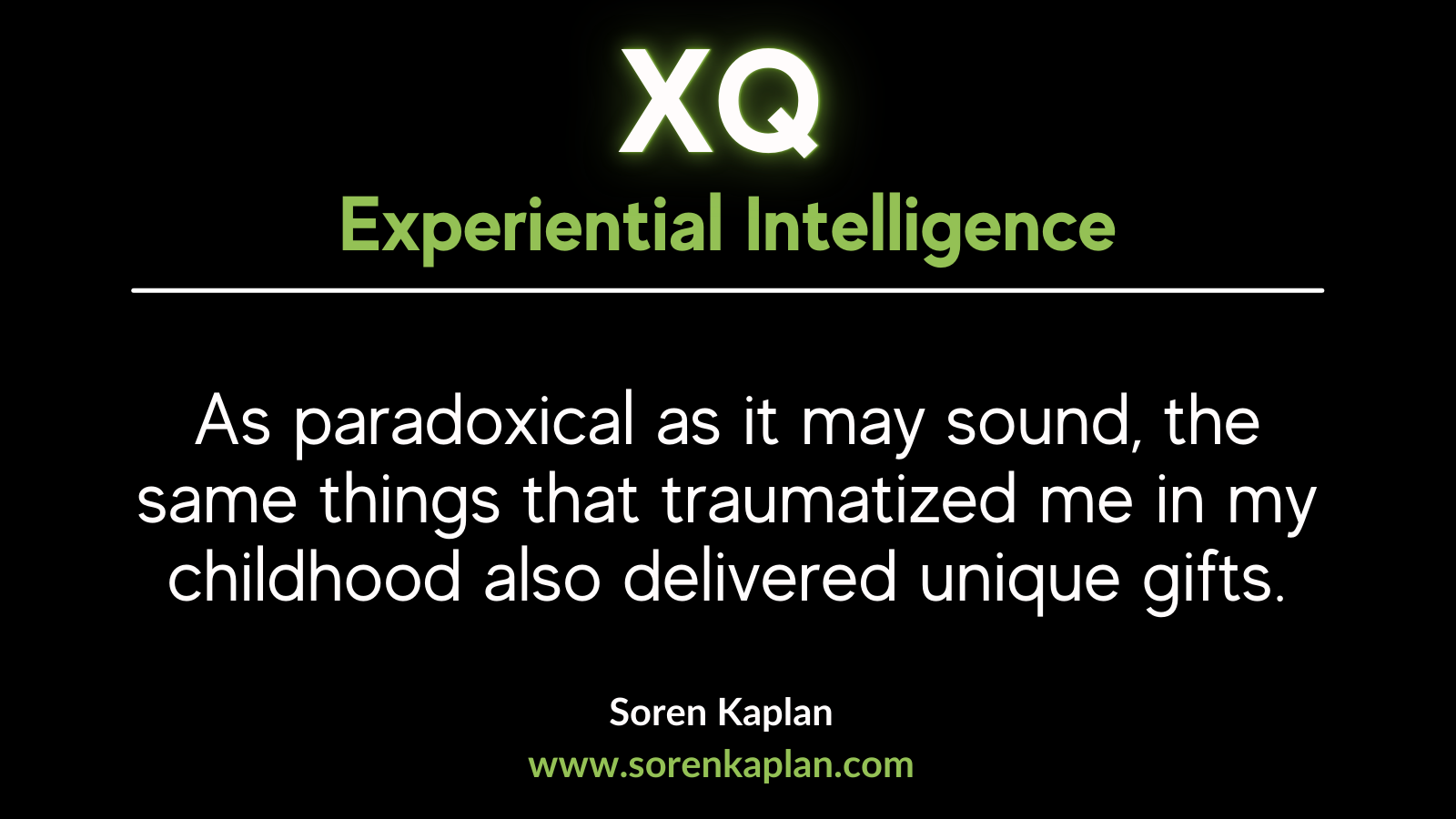
As paradoxical as it may sound, the same things that traumatized me in my childhood also delivered unique gifts.
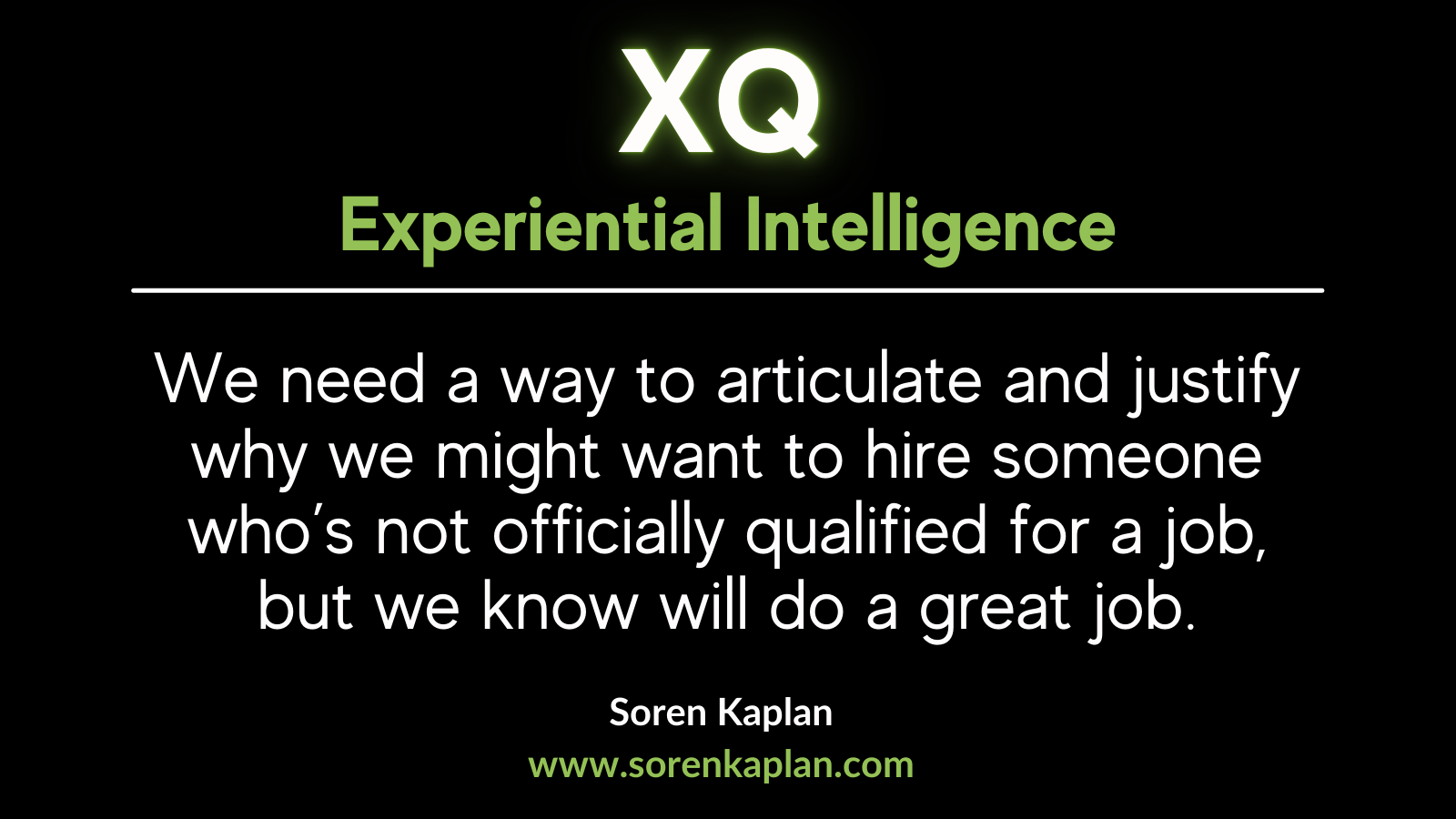
We need a way to articulate and justify why we might want to hire someone who’s not officially qualified for a job, but we know will do a great job.
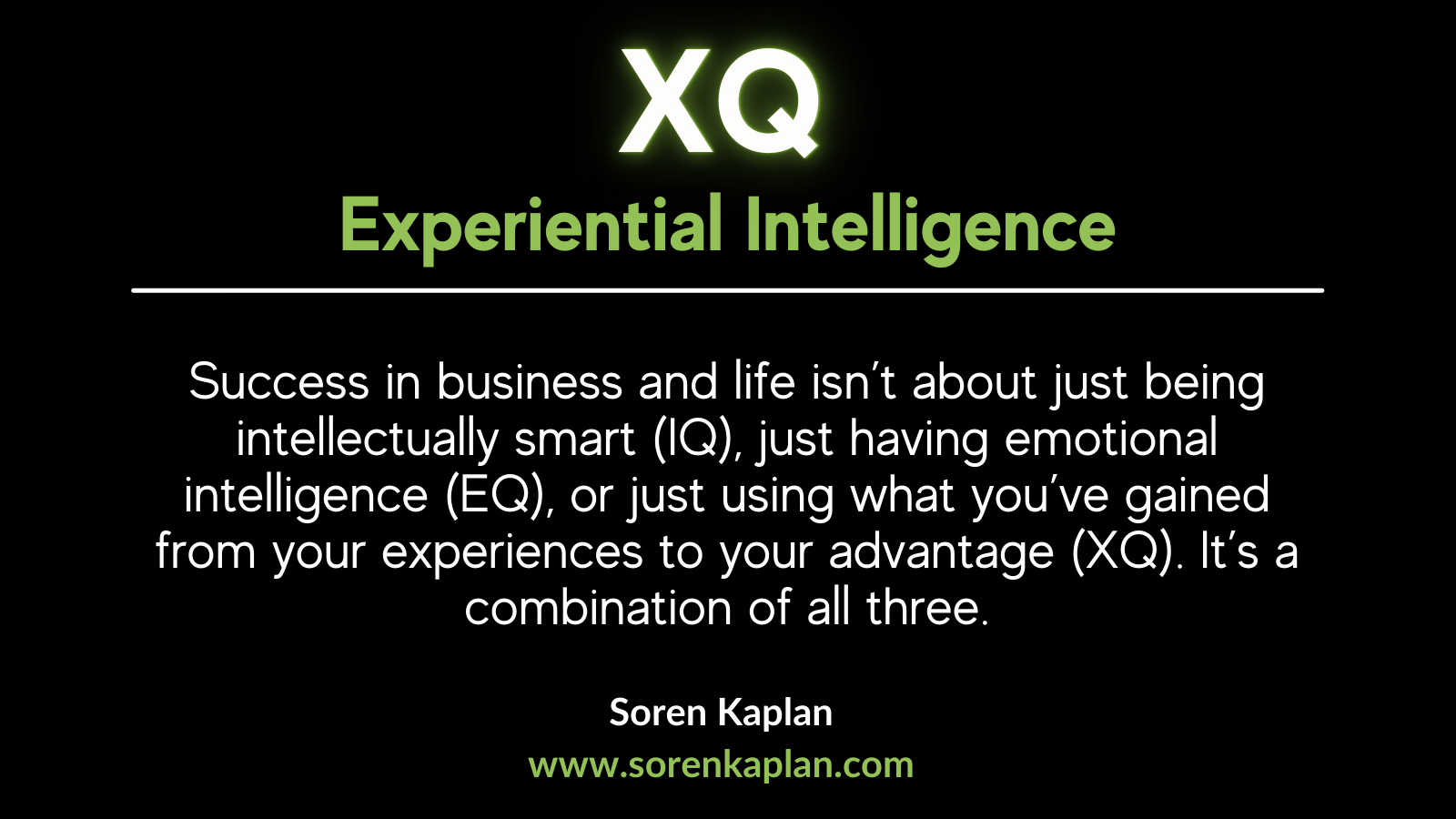
Success in business and life isn’t about just being intellectually smart (IQ), just having emotional intelligence (EQ), or just using what you’ve gained from your experiences to your advantage (XQ). It’s a combination of all three.
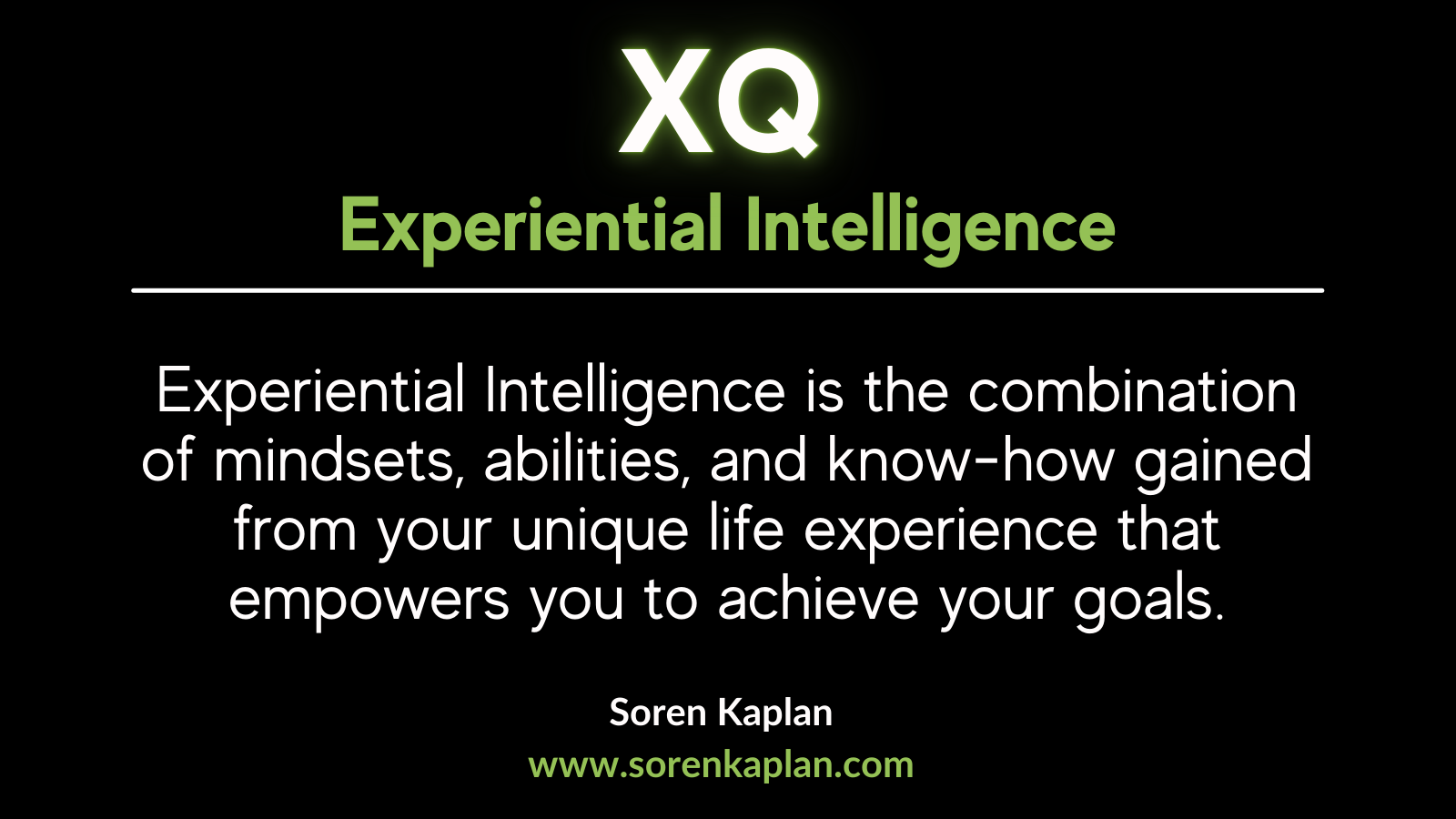
Experiential Intelligence is the combination of mindsets, abilities, and know-how gained from your unique life experience that empowers you to achieve your goals.

While the world generally recognizes IQ and EQ as indicators of ability and success, the missing element is Experiential Intelligence.
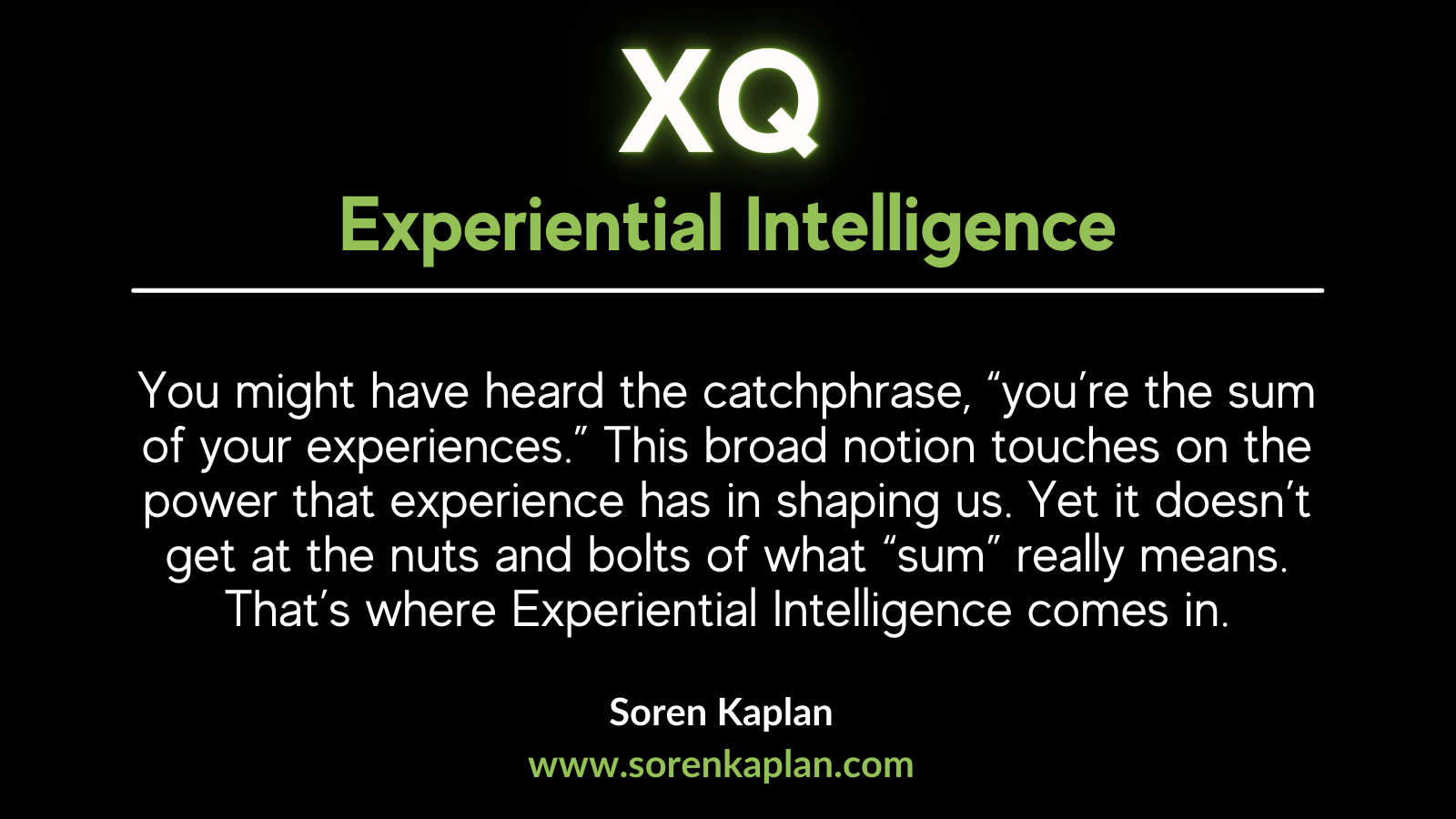
You might have heard the catchphrase, “you’re the sum of your experiences.” This broad notion touches on the power that experience has in shaping us. Yet it doesn’t get at the nuts and bolts of what “sum” really means. That’s where Experiential Intelligence comes in.
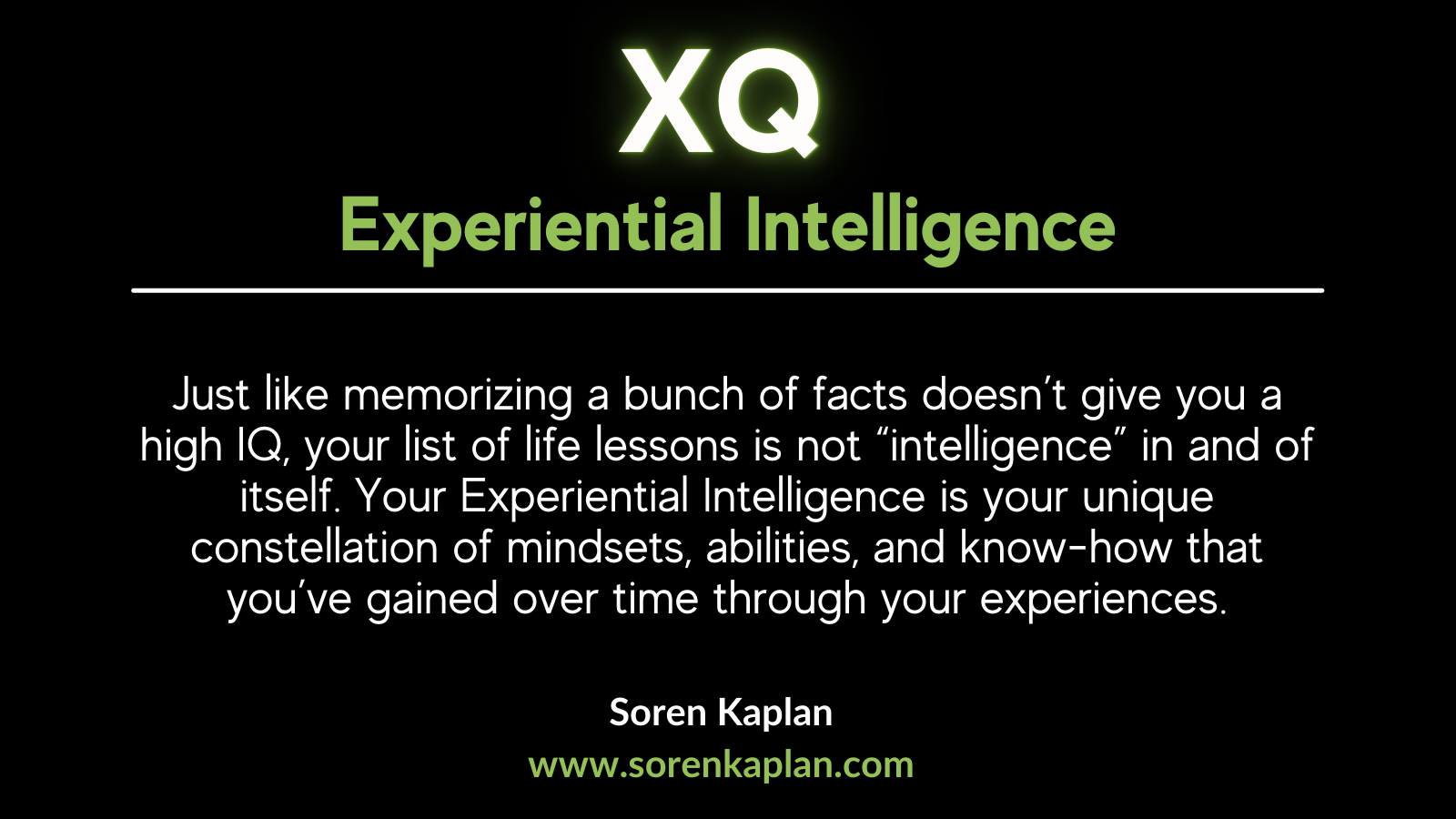
Just like memorizing a bunch of facts doesn’t give you a high IQ, your list of life lessons is not “intelligence” in and of itself. Your Experiential Intelligence is your unique constellation of mindsets, abilities, and know-how that you’ve gained over time through your experiences.

Like IQ and EQ, Experiential Intelligence is something we all possess, because we all have past experiences that have influenced where we are today. Your Experiential Intelligence increases as your level of self-awareness of your mindsets, abilities, and know-how increases.

Growing your XQ is about knowing what you know.
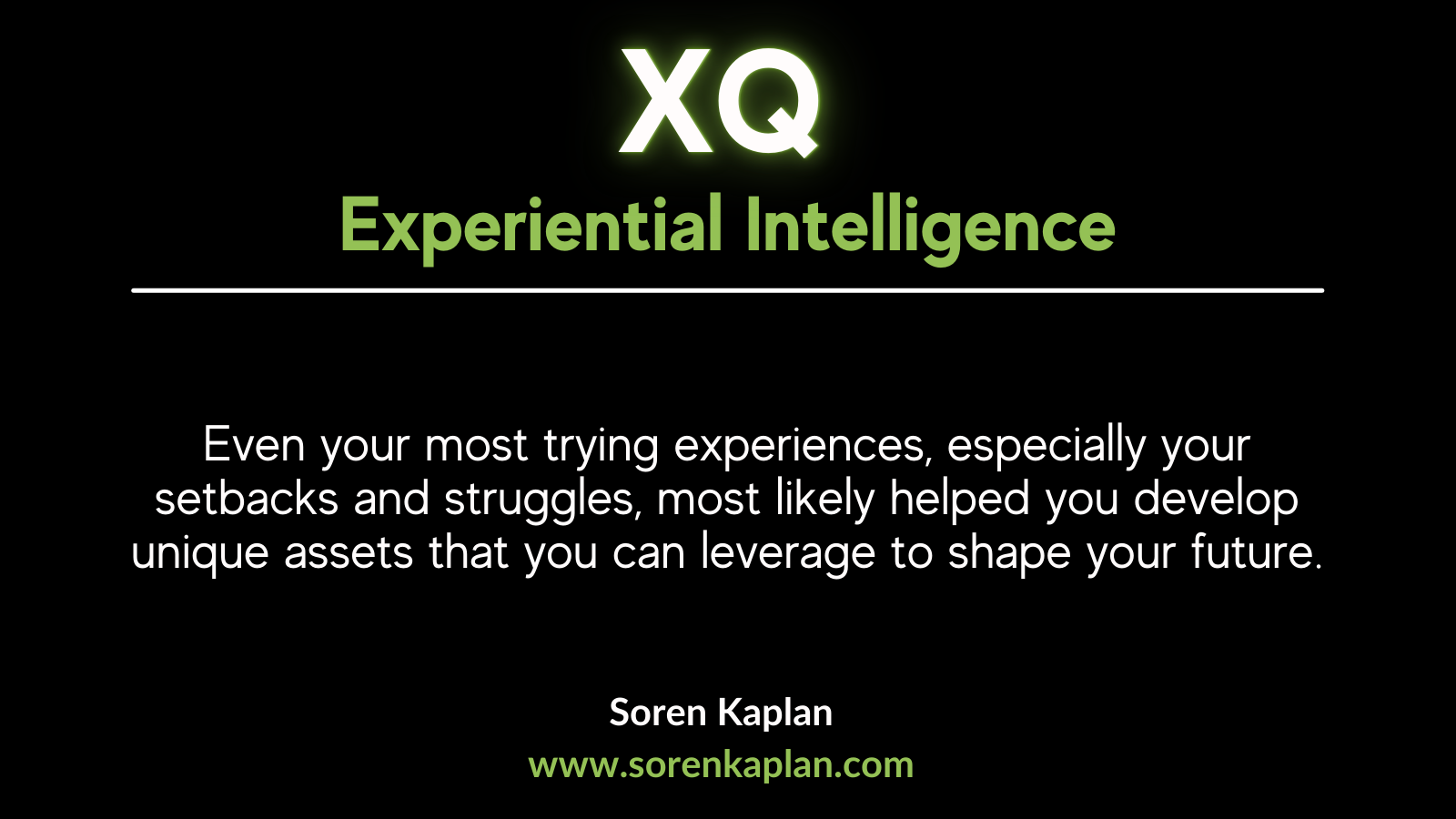
Even your most trying experiences, especially your setbacks and struggles, most likely helped you develop unique assets that you can leverage to shape your future.
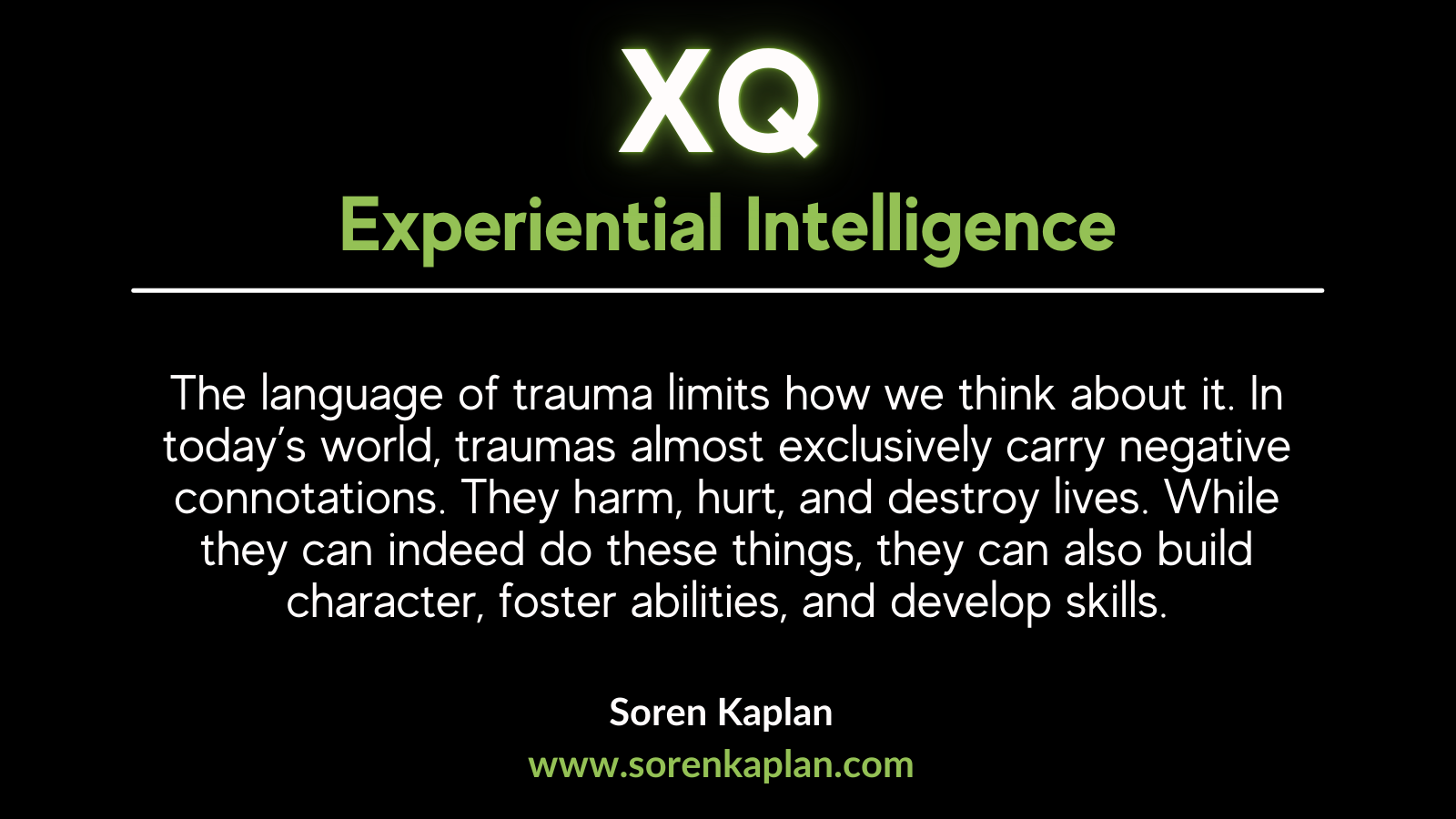
The language of trauma limits how we think about it. In today’s world, traumas almost exclusively carry negative connotations. They harm, hurt, and destroy lives. While they can indeed do these things, they can also build character, foster abilities, and develop skills.
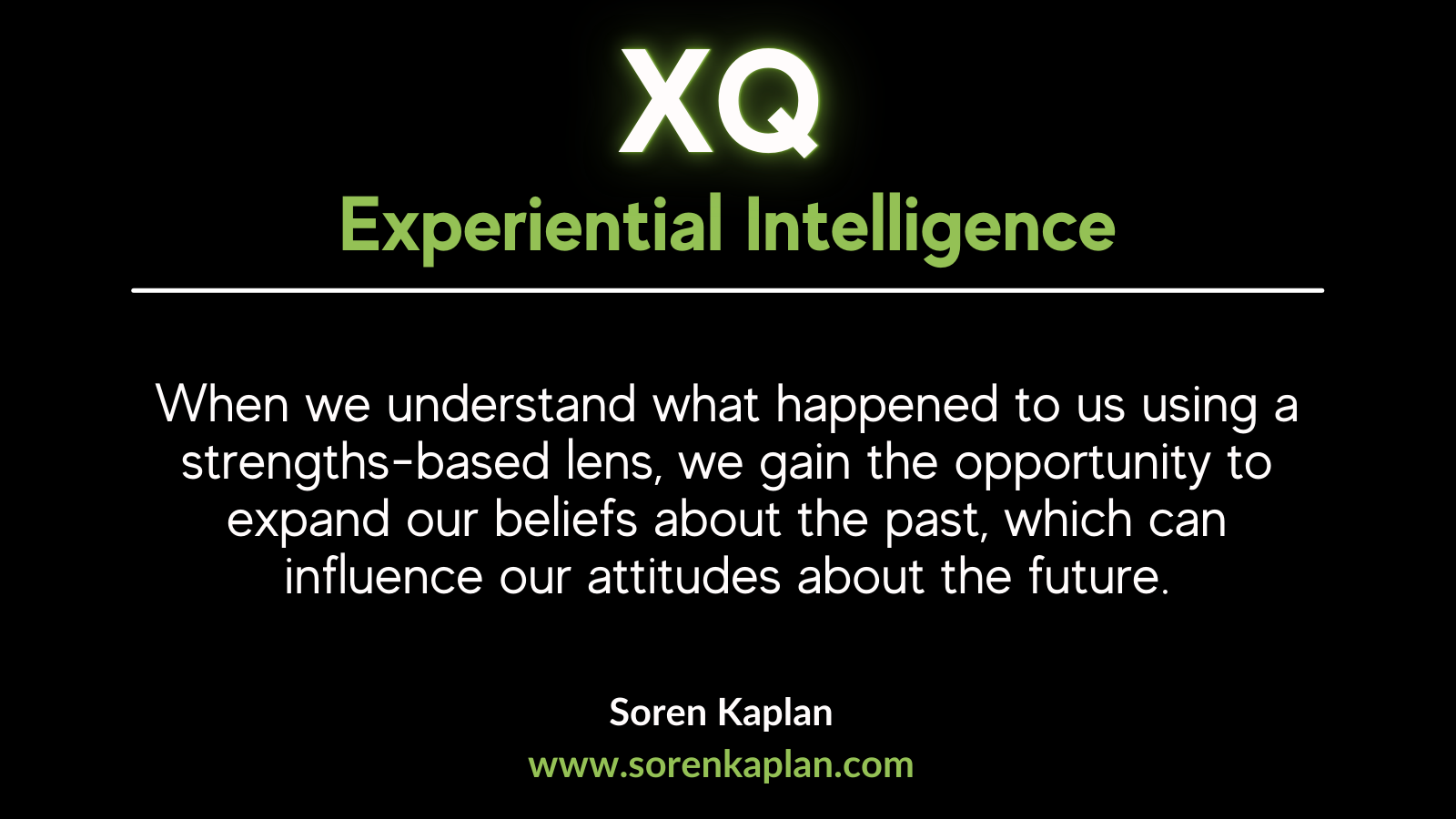
When we understand what happened to us using a strengths-based lens, we gain the opportunity to expand our beliefs about the past, which can influence our attitudes about the future.
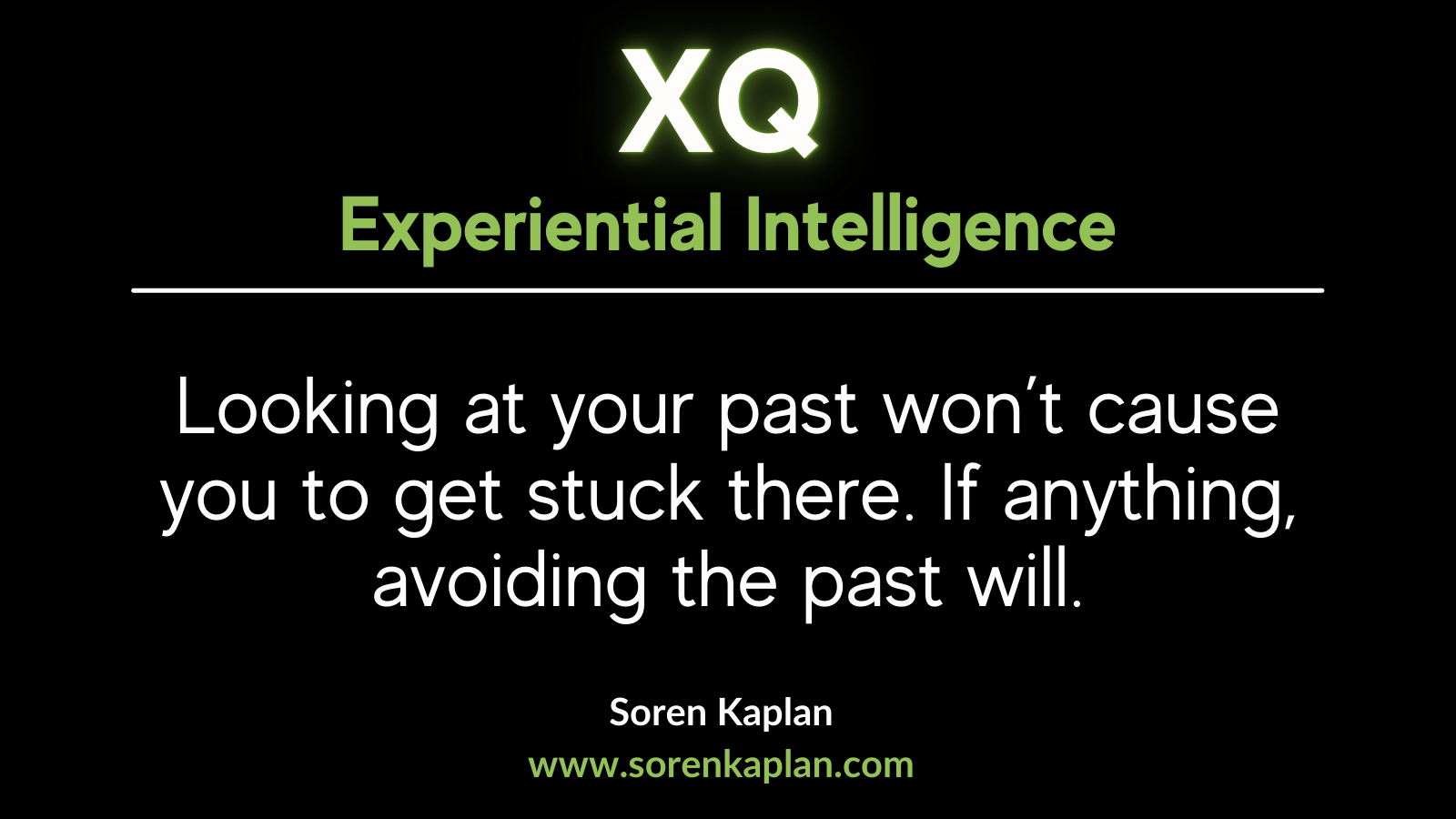
Looking at your past won’t cause you to get stuck there. If anything, avoiding the past will.
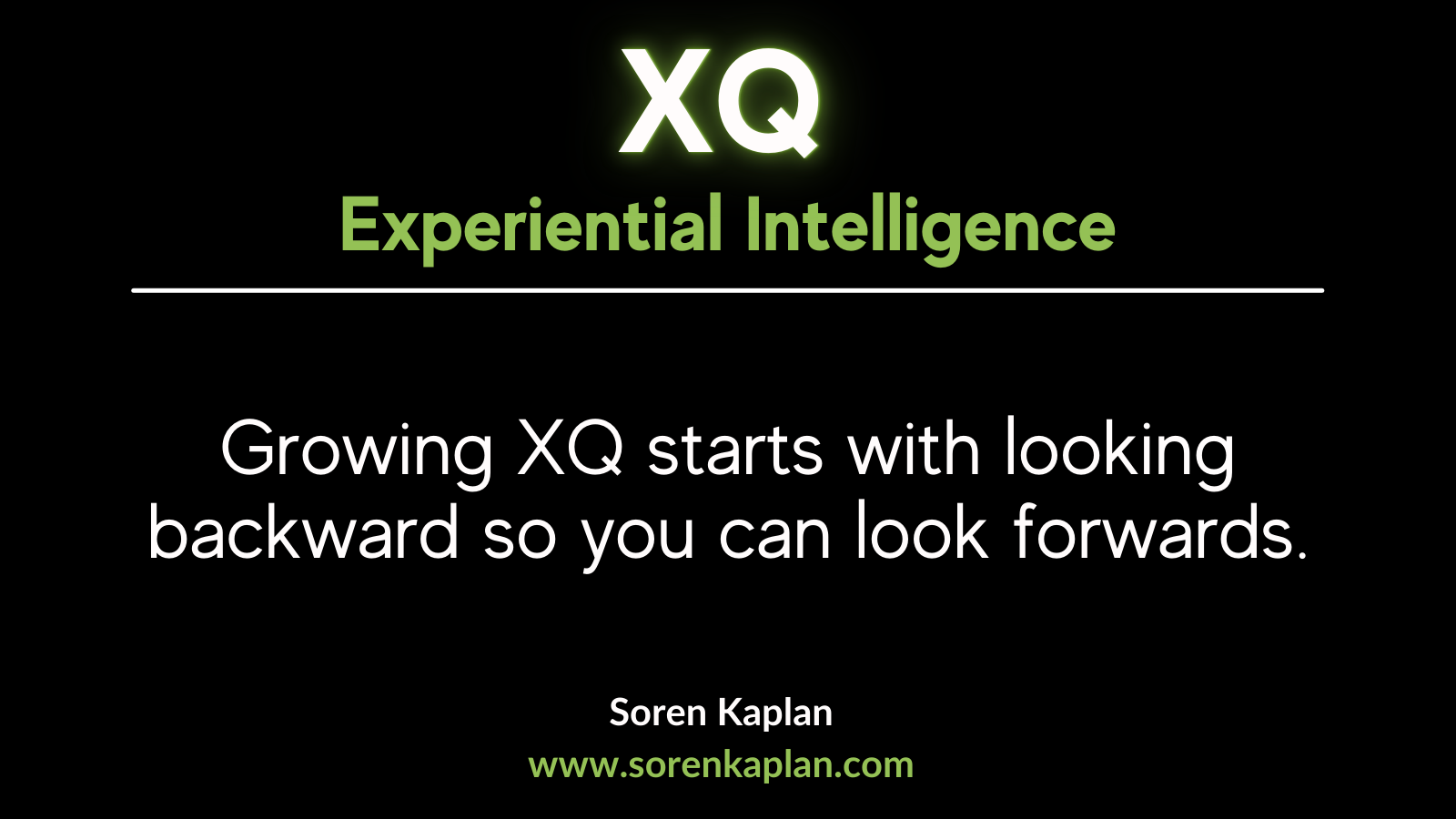
Growing XQ starts with looking backward so you can look forward.
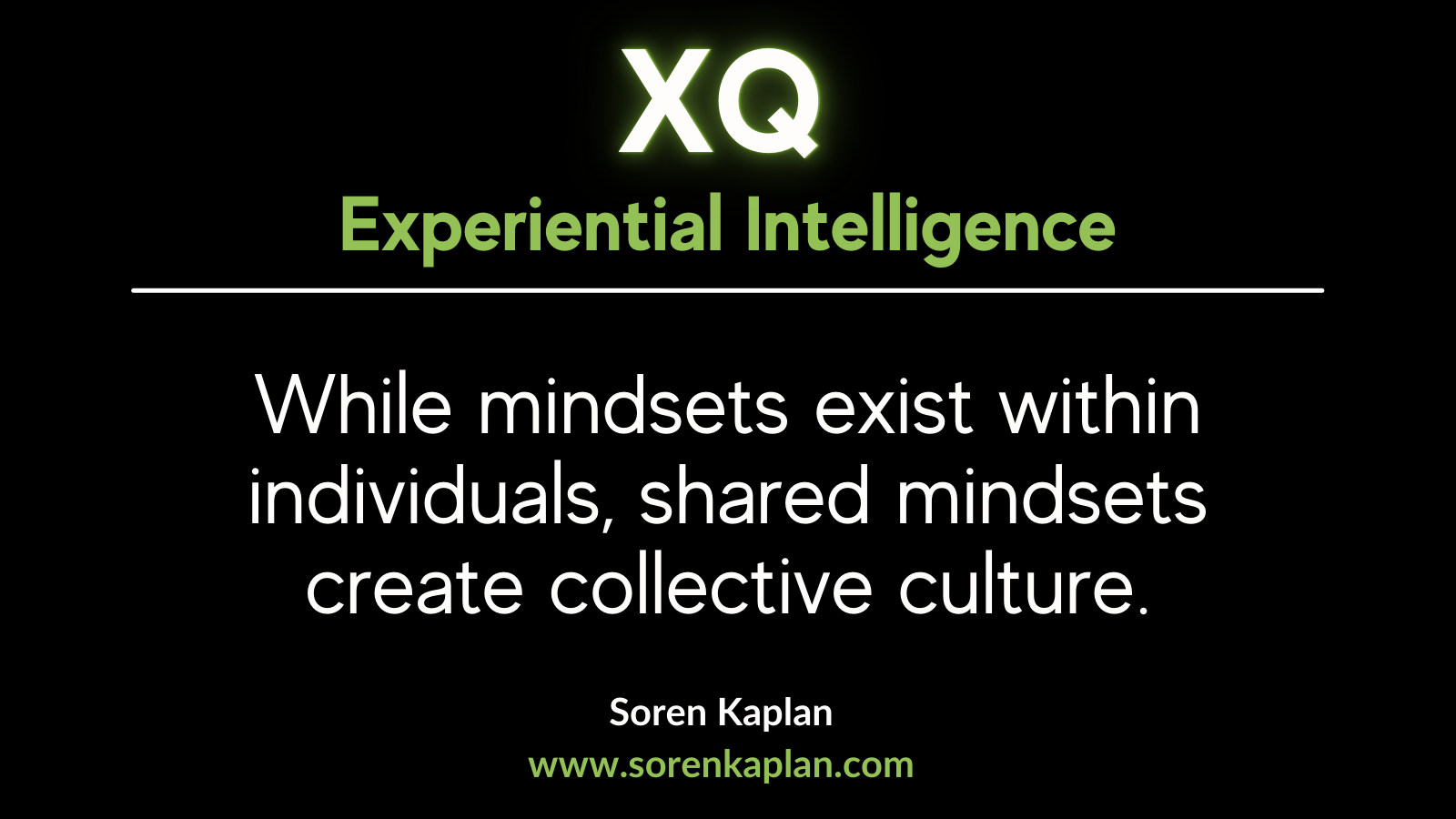
While mindsets exist within individuals, shared mindsets create collective culture.
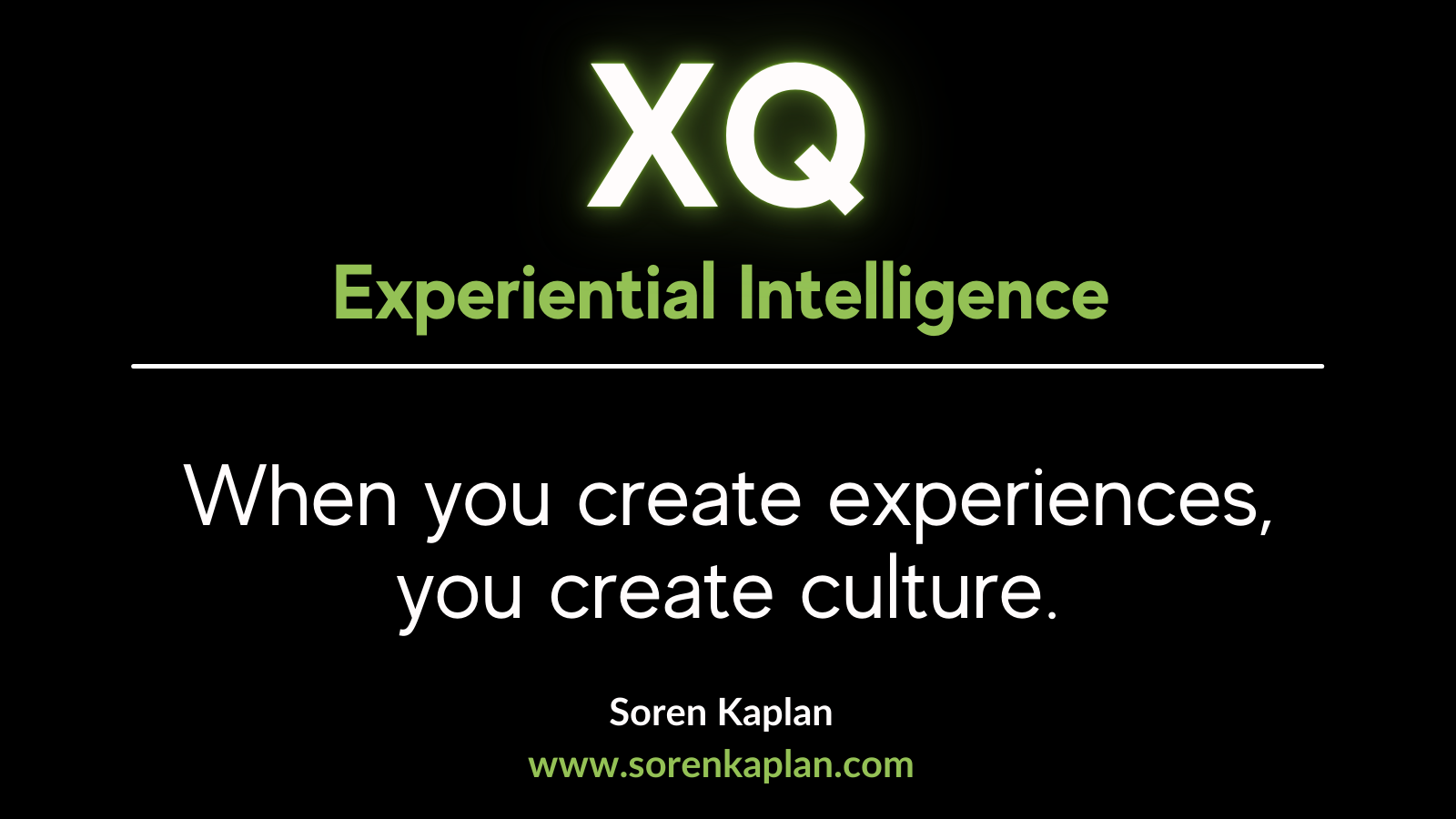
When you create experiences, you create culture.
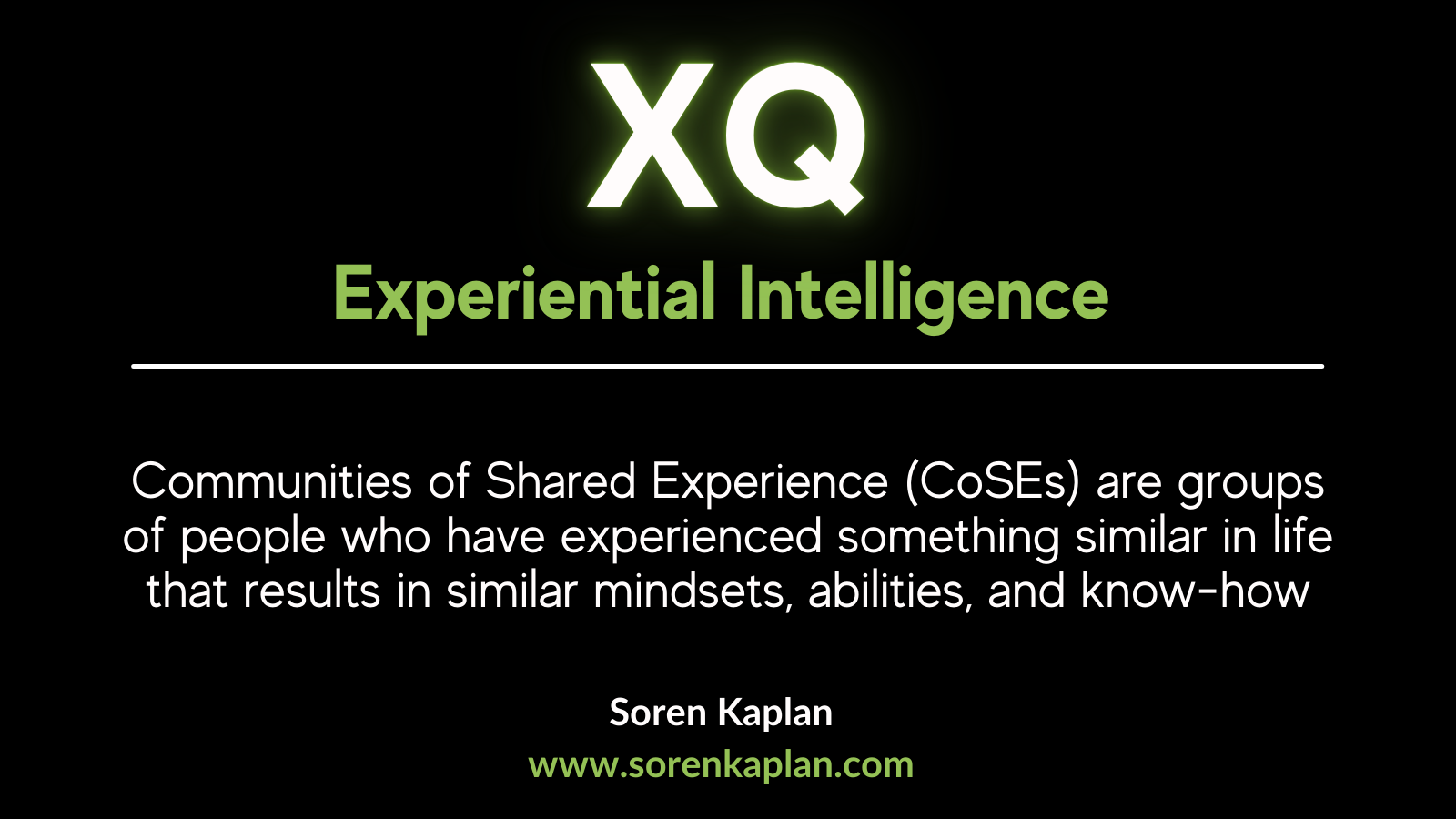
Communities of Shared Experience (CoSEs) are groups of people who have experienced something similar in life that results in similar mindsets, abilities, and know-how.
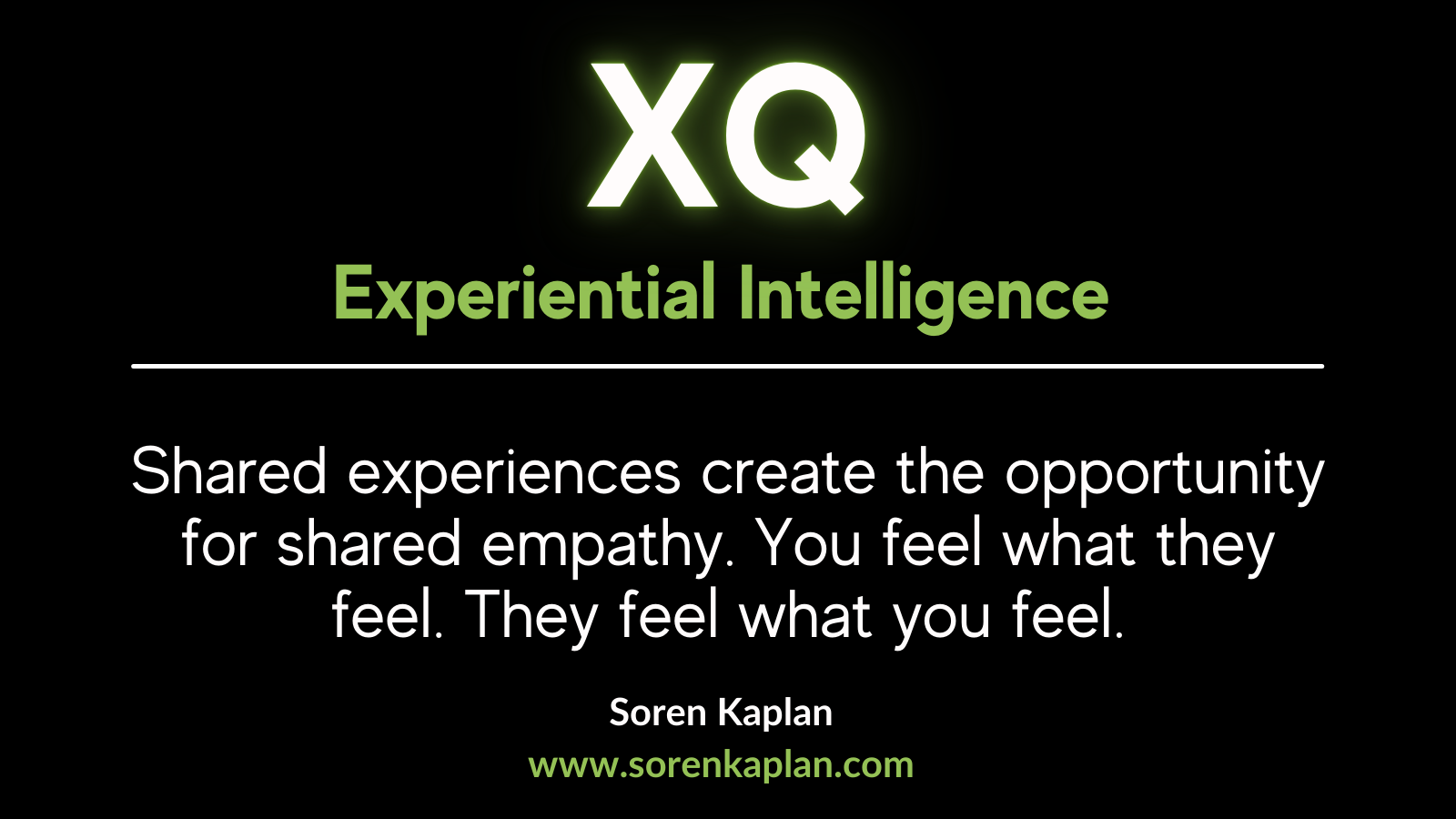
Shared experiences create the opportunity for shared empathy. You feel what they feel. They feel what you feel.

Sometimes the smarts we develop through our experiences help us, and sometimes they outsmart us later in life because, while they were once useful, they undermine our effectiveness as adults.

The quest to grow XQ is the quest to get to know yourself at a more deeply meaningful level. When you know yourself, you become more present in everyday life.
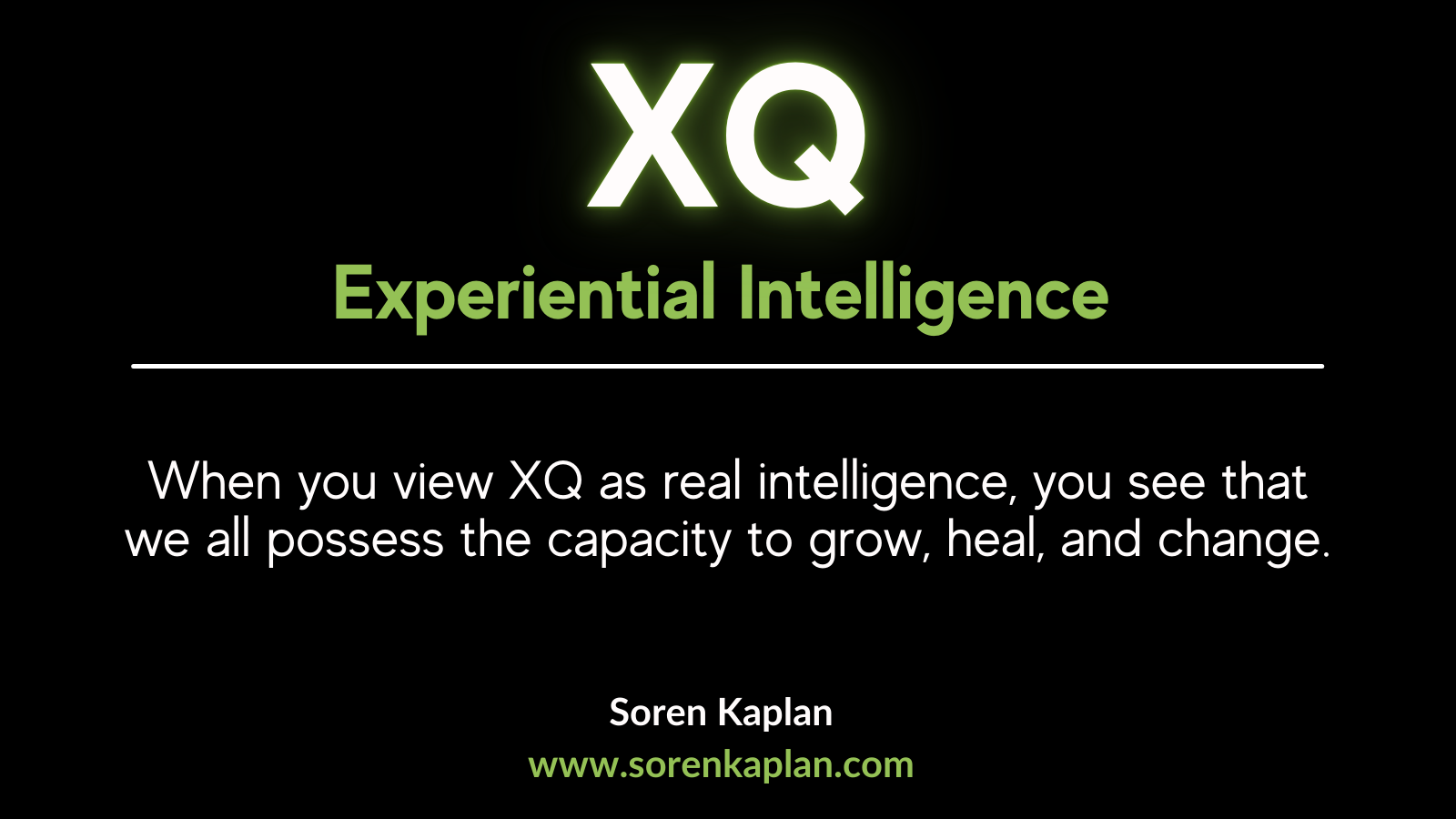
When you view XQ as real intelligence, you see that we all possess the capacity to grow, heal, and change.